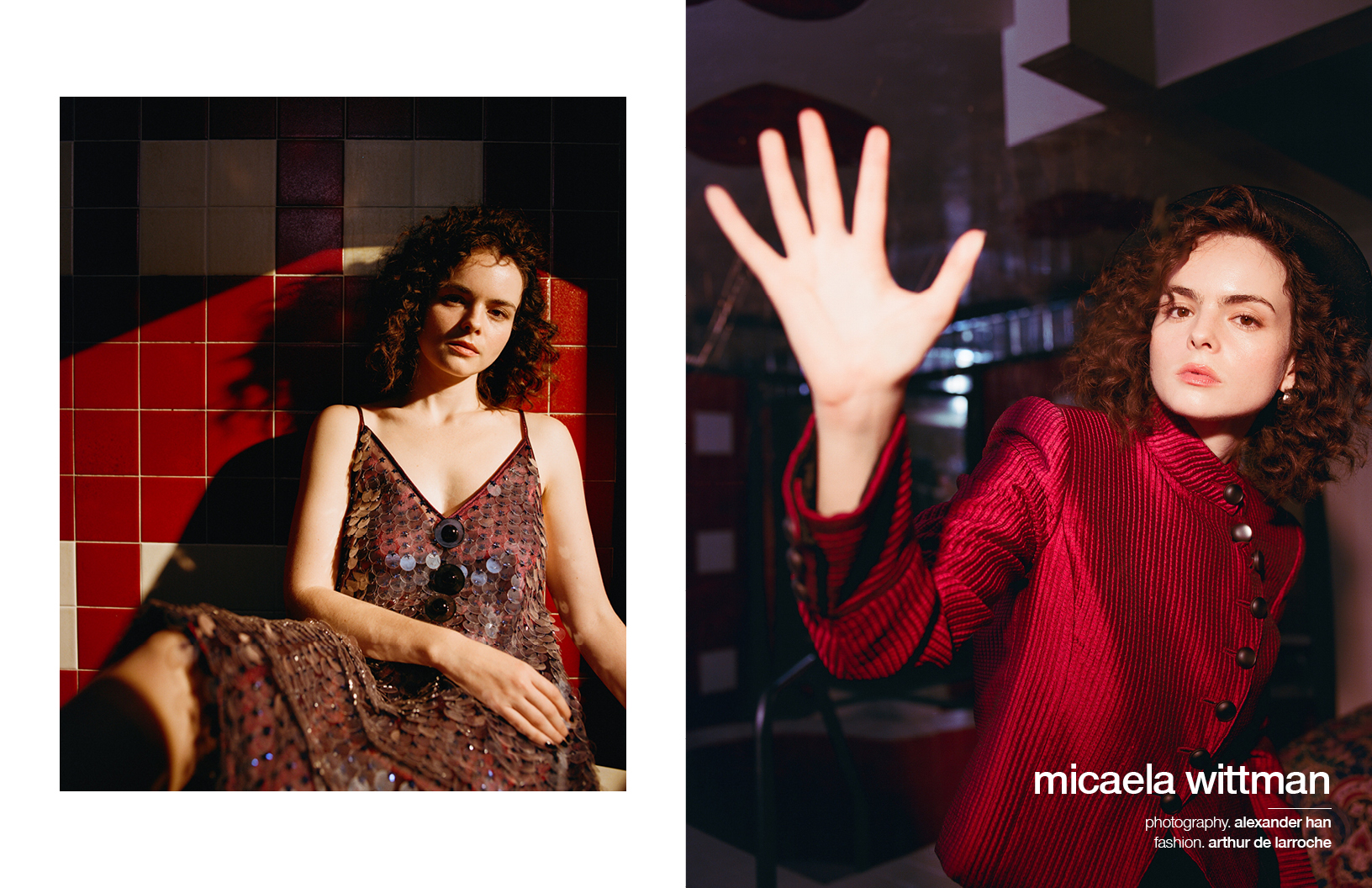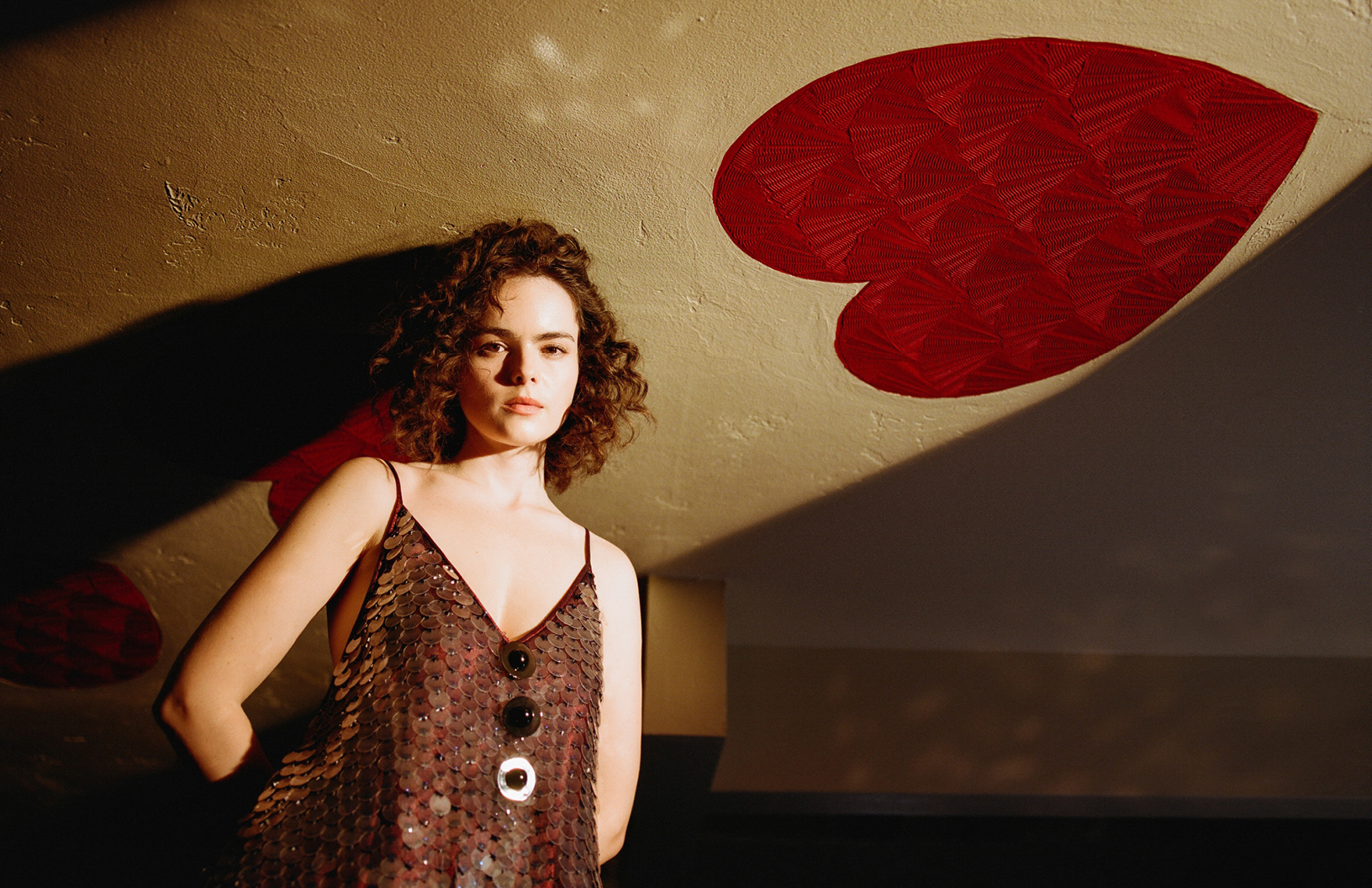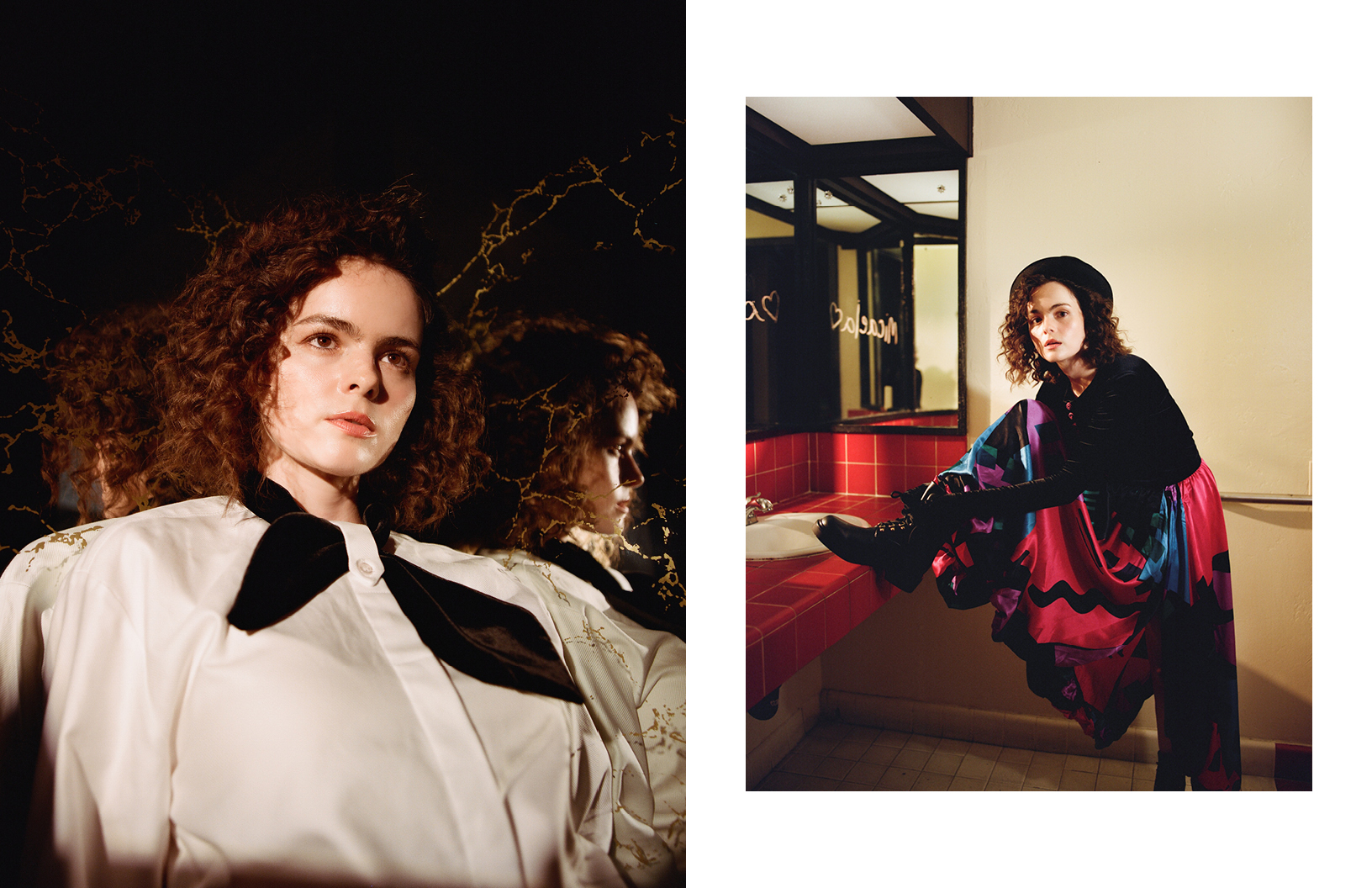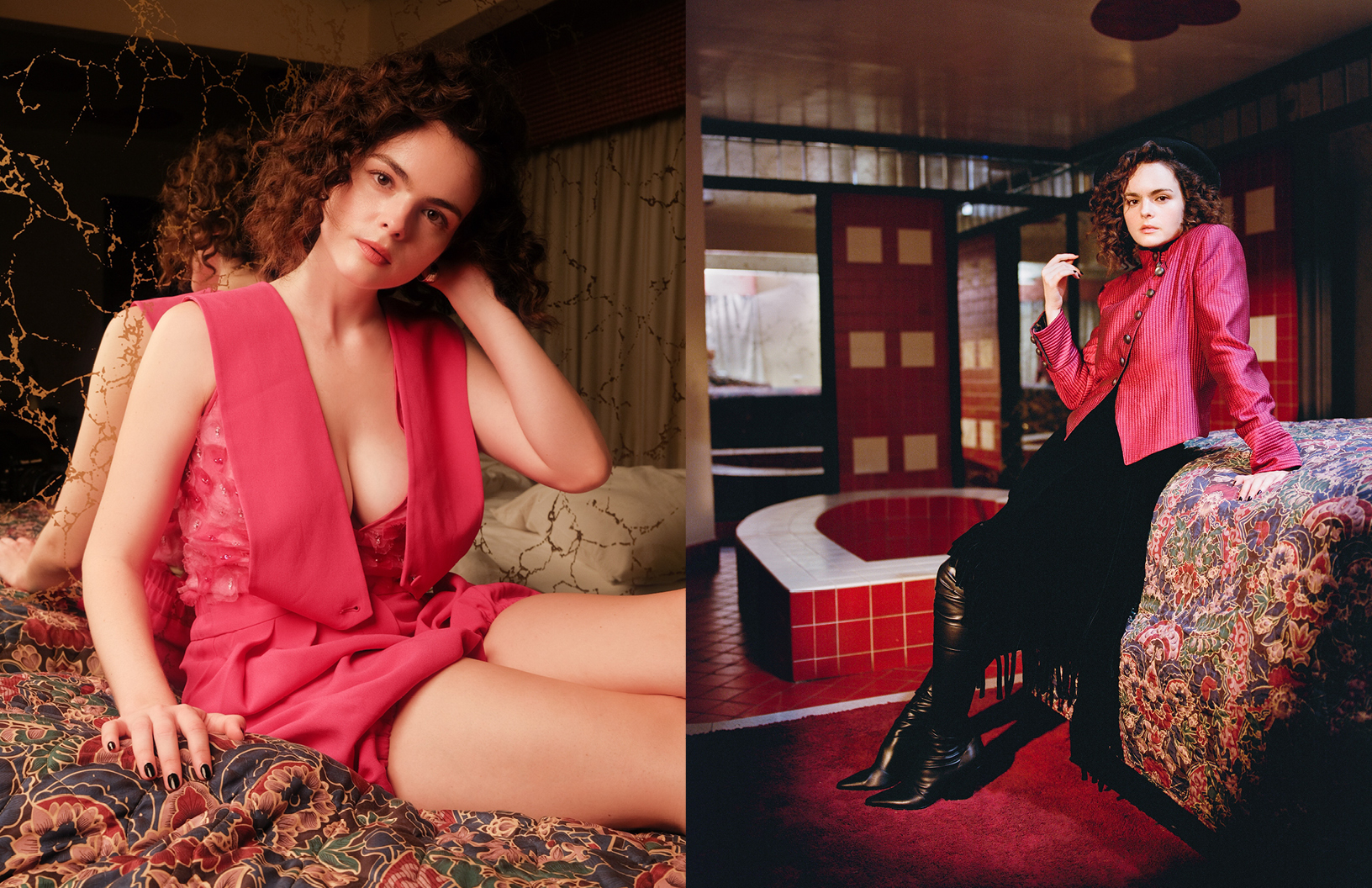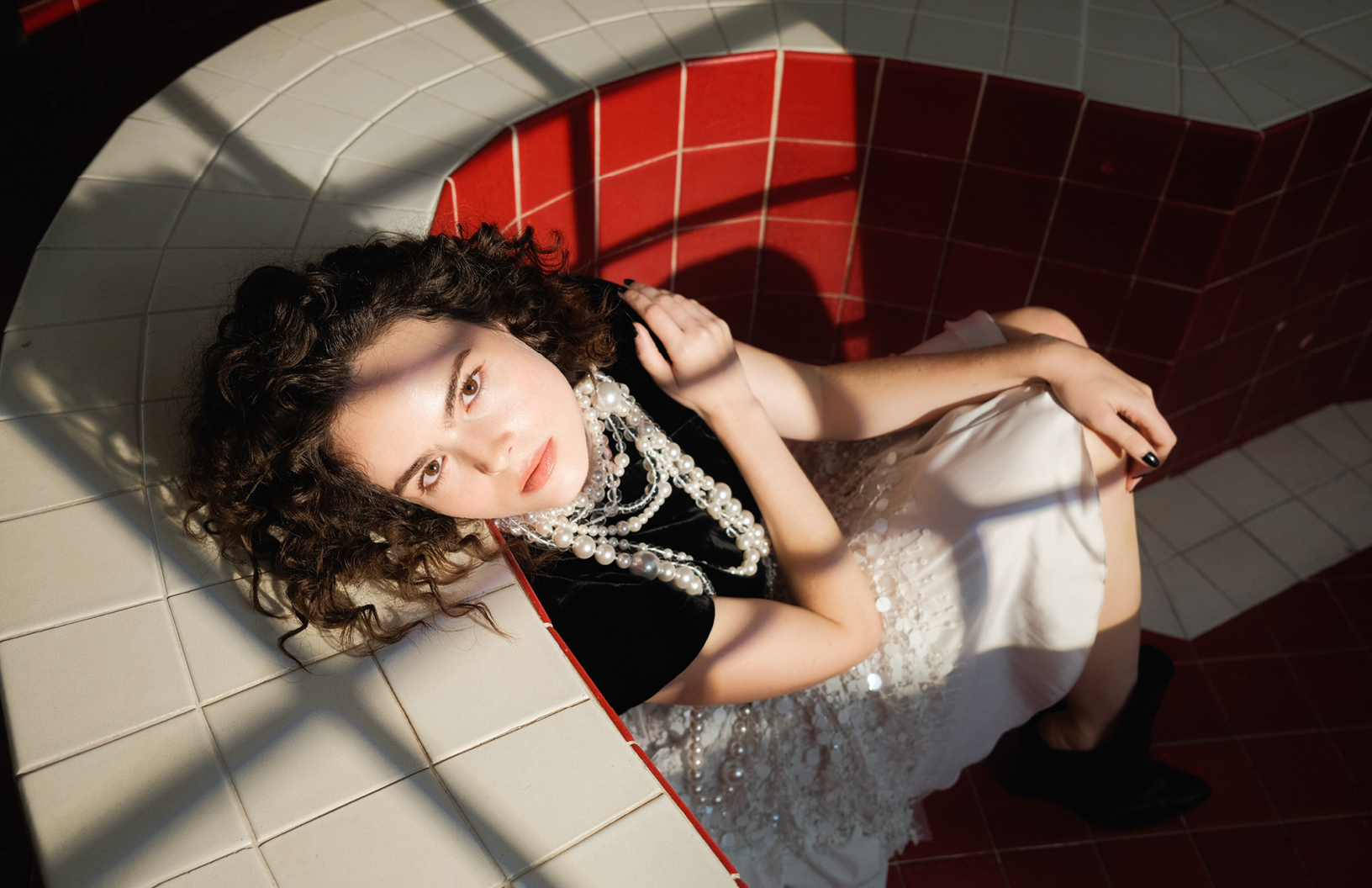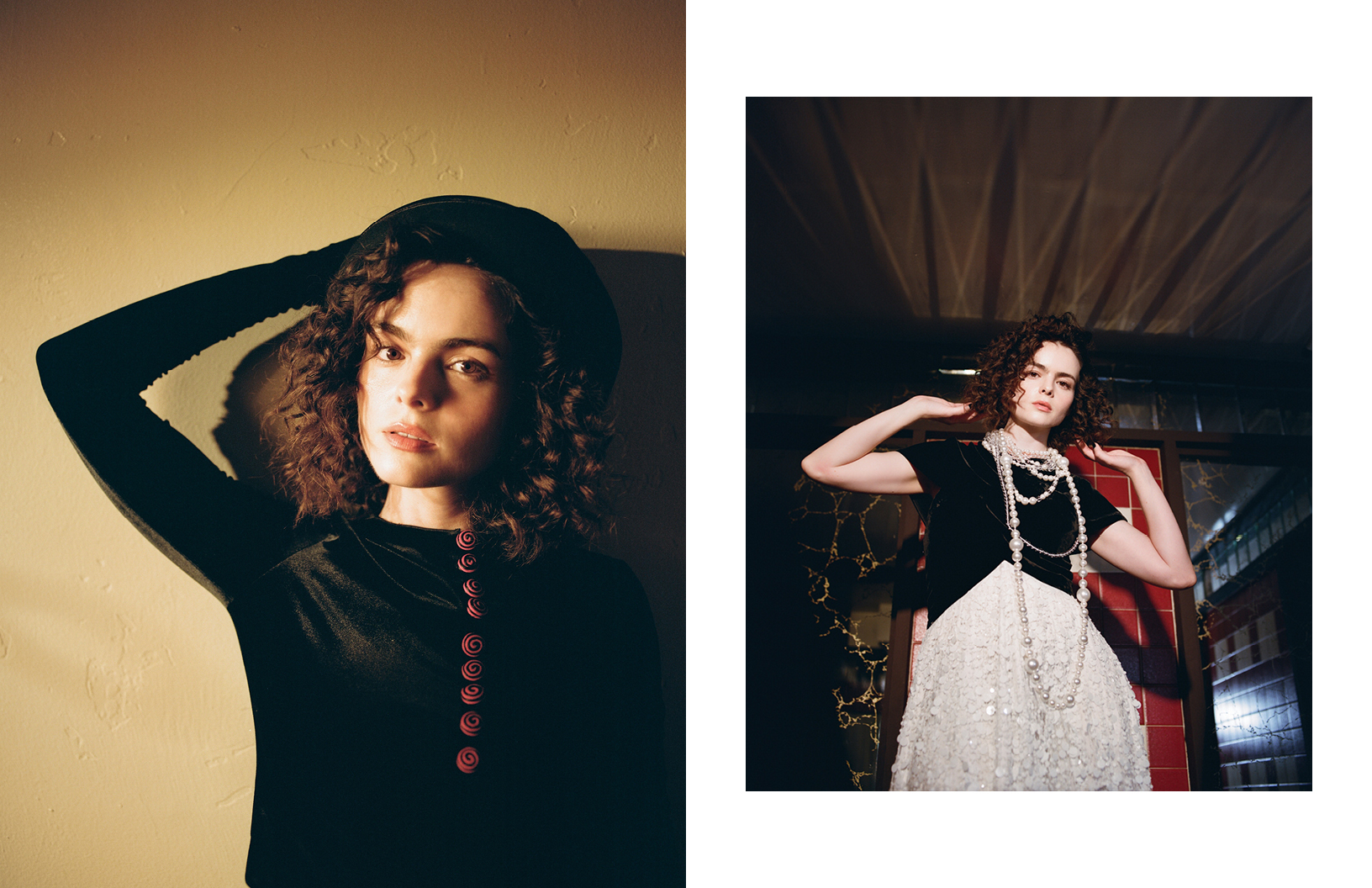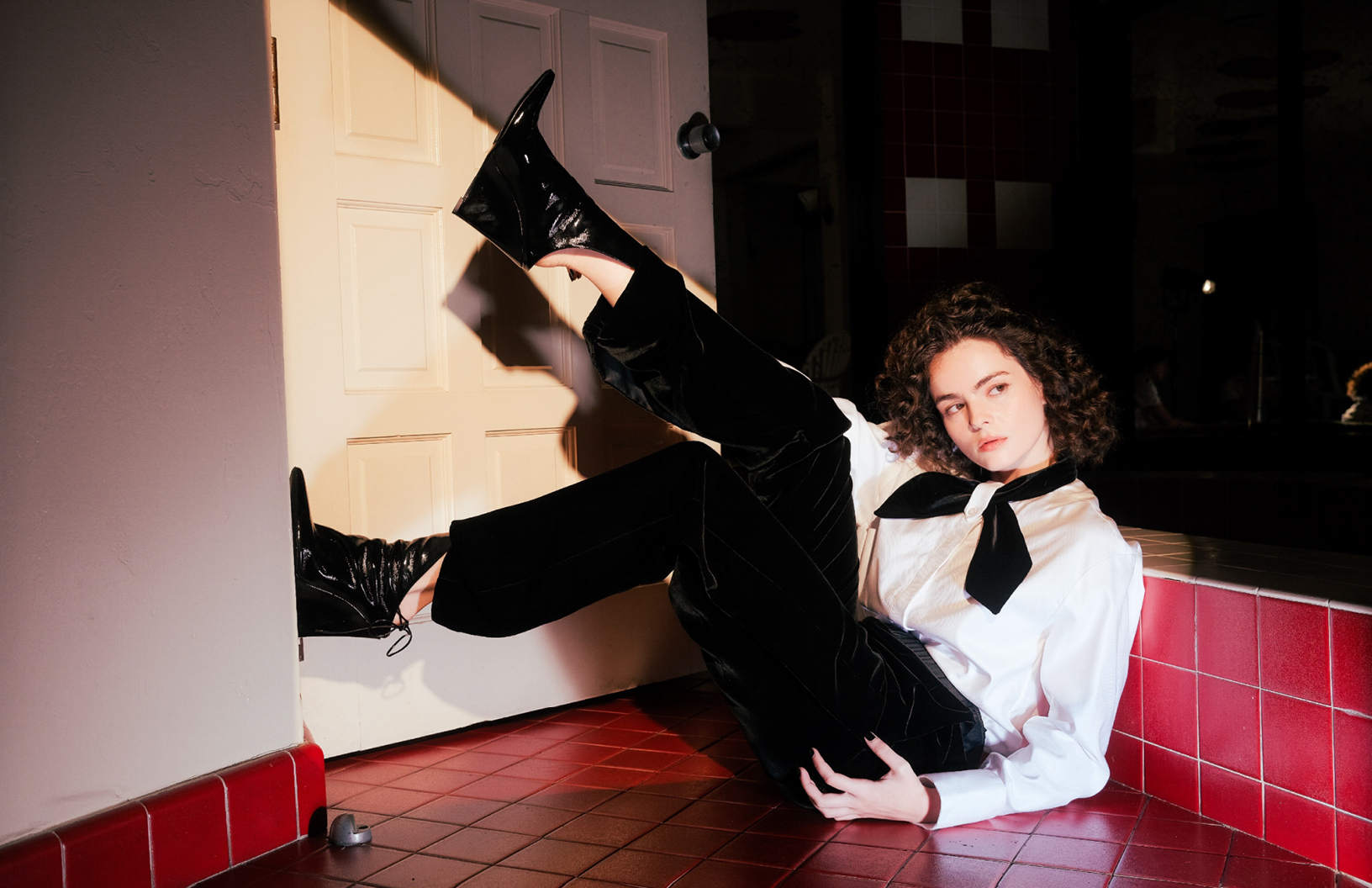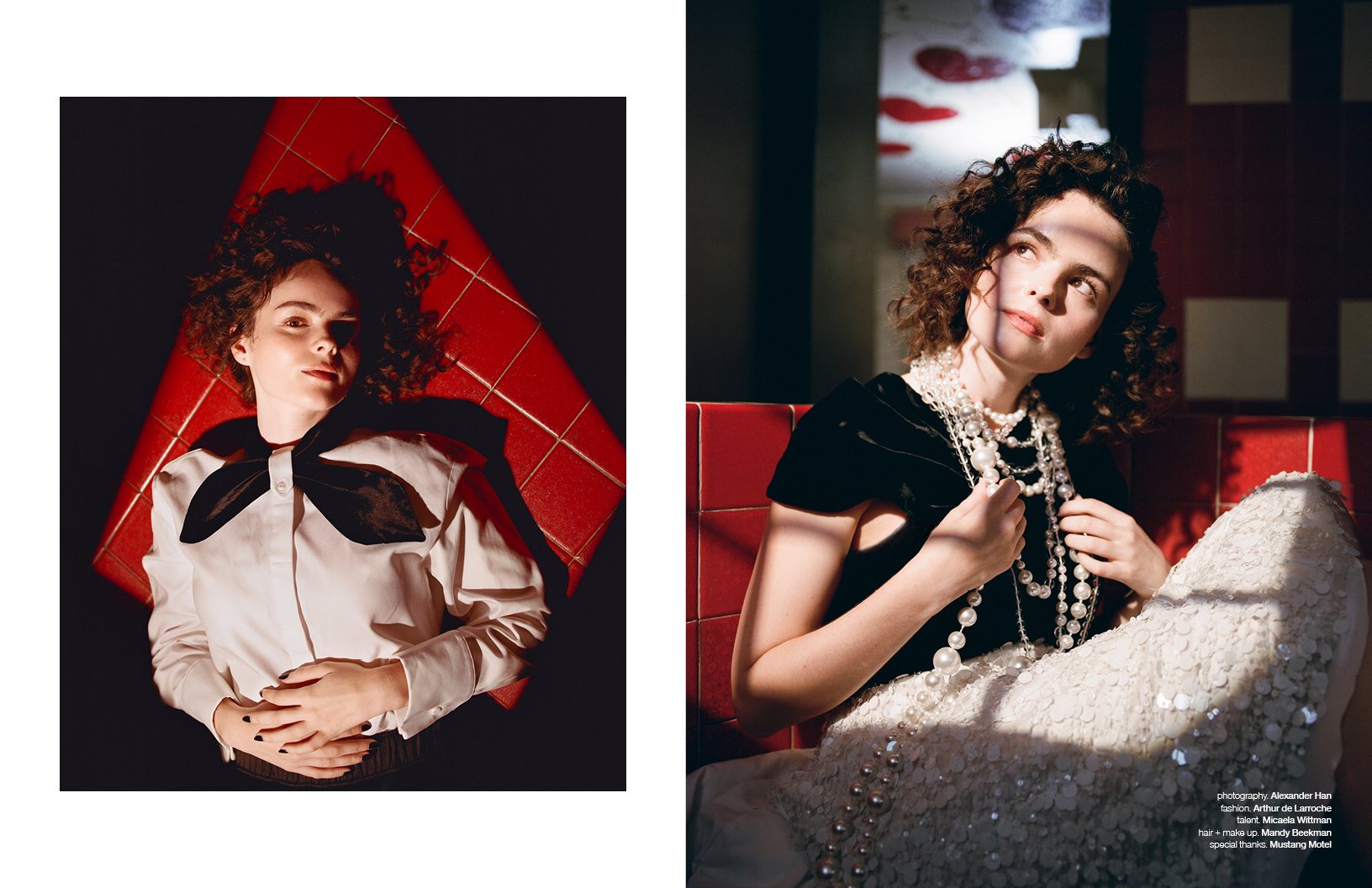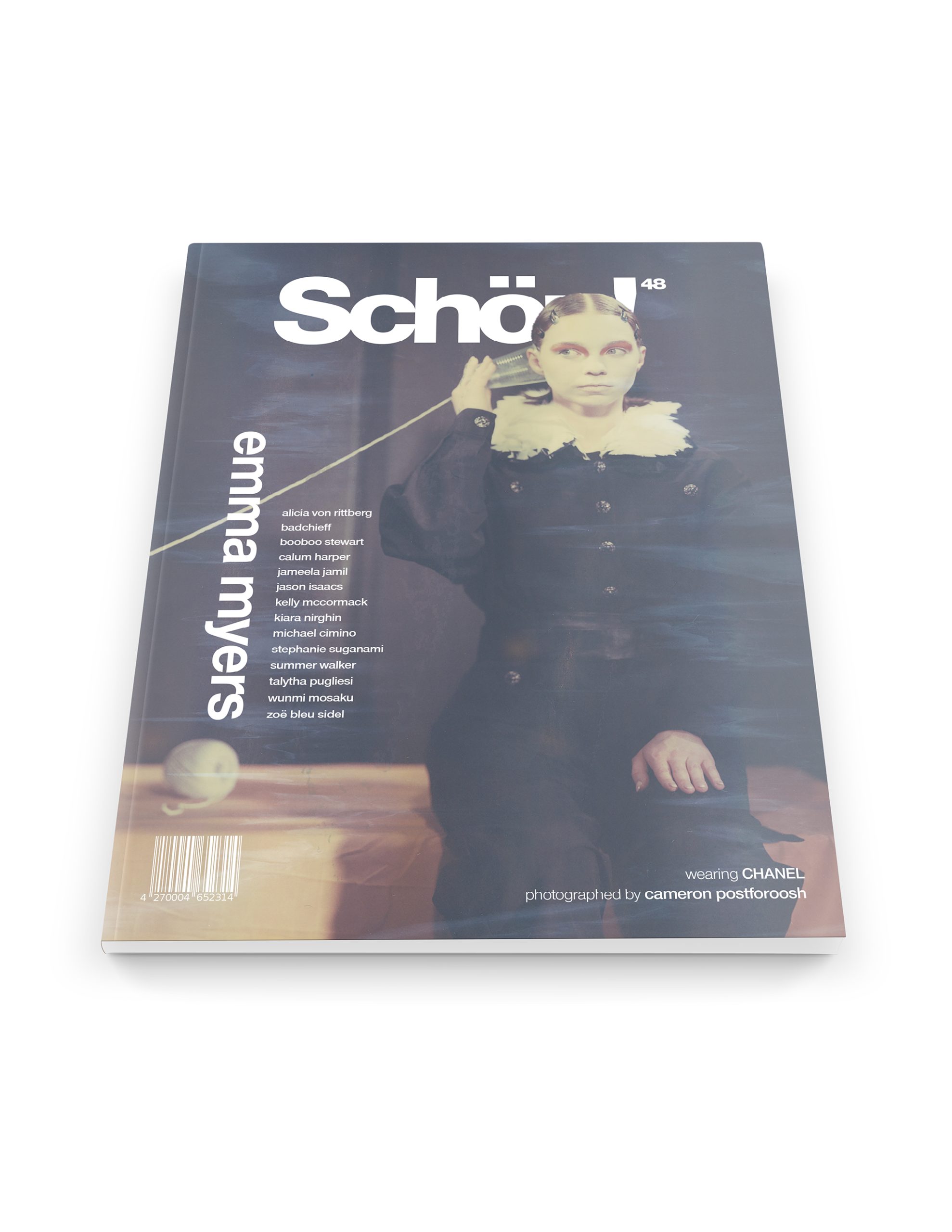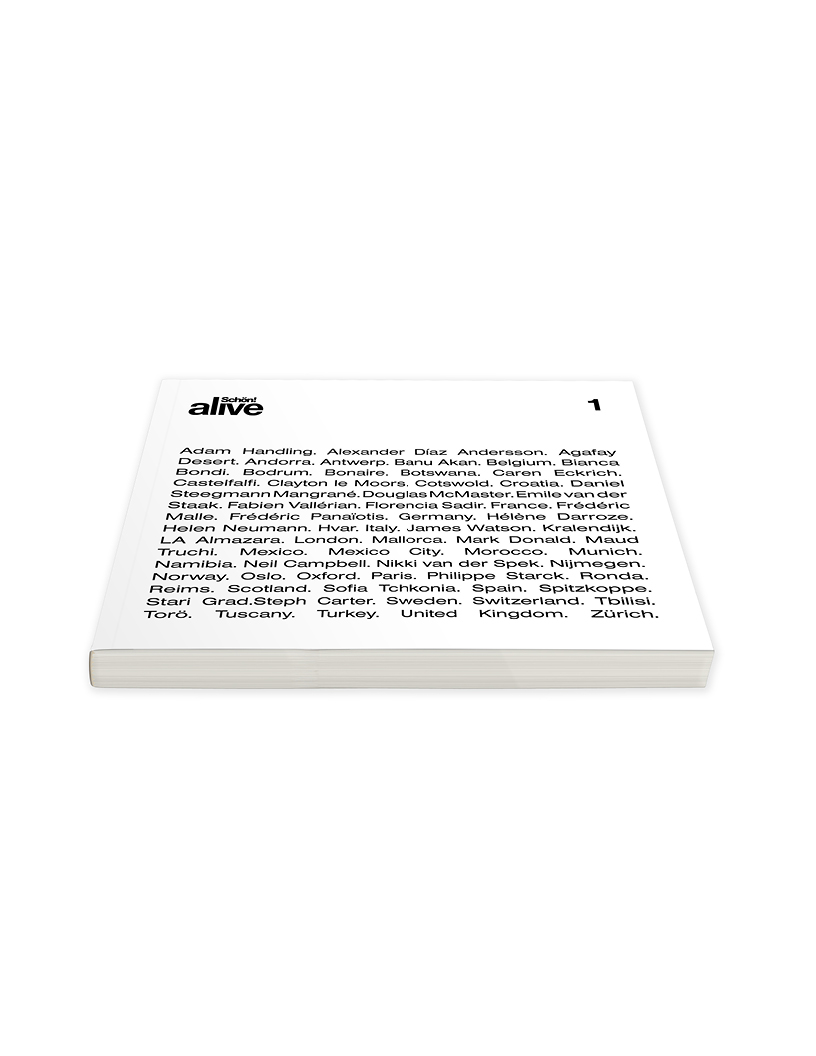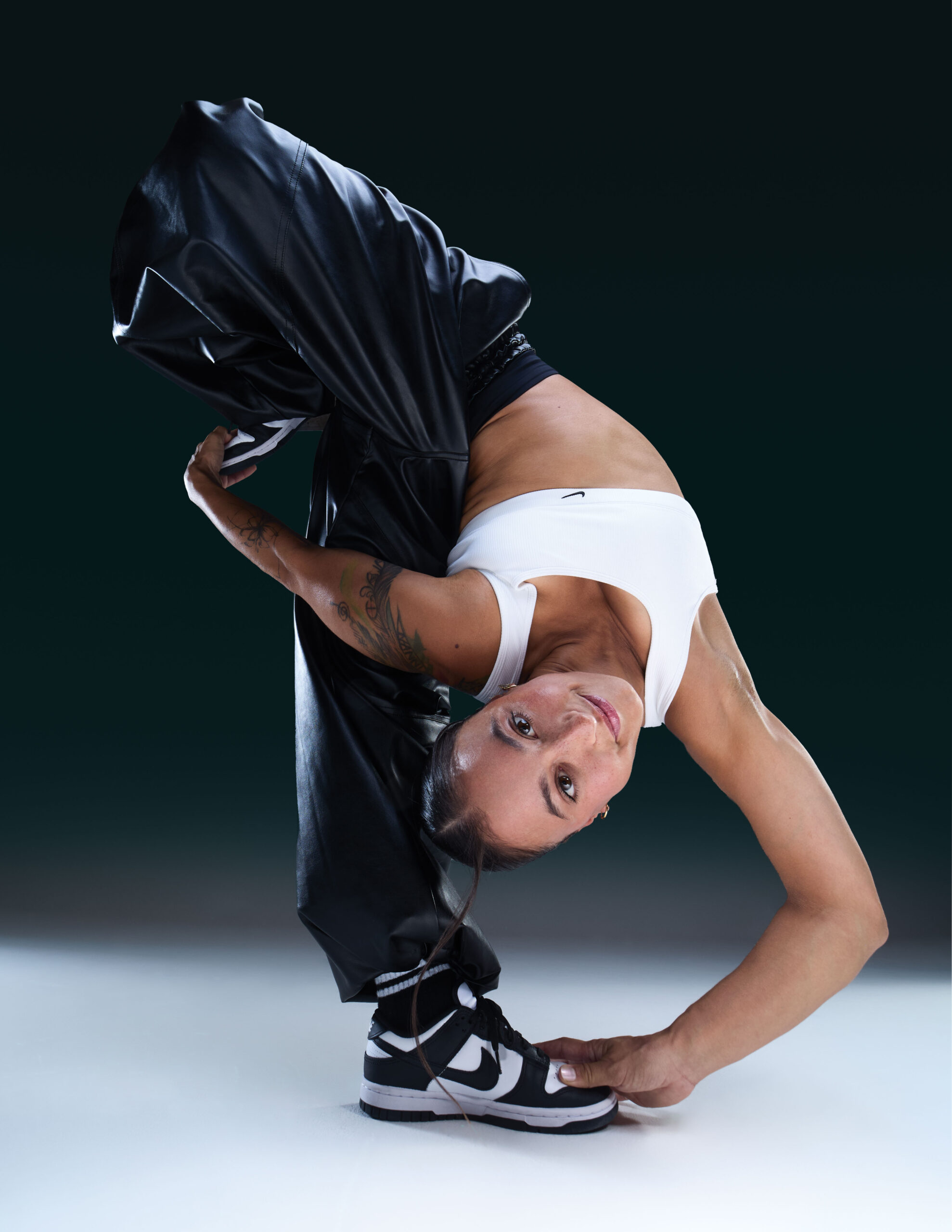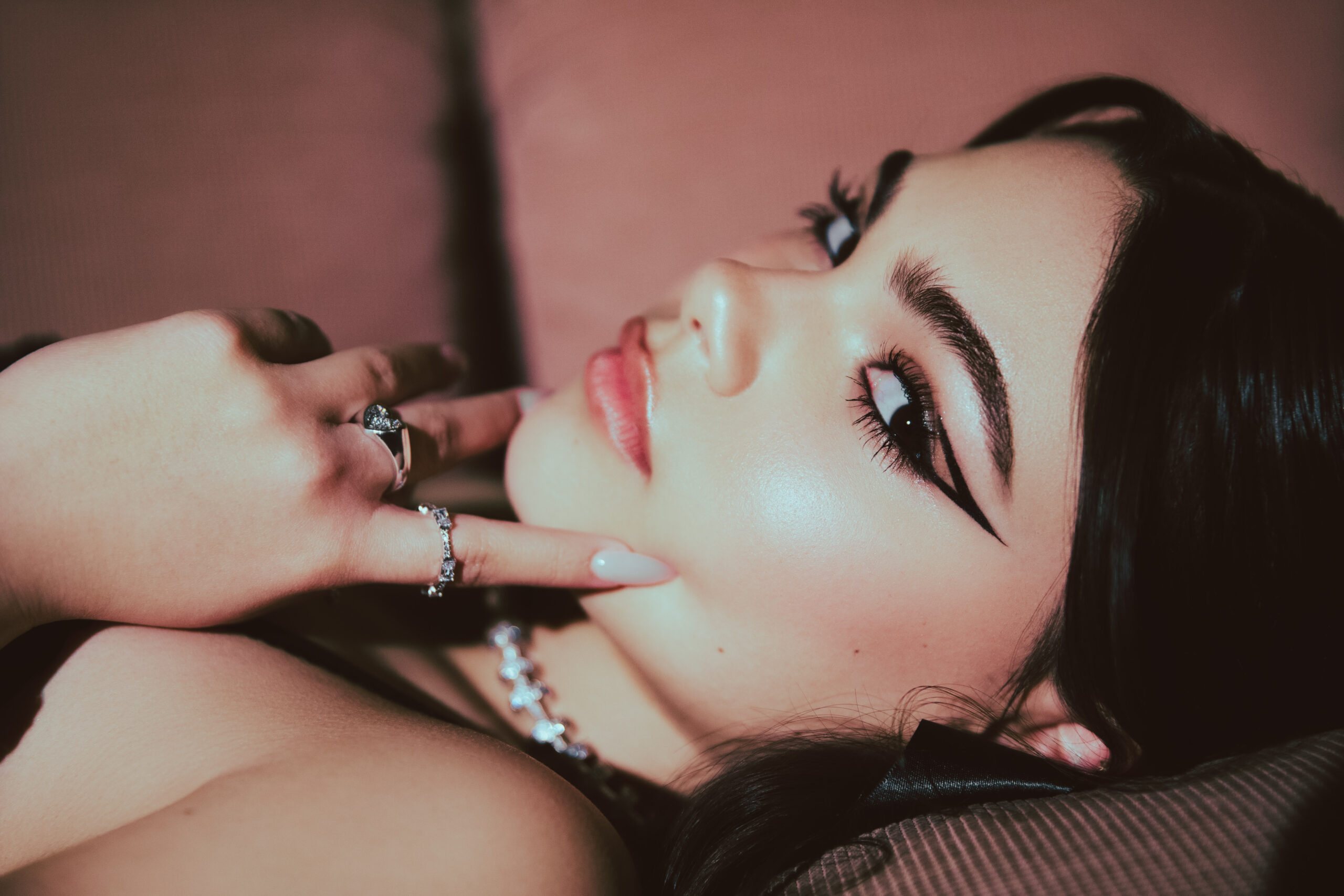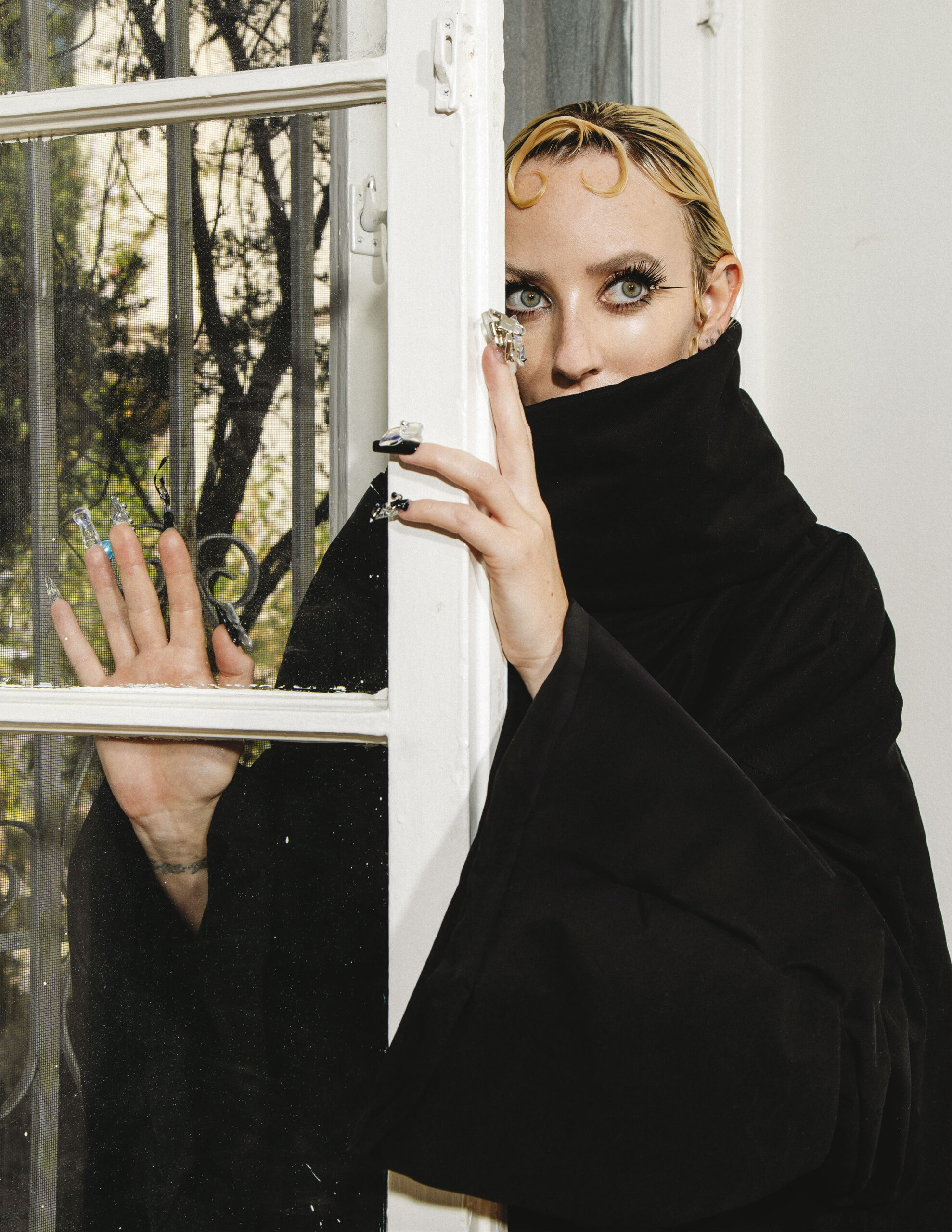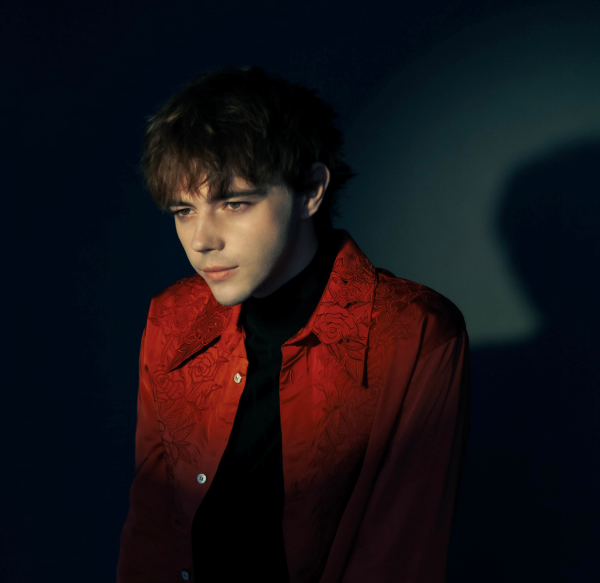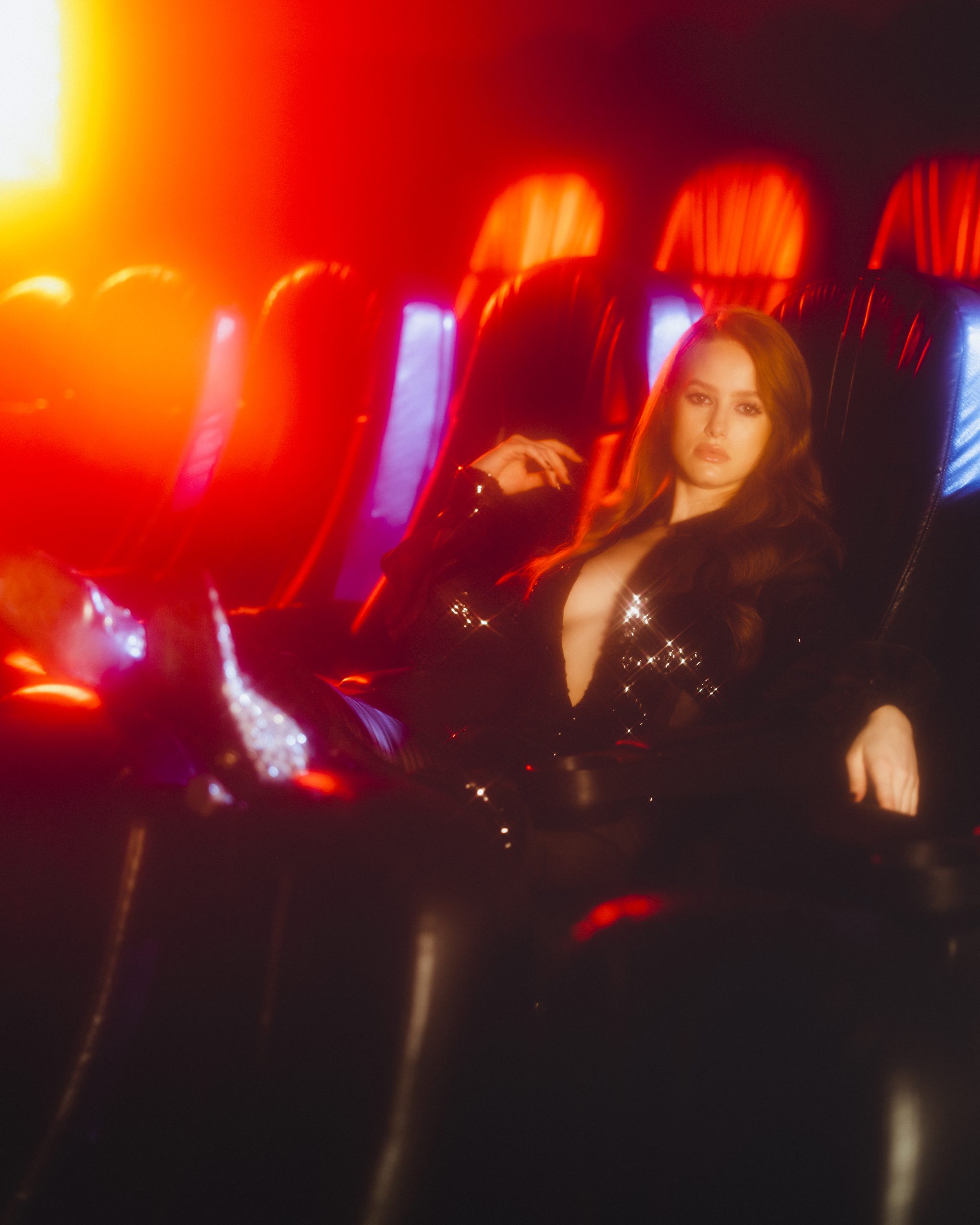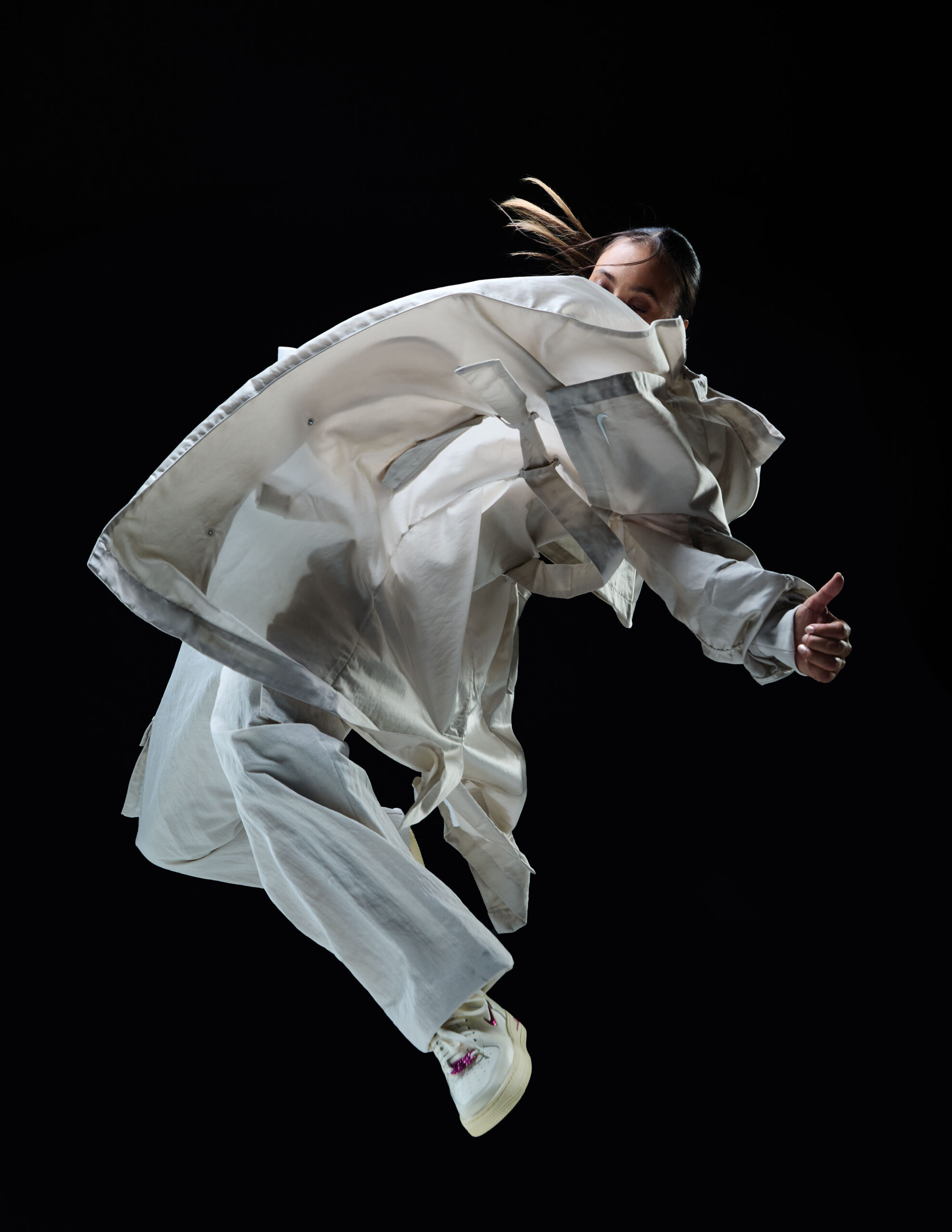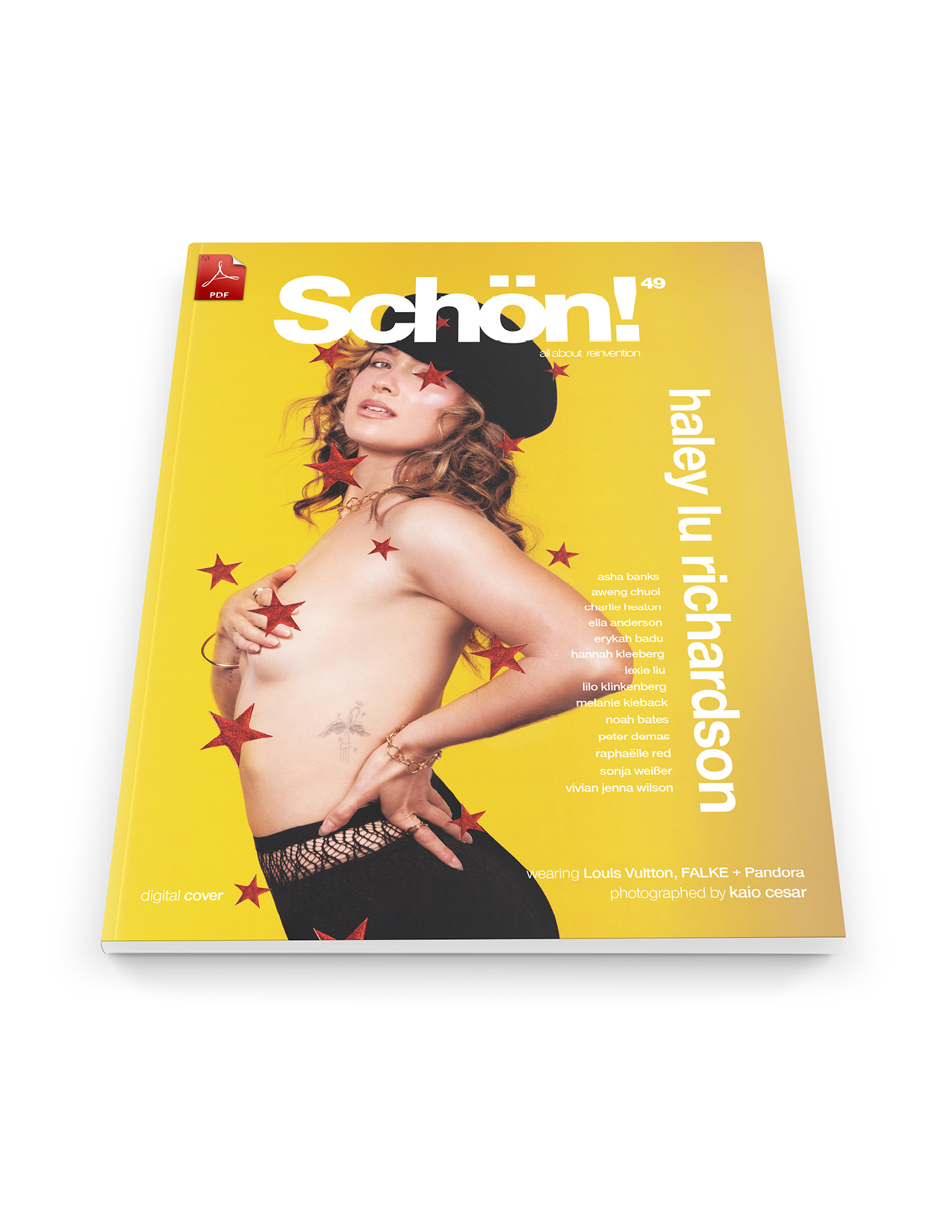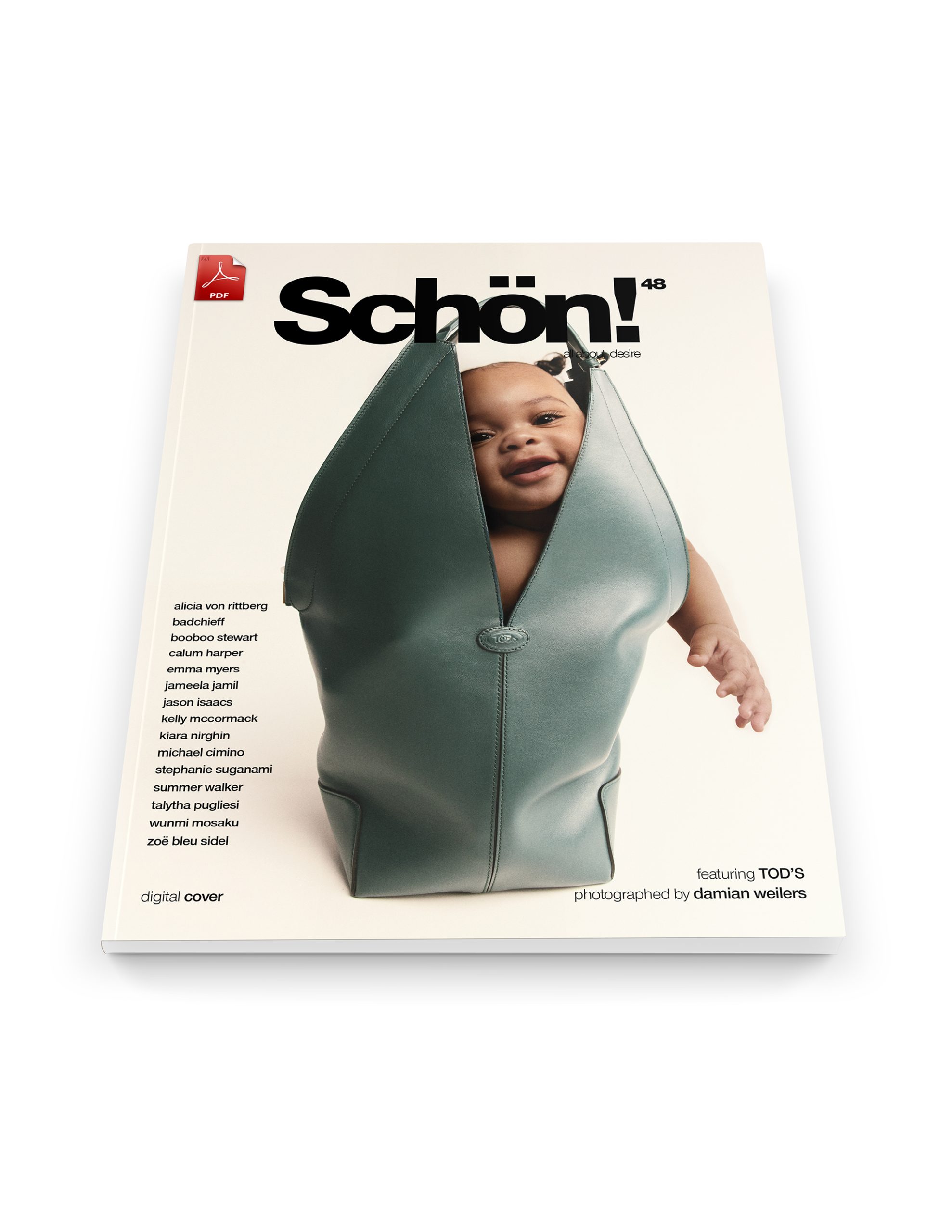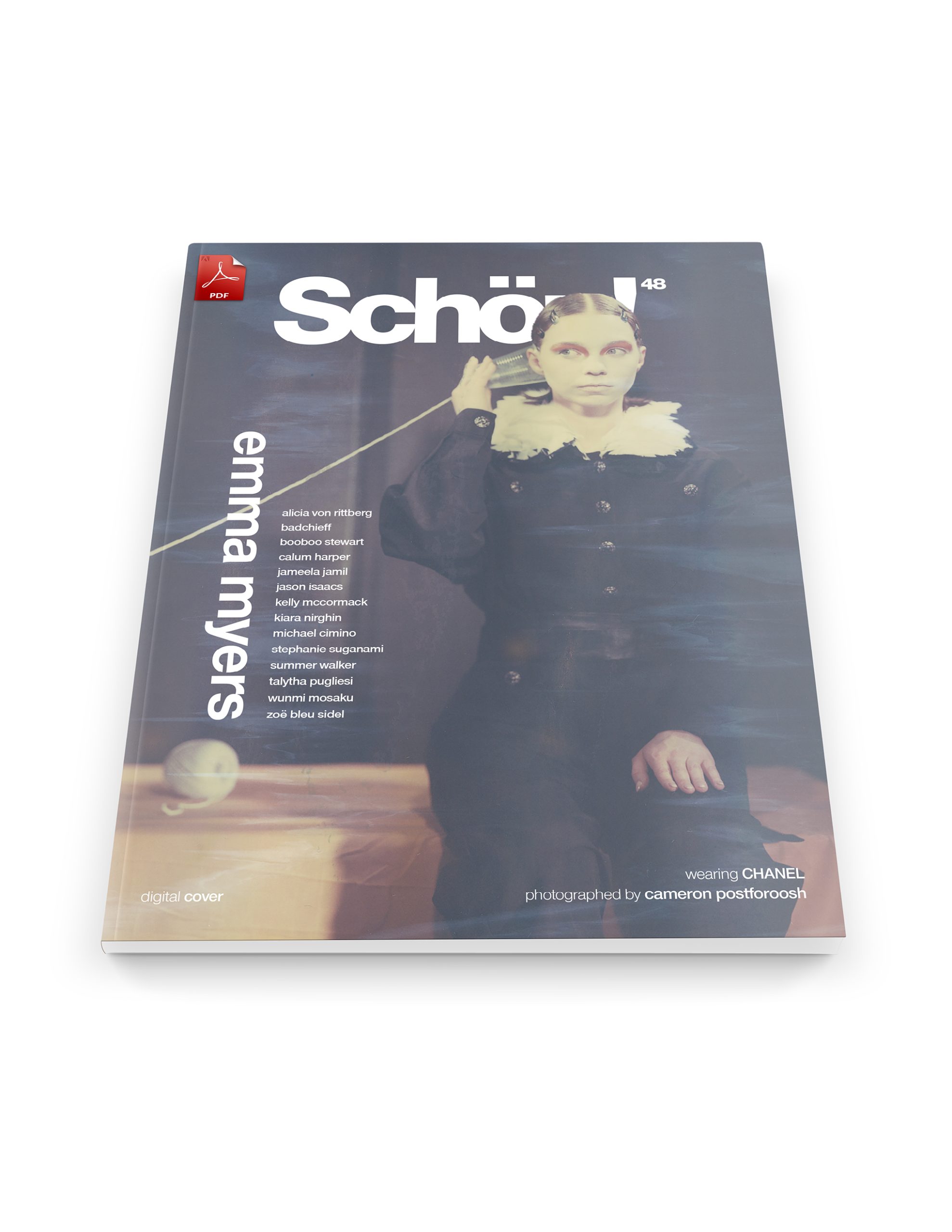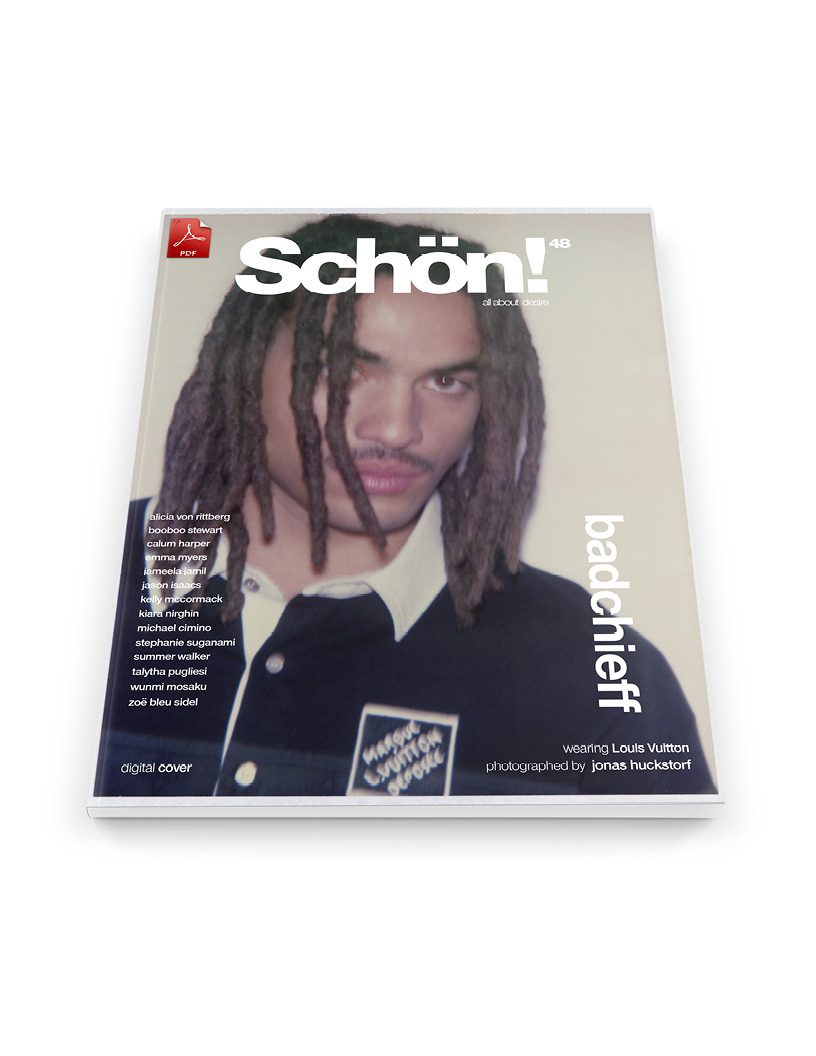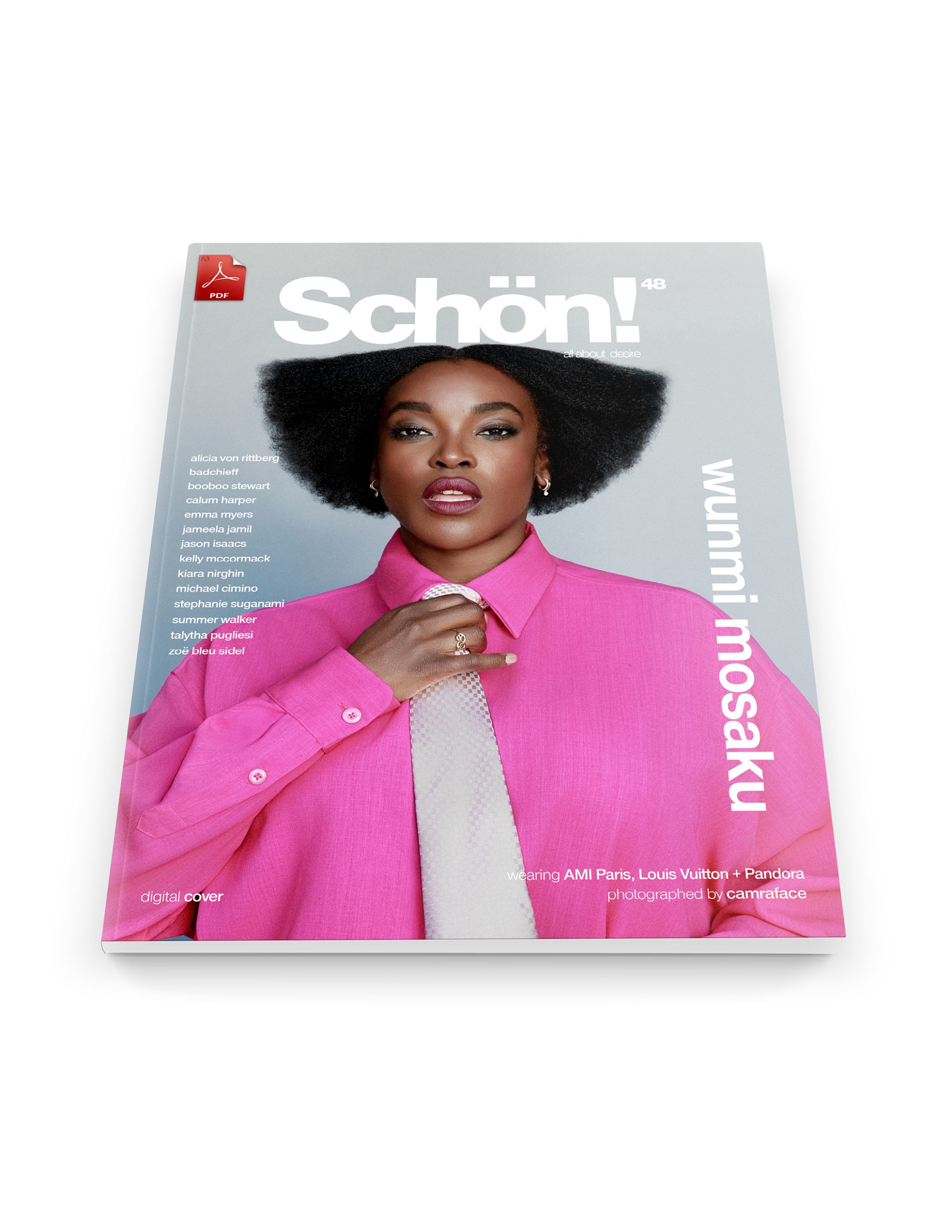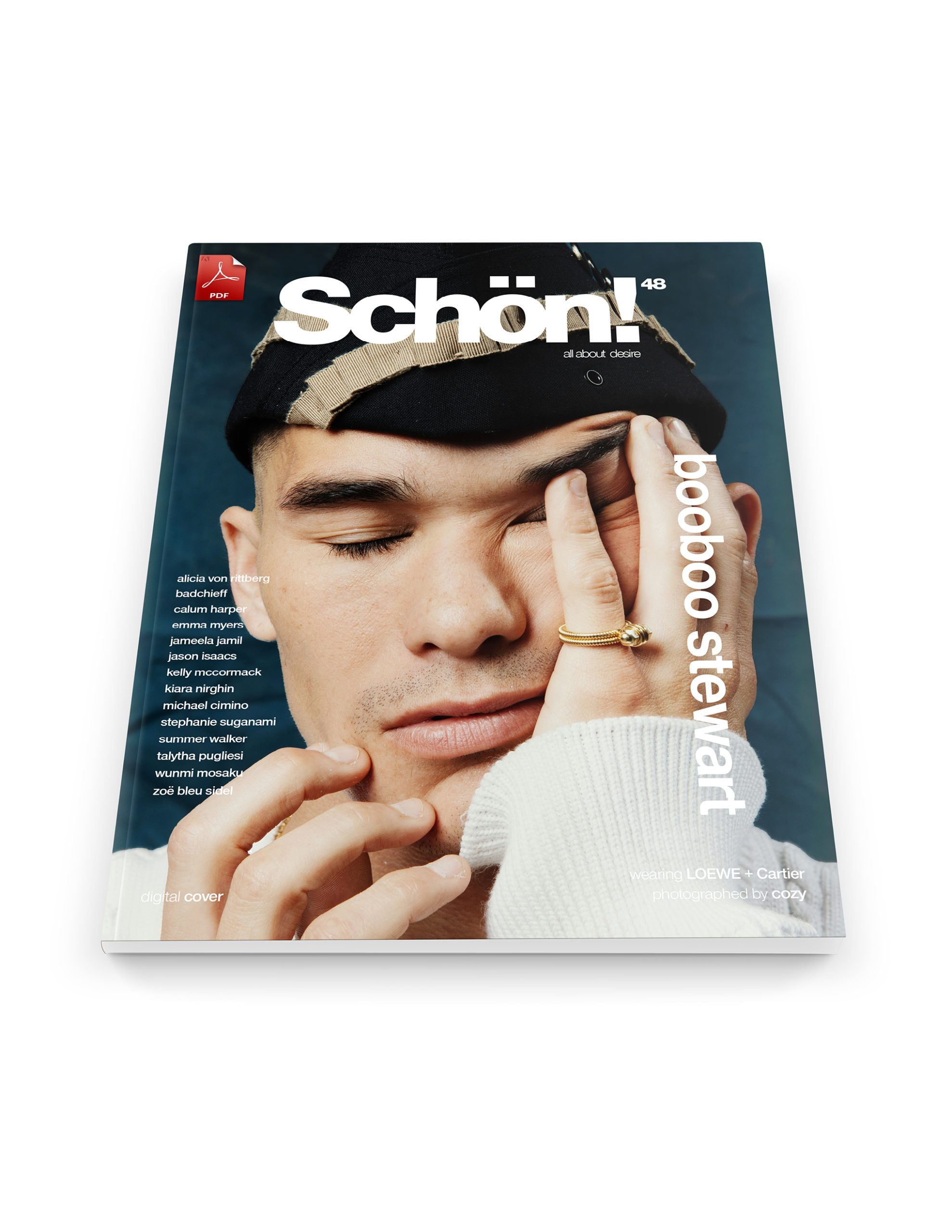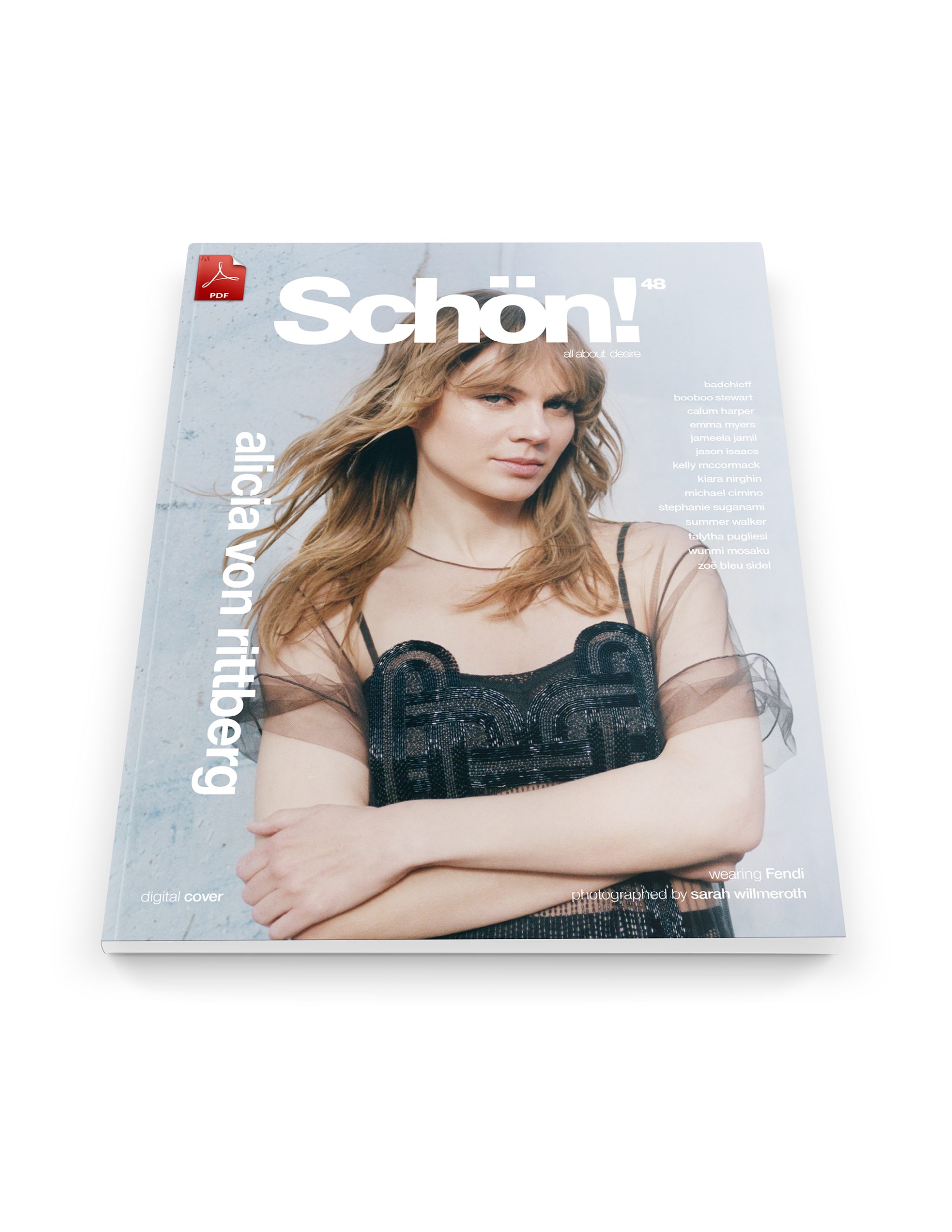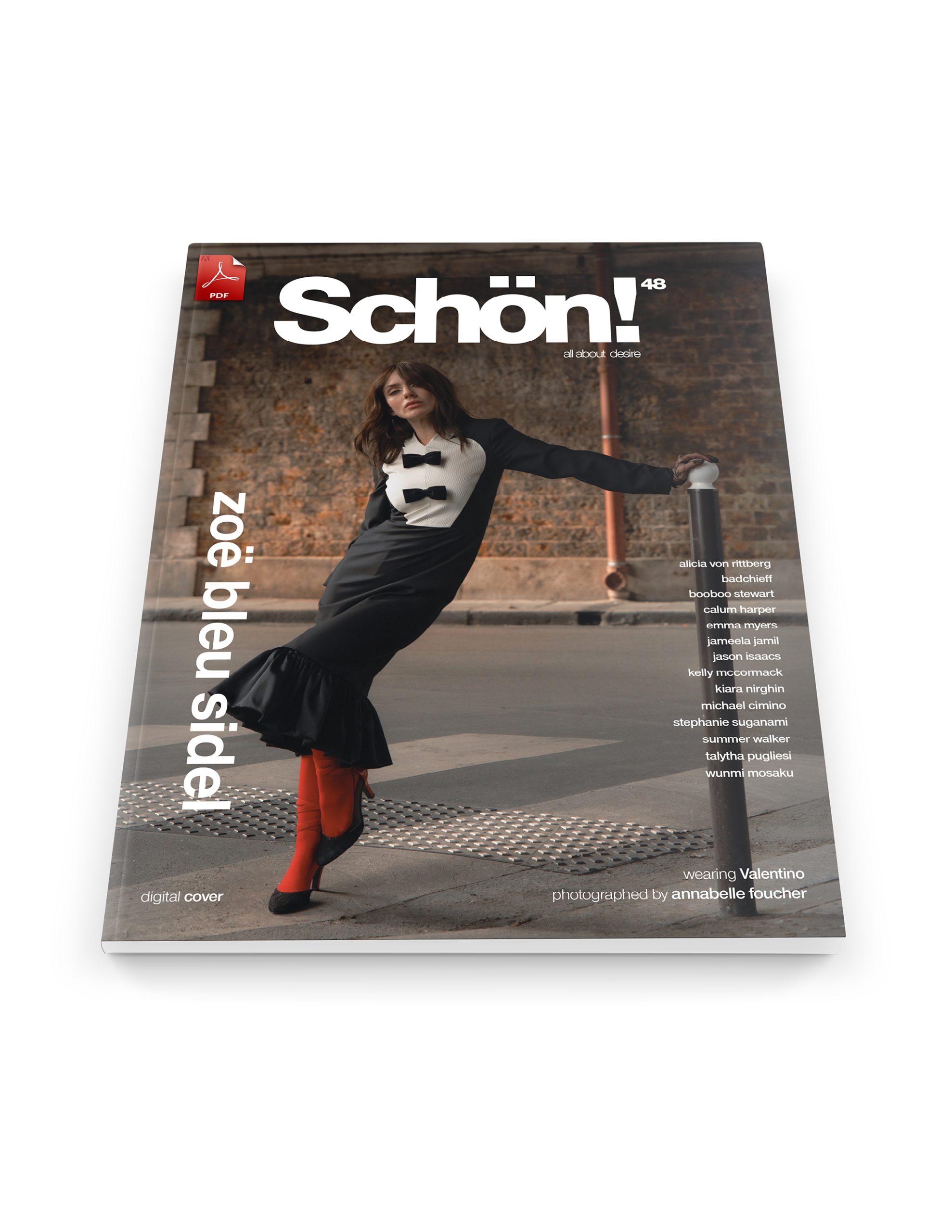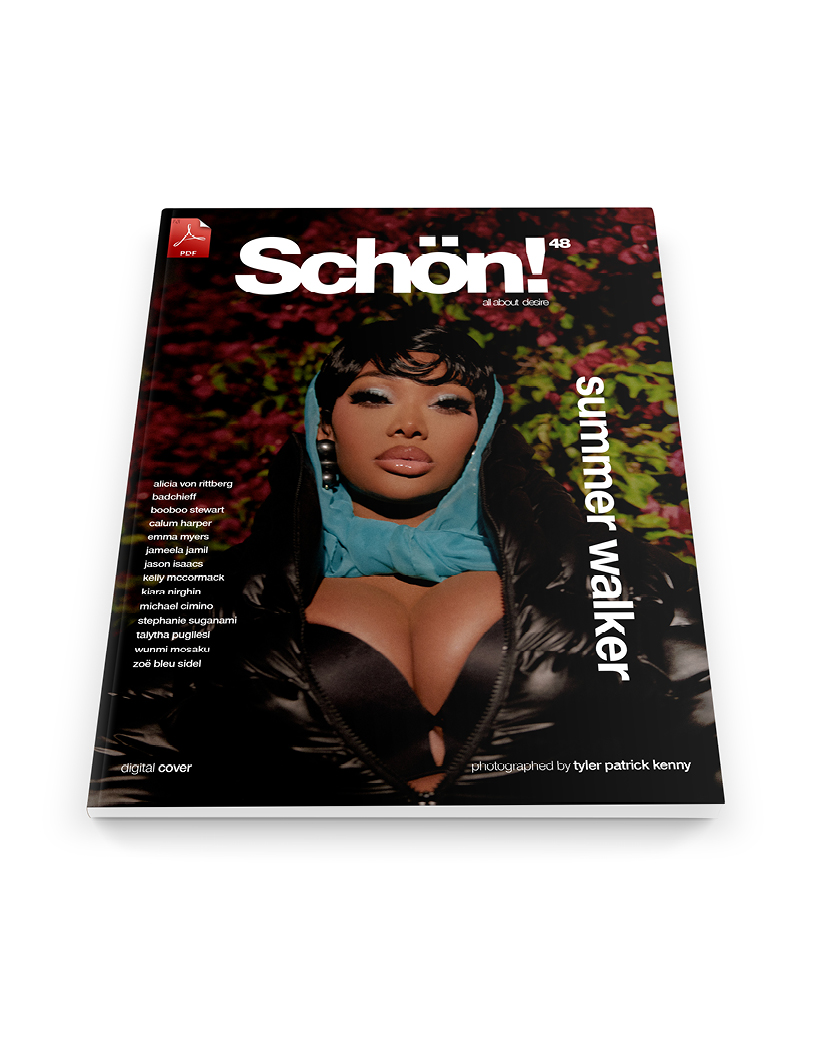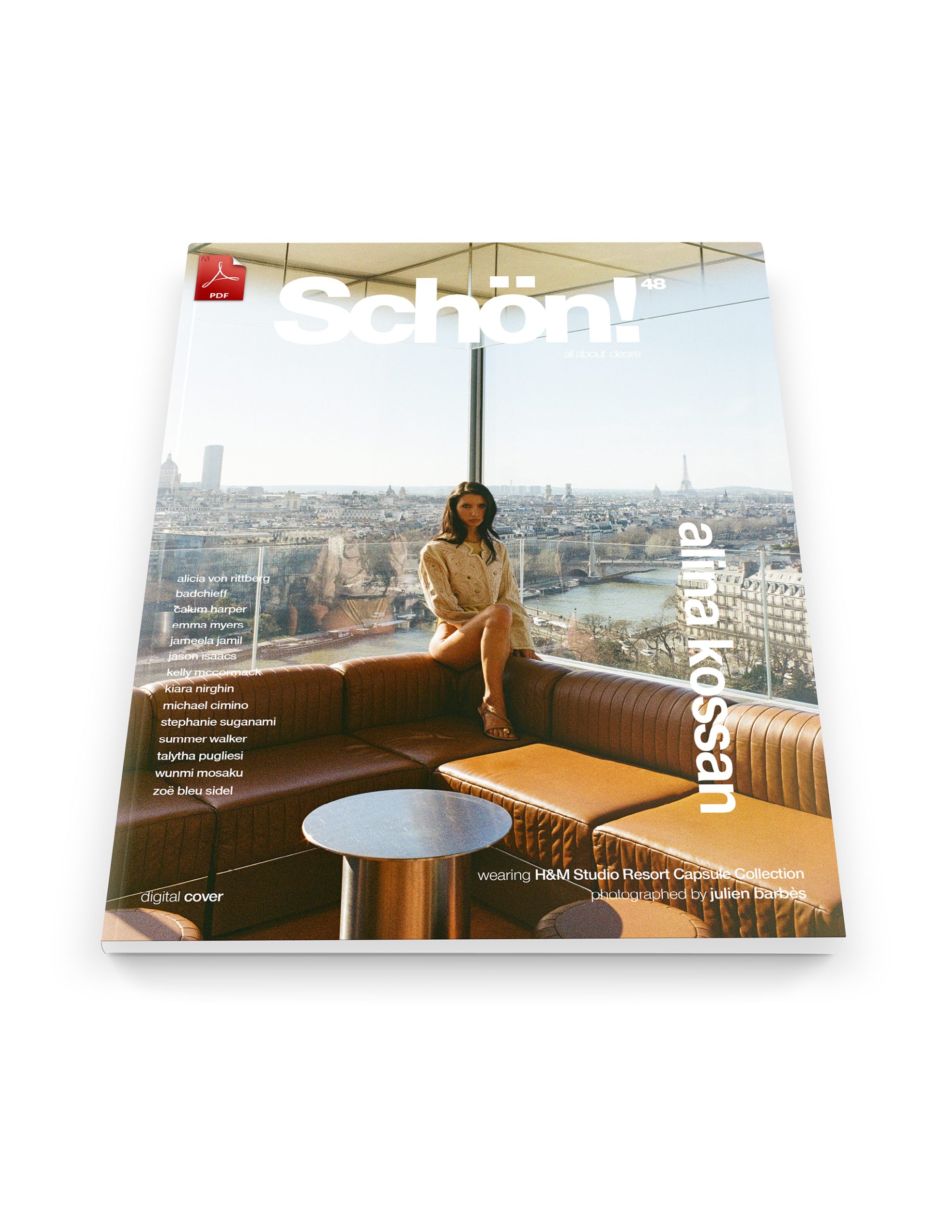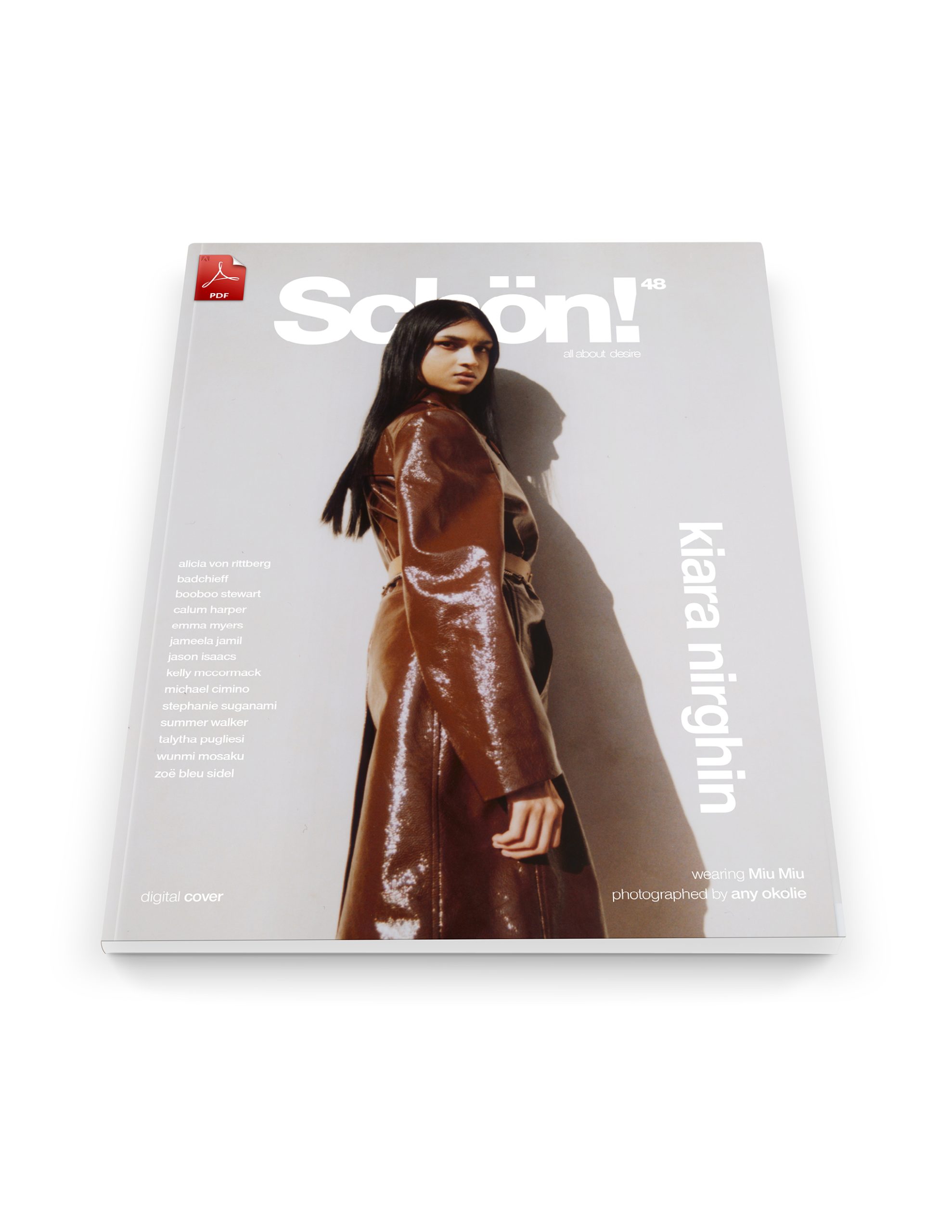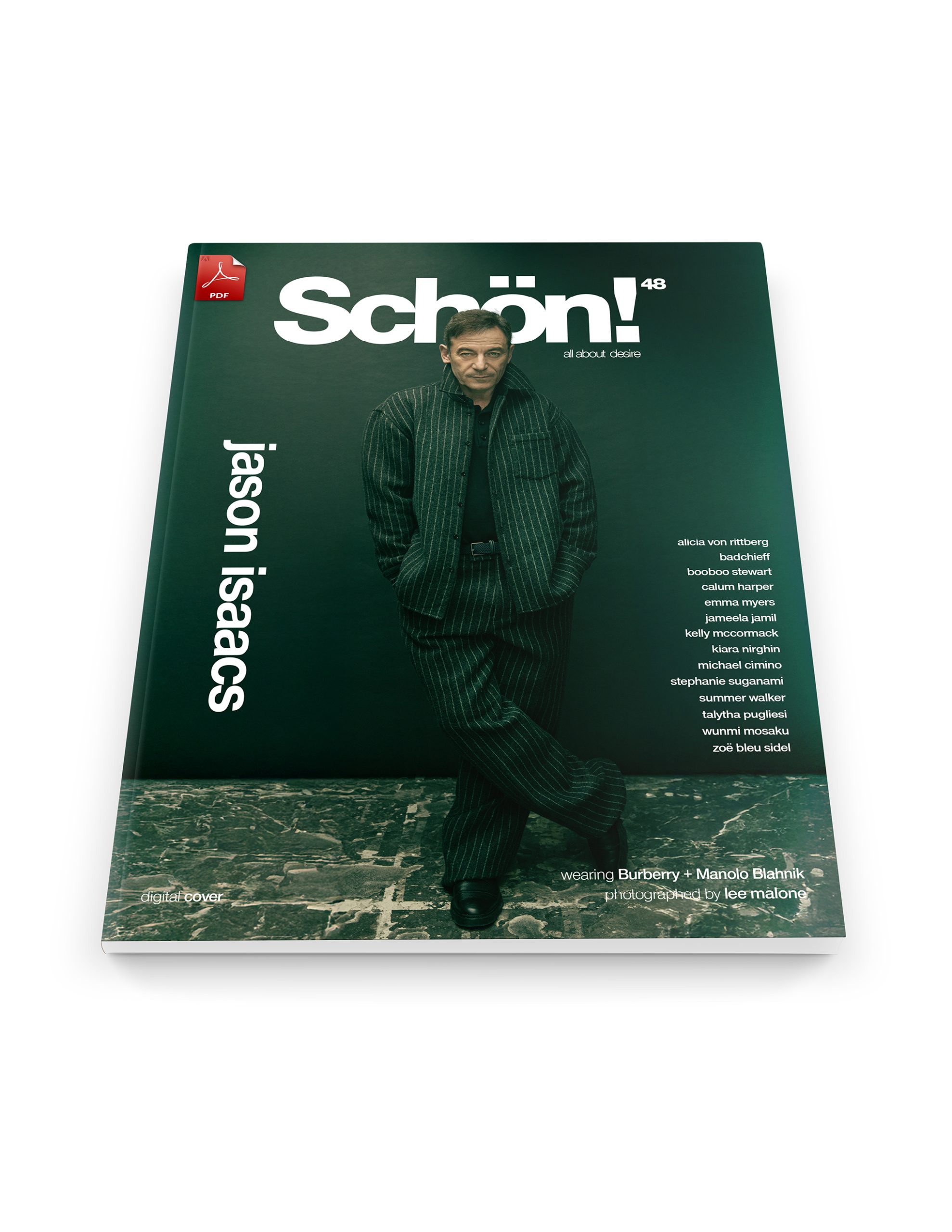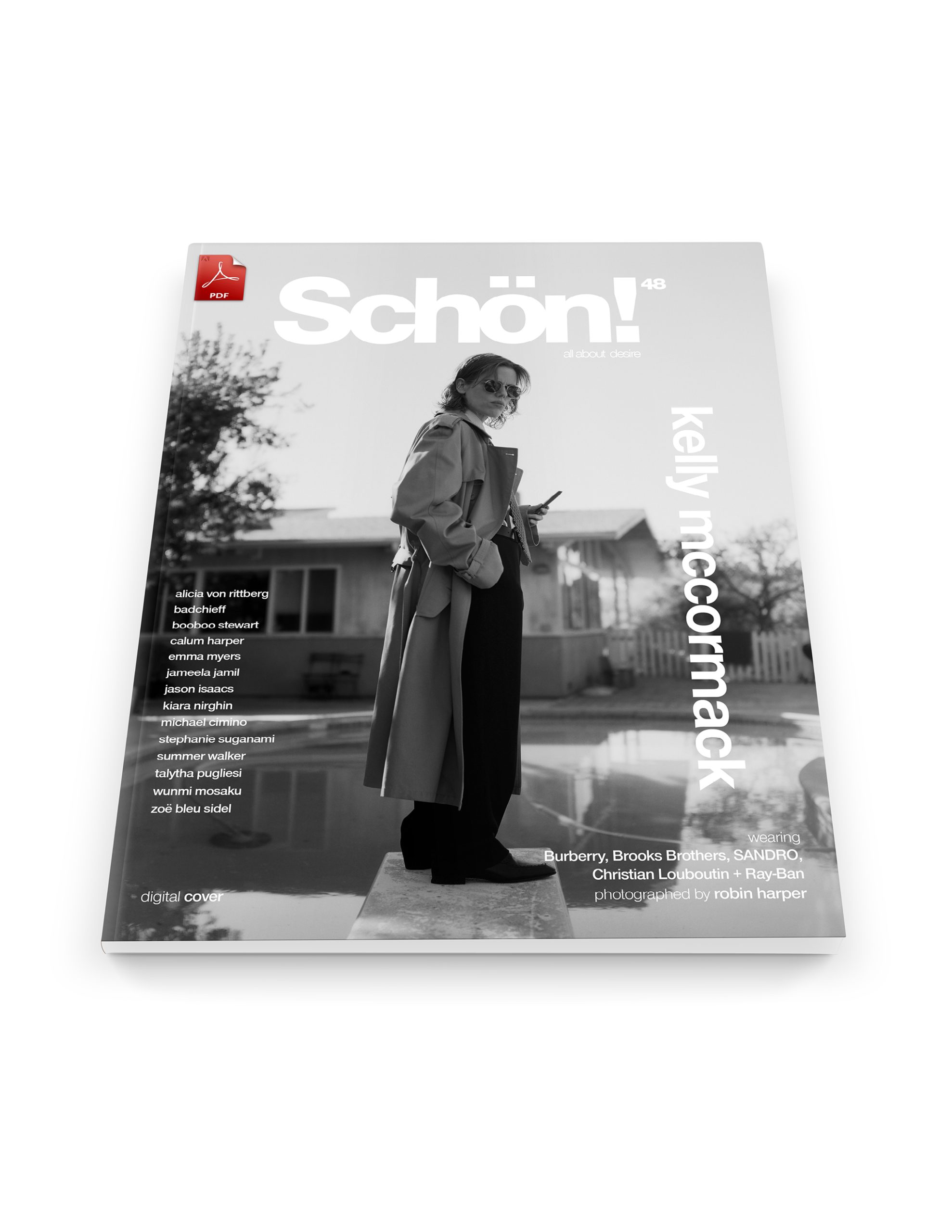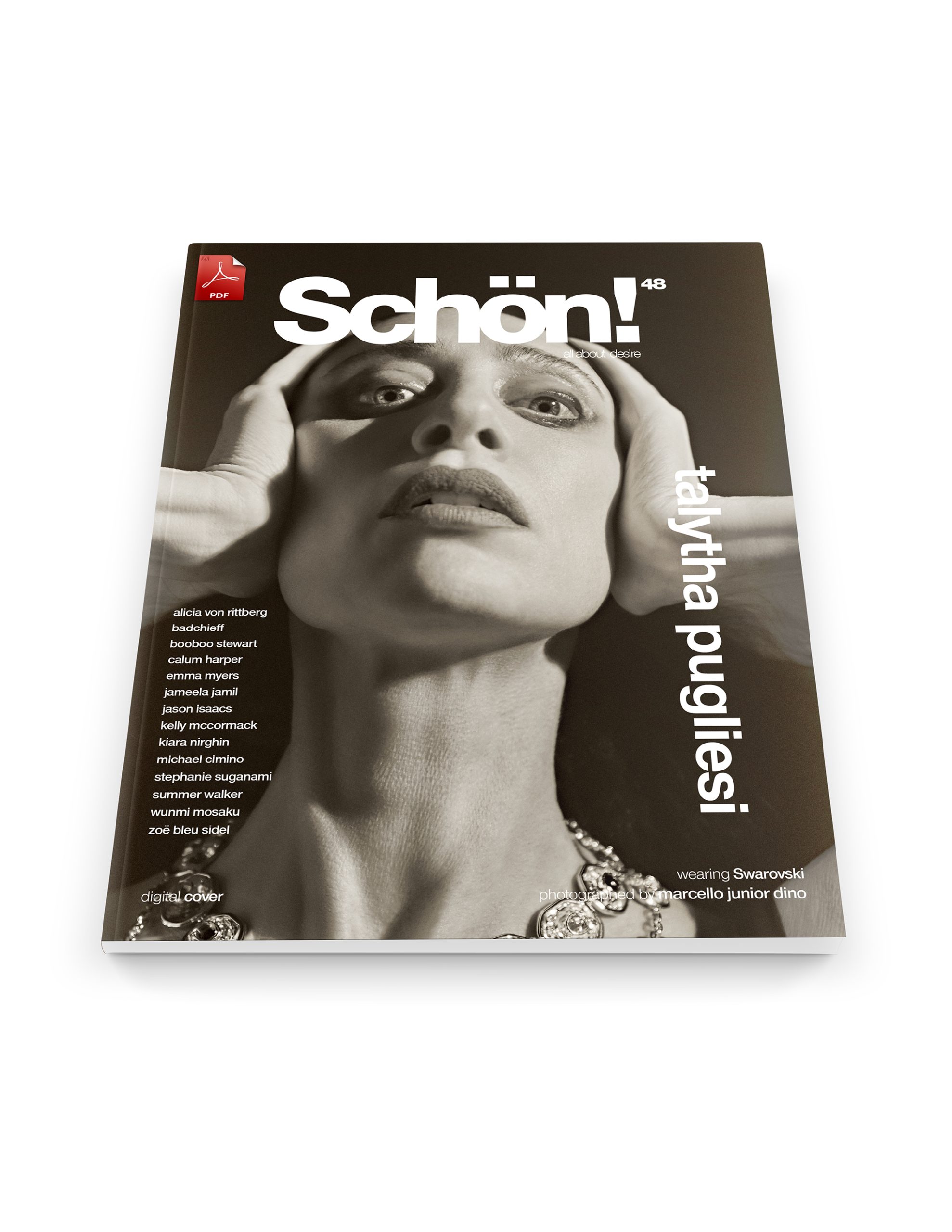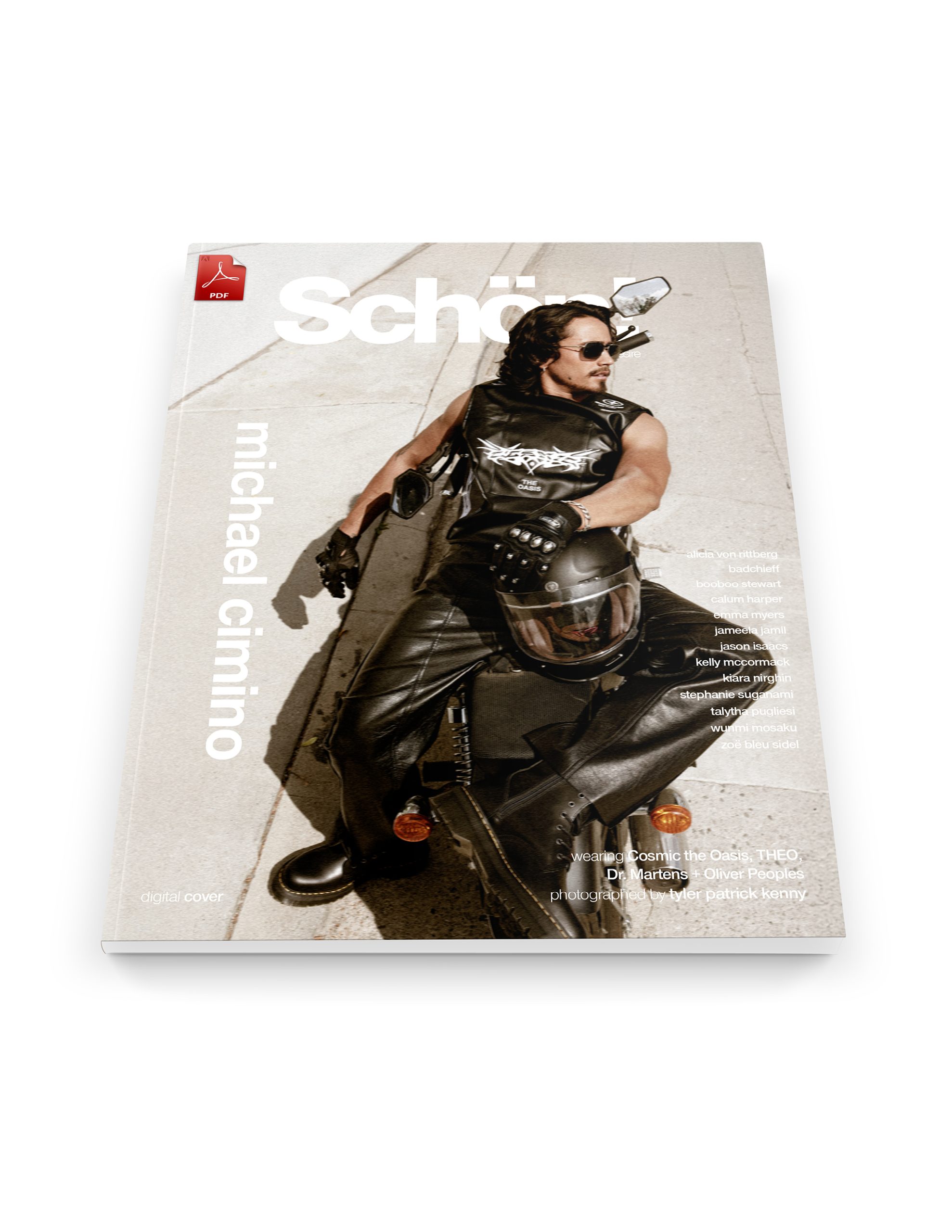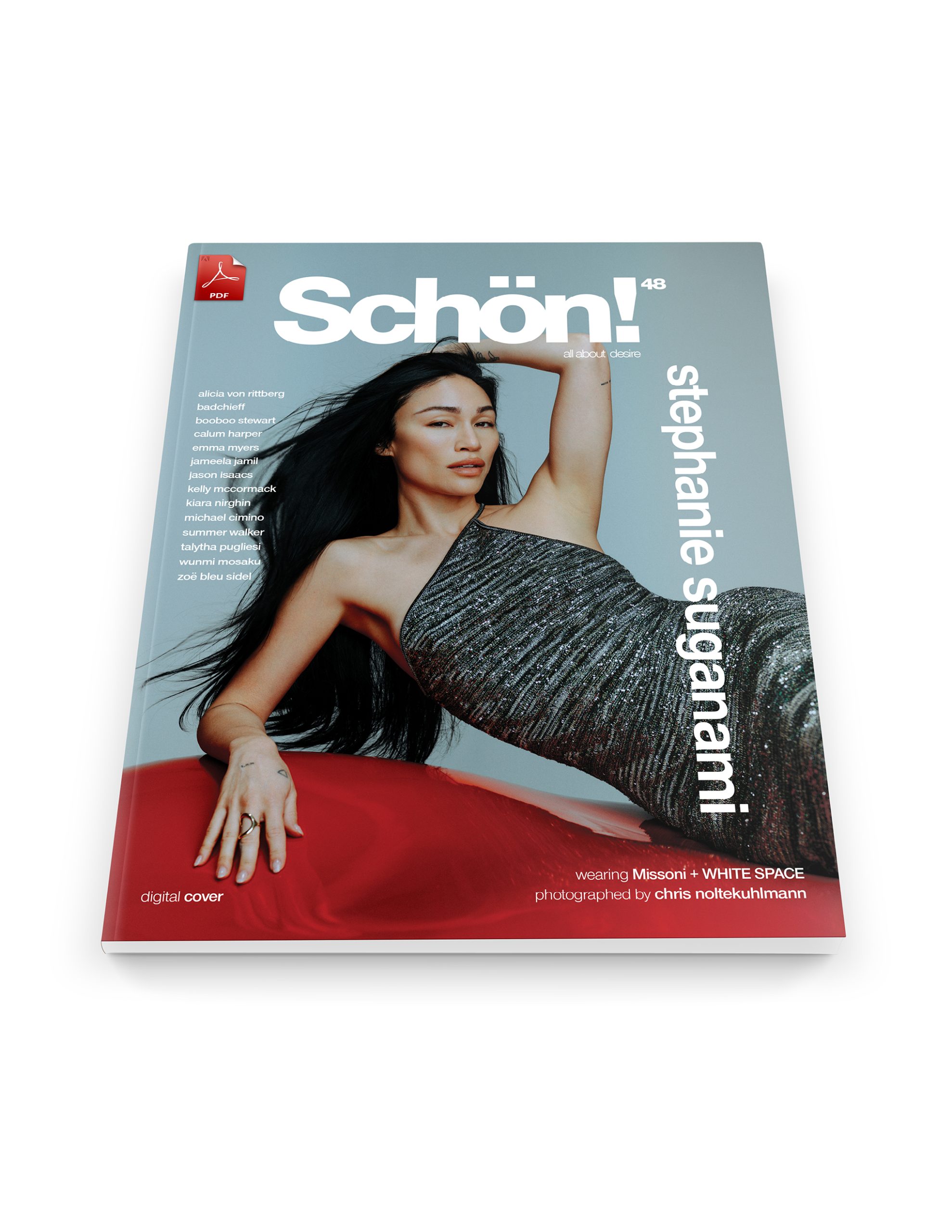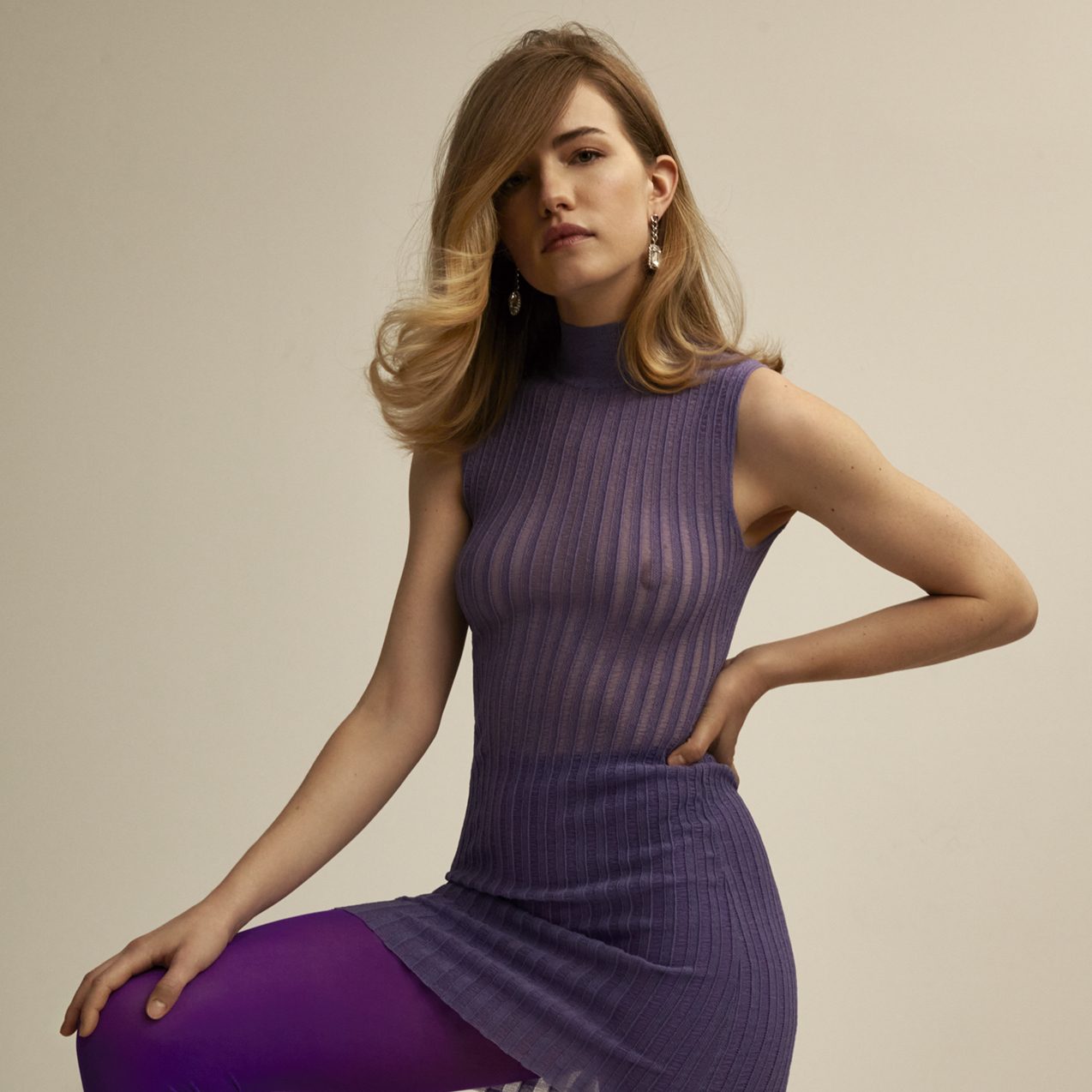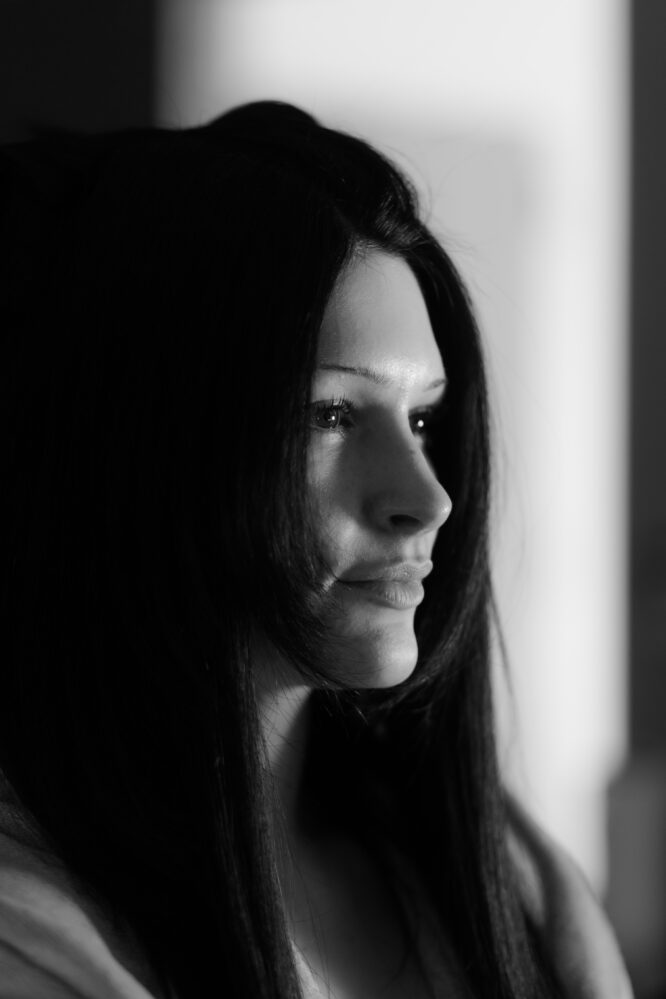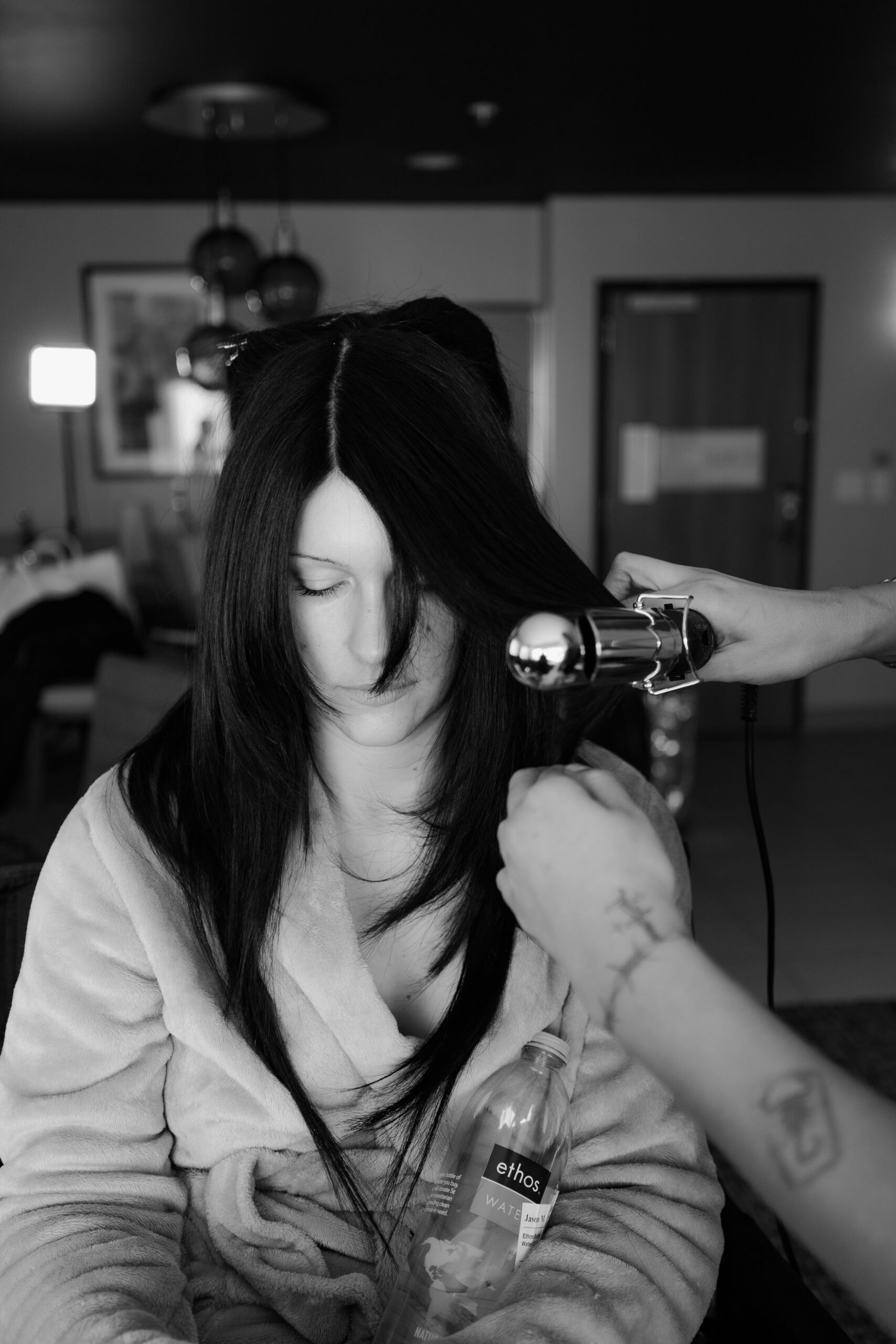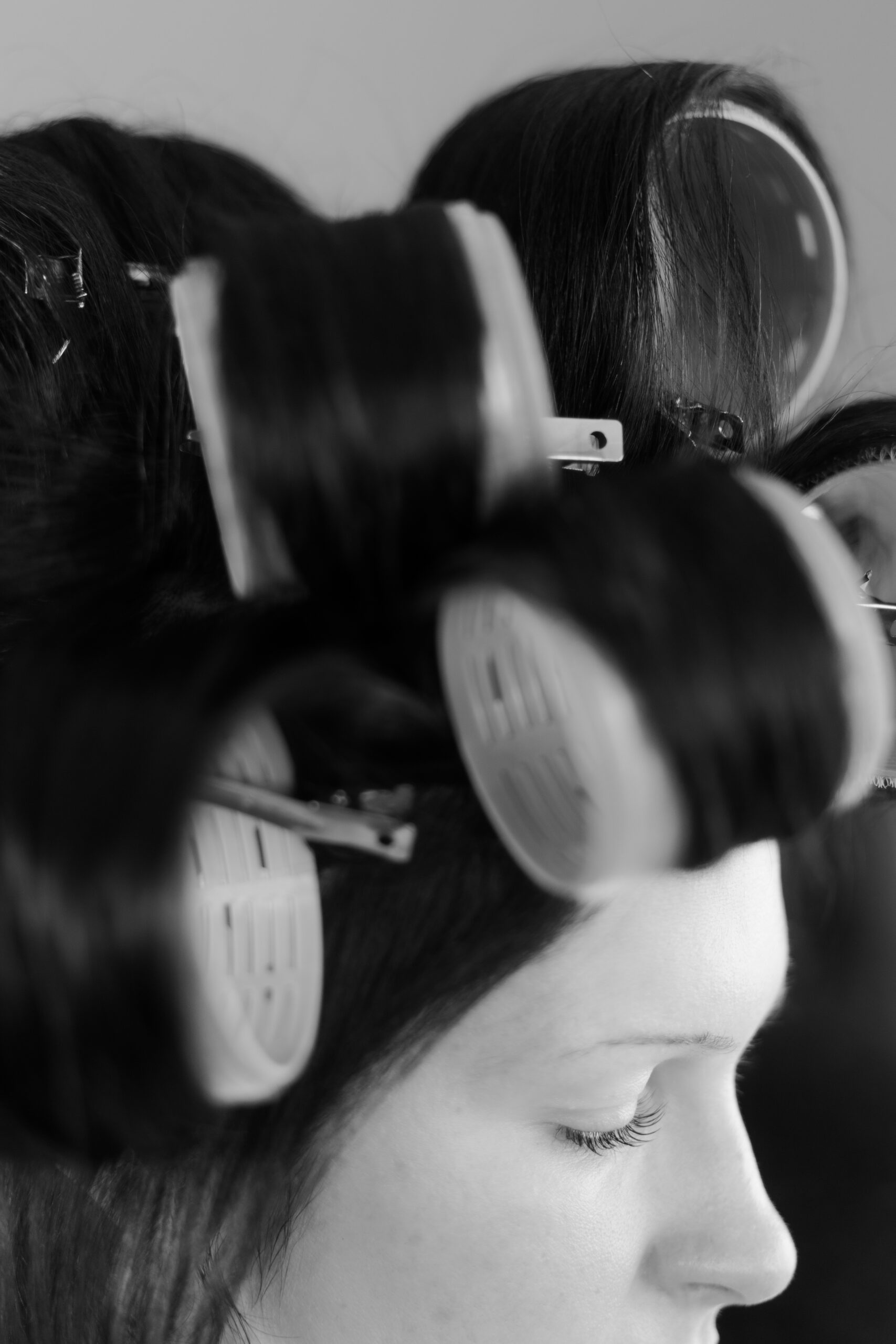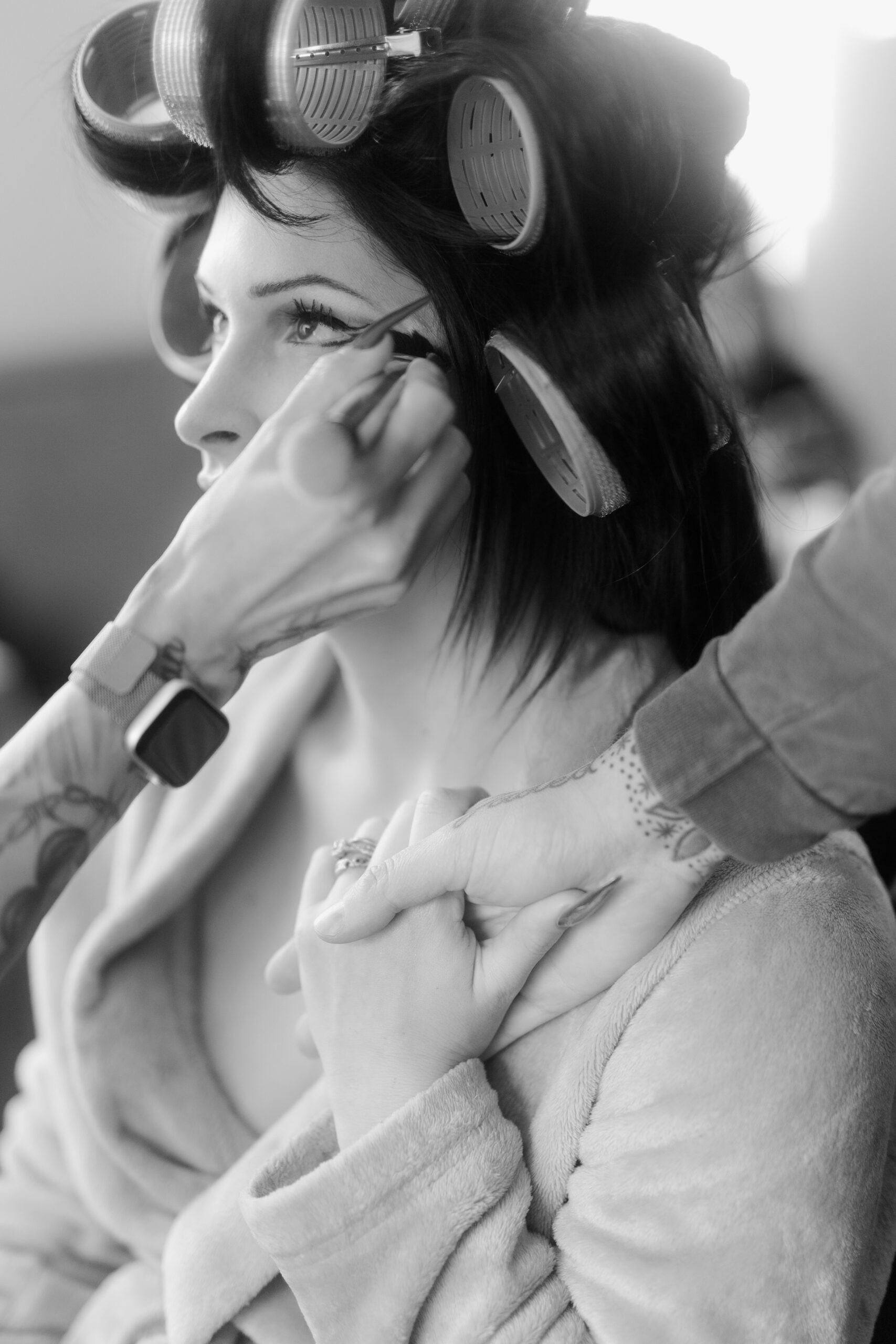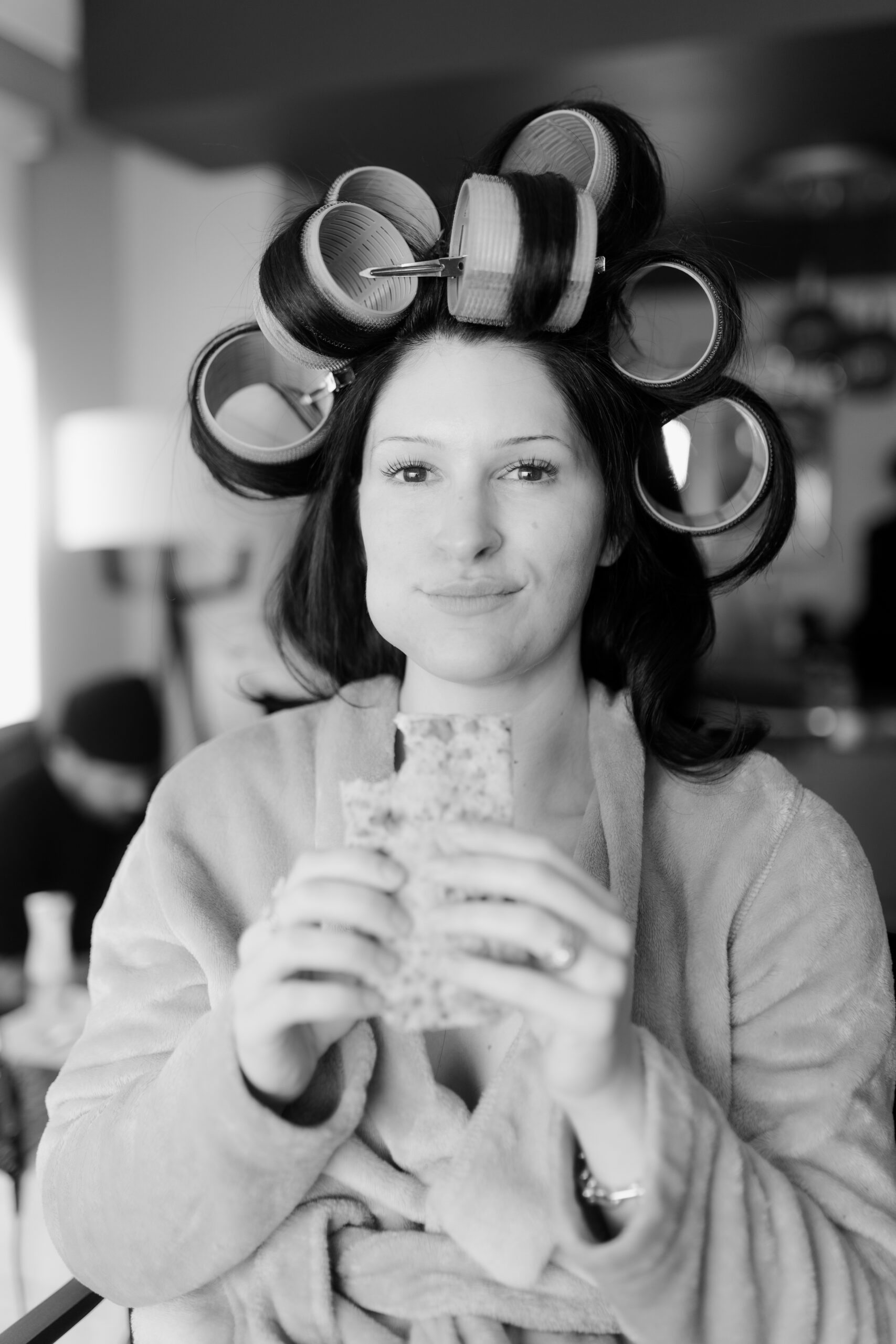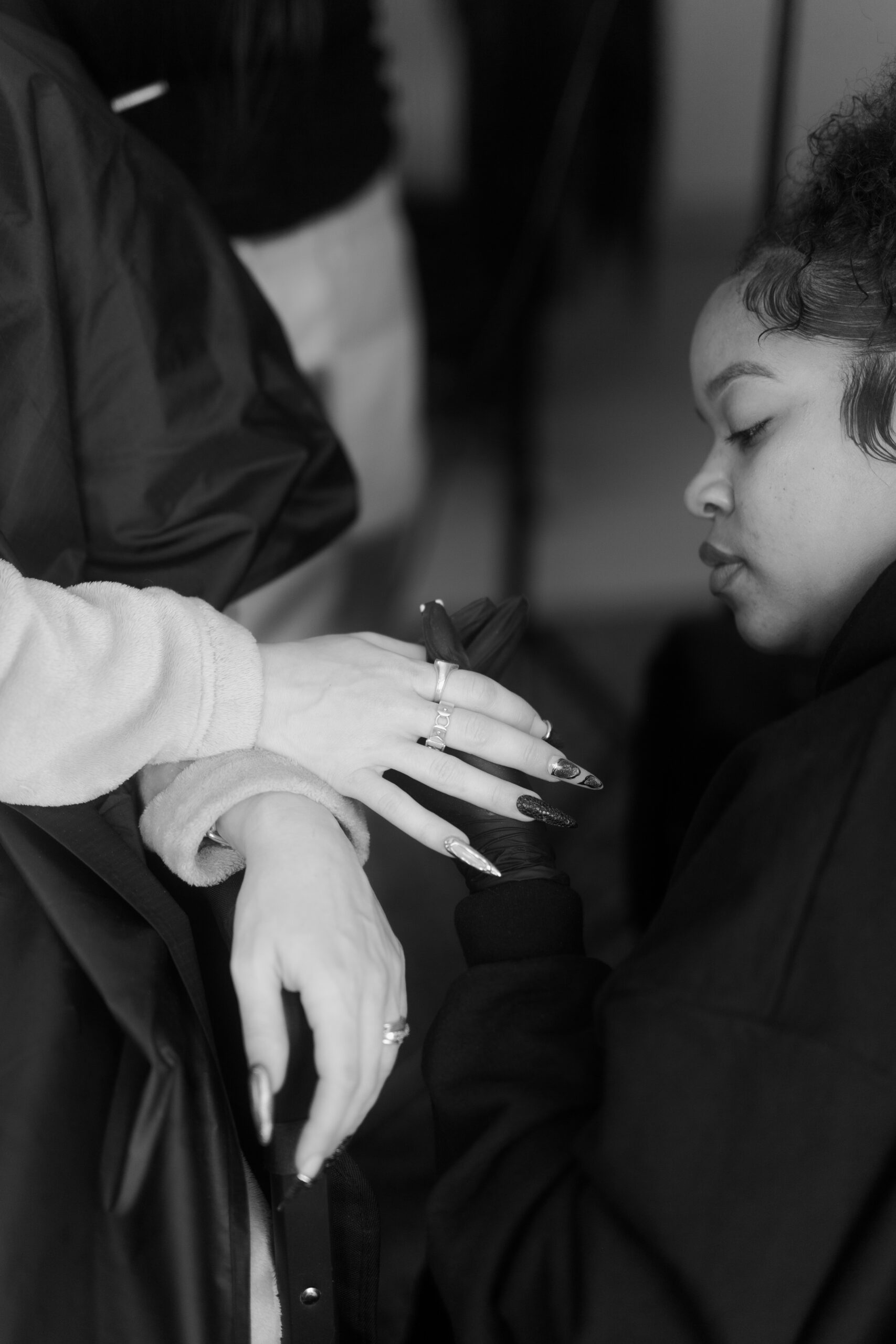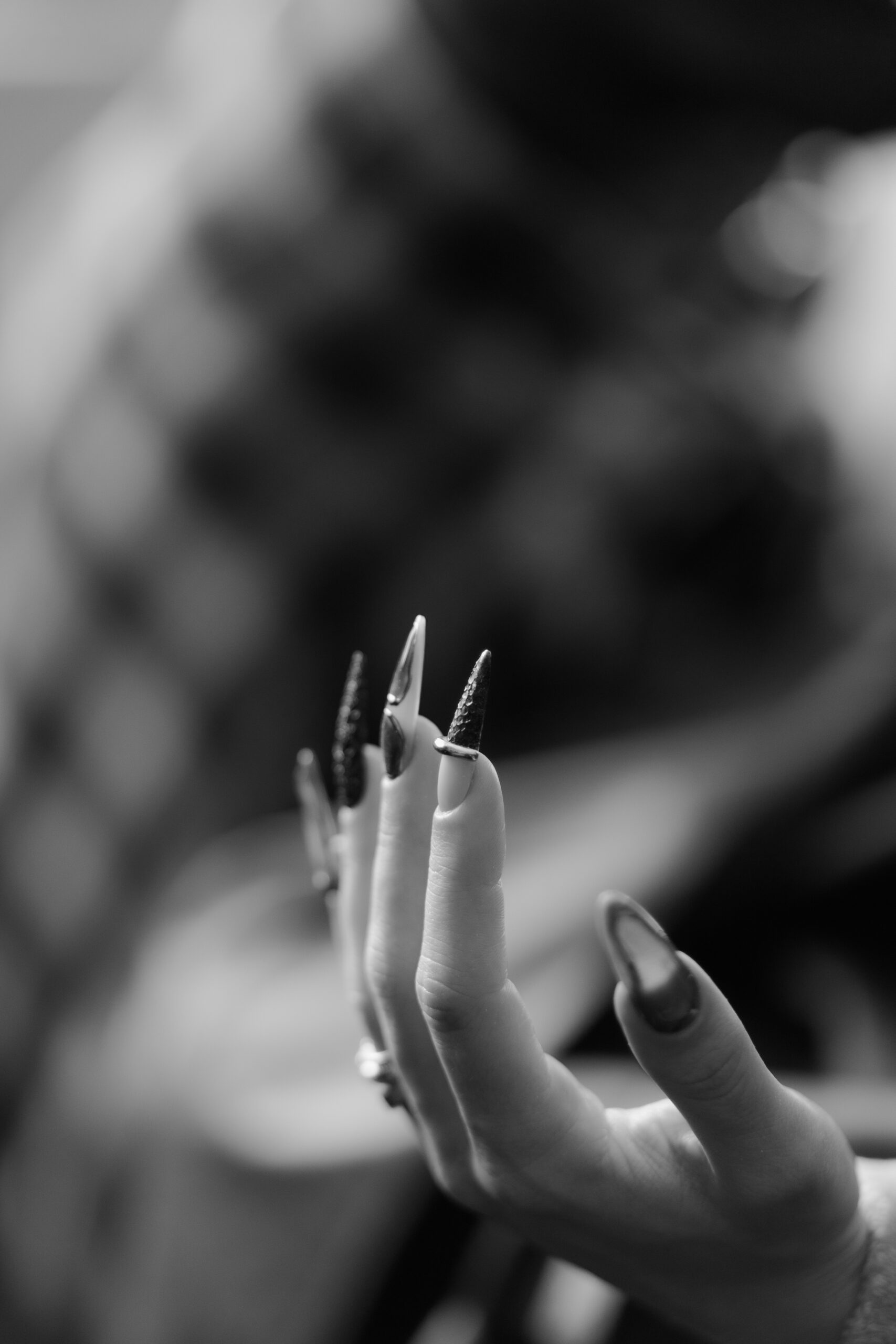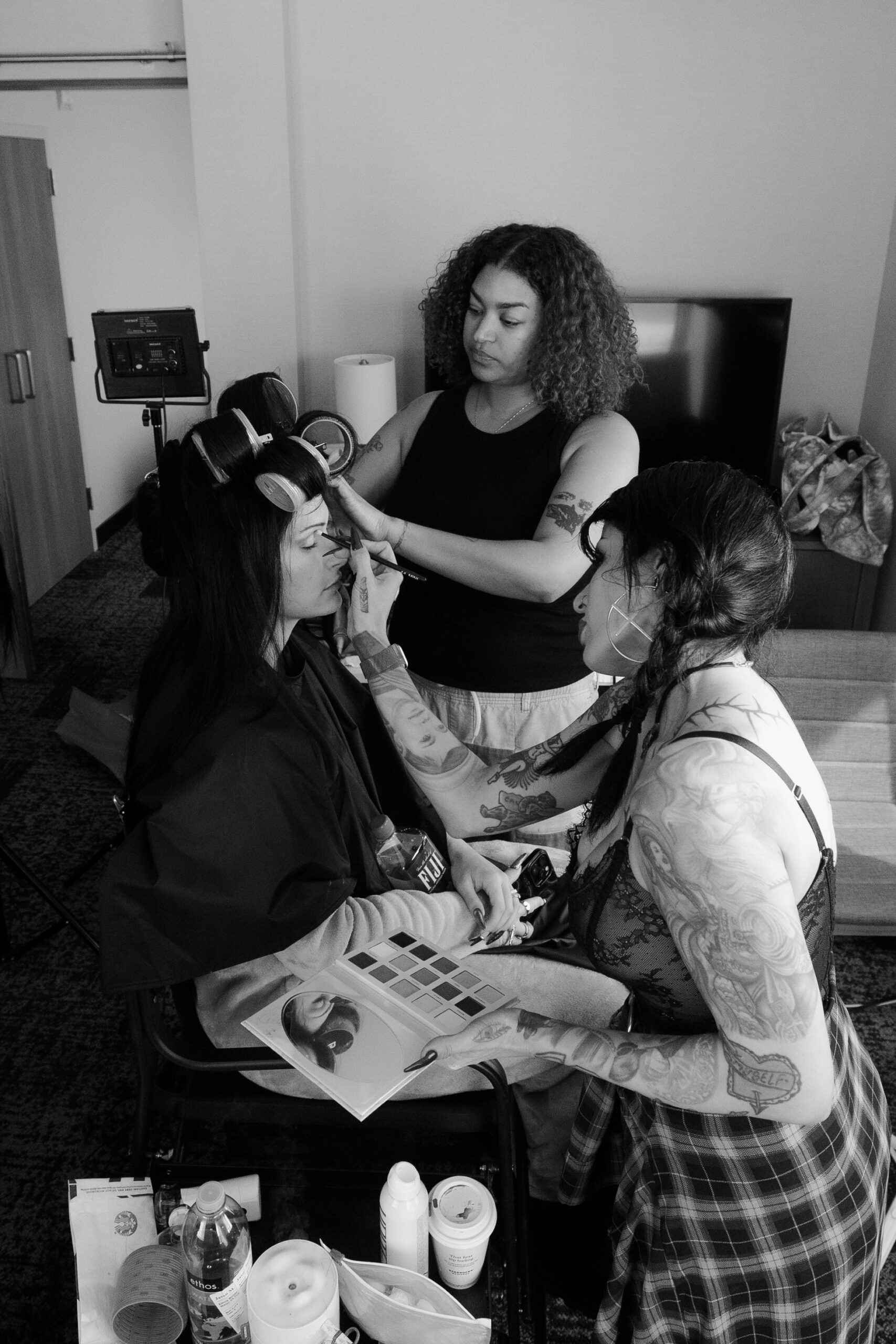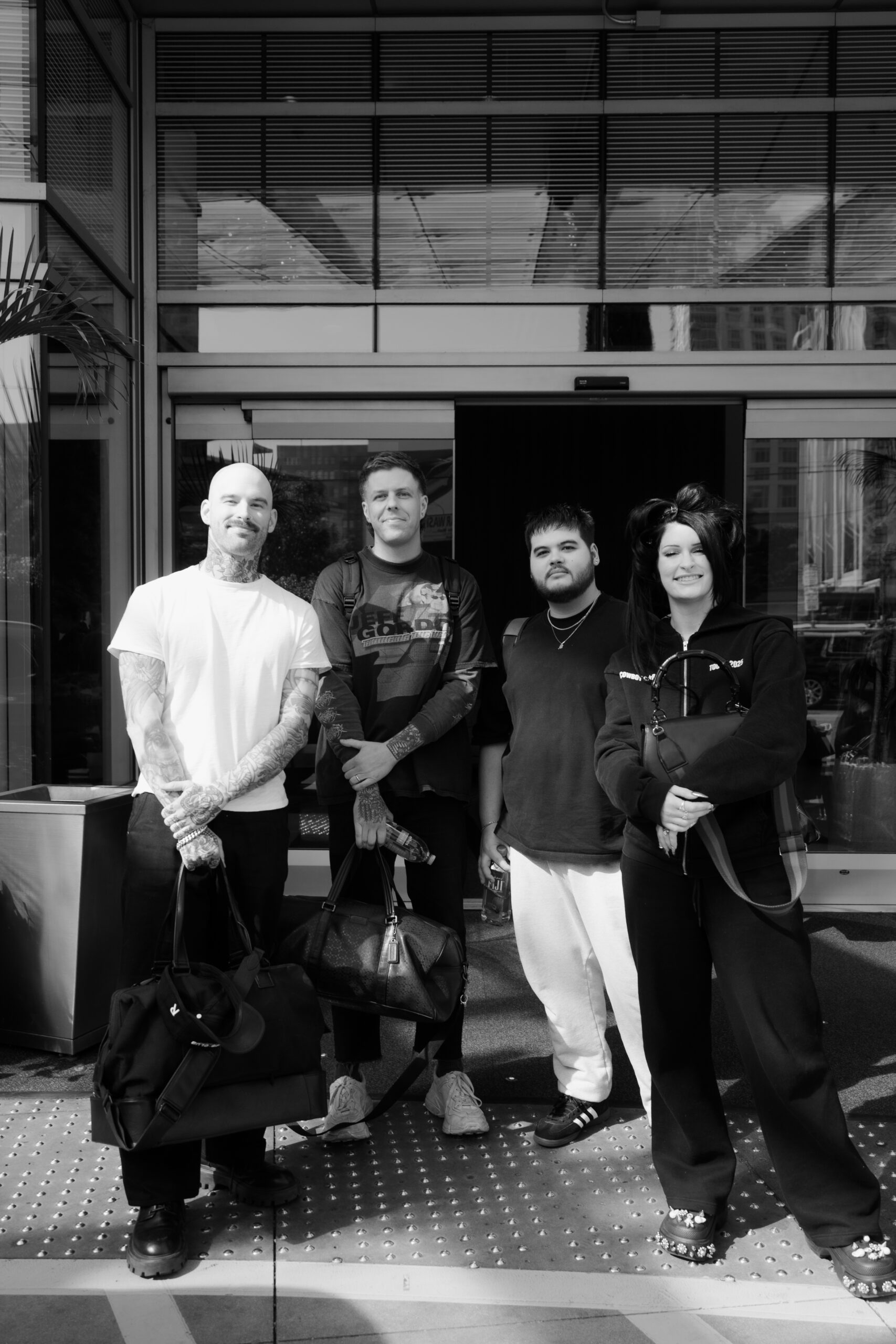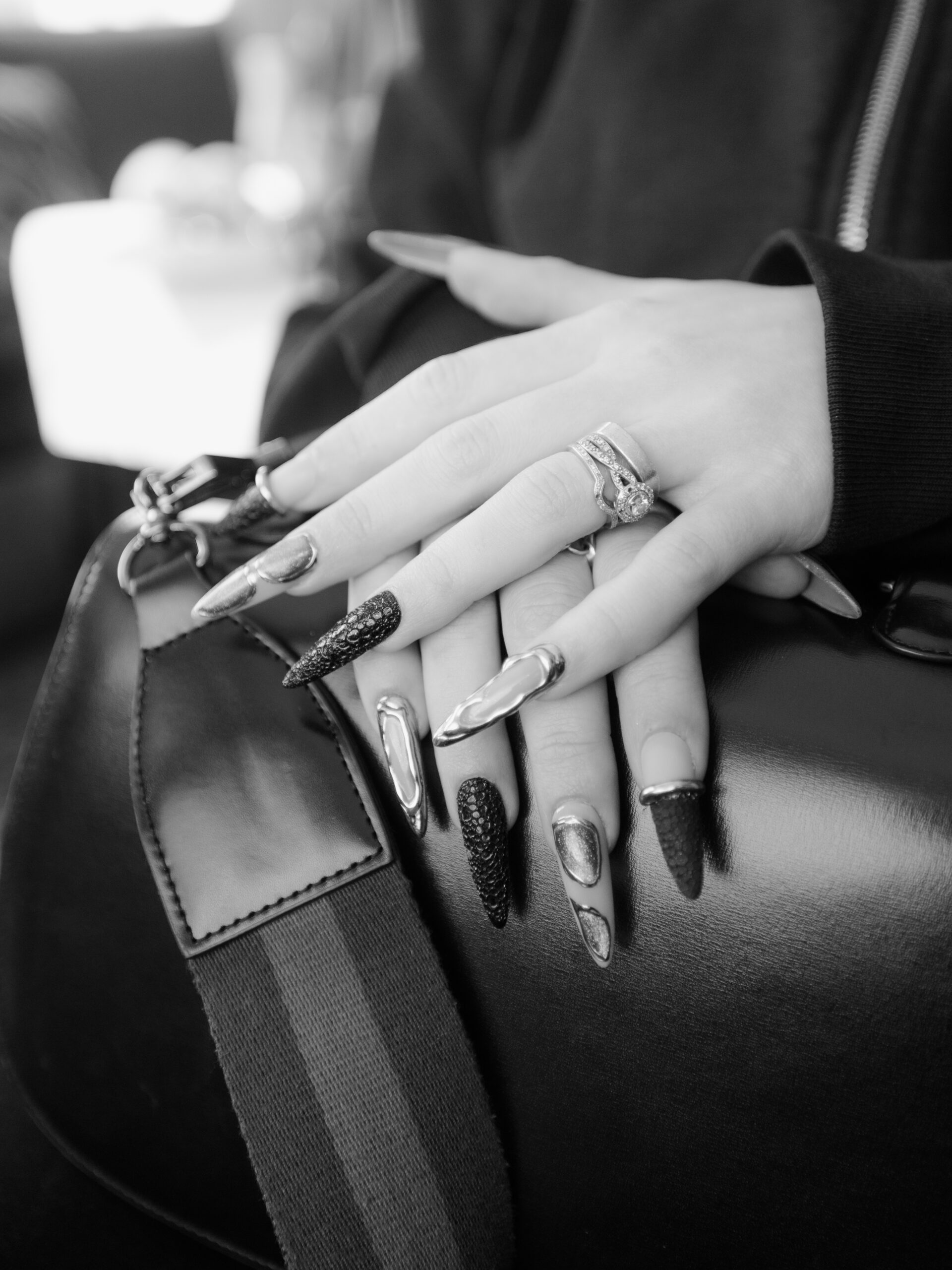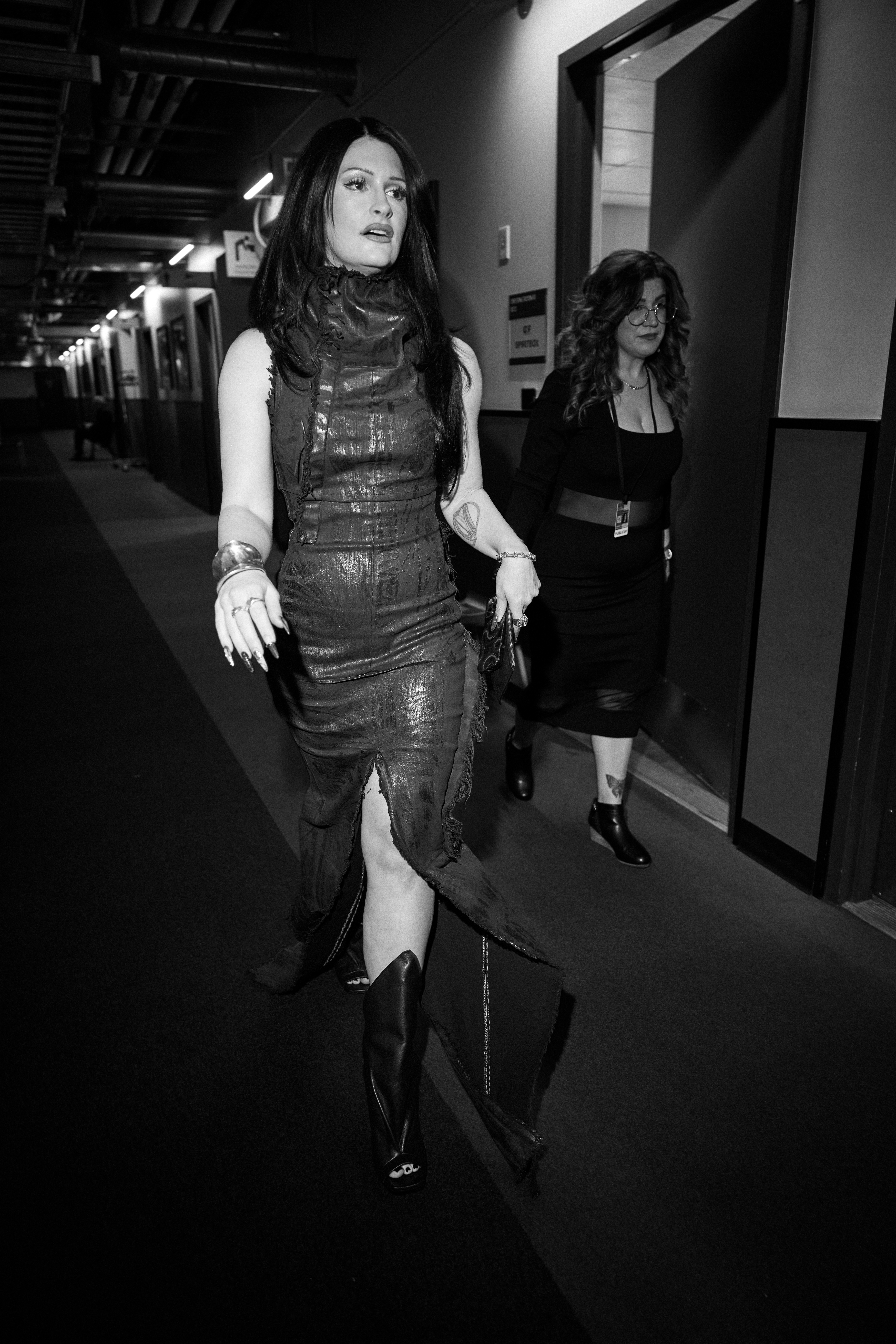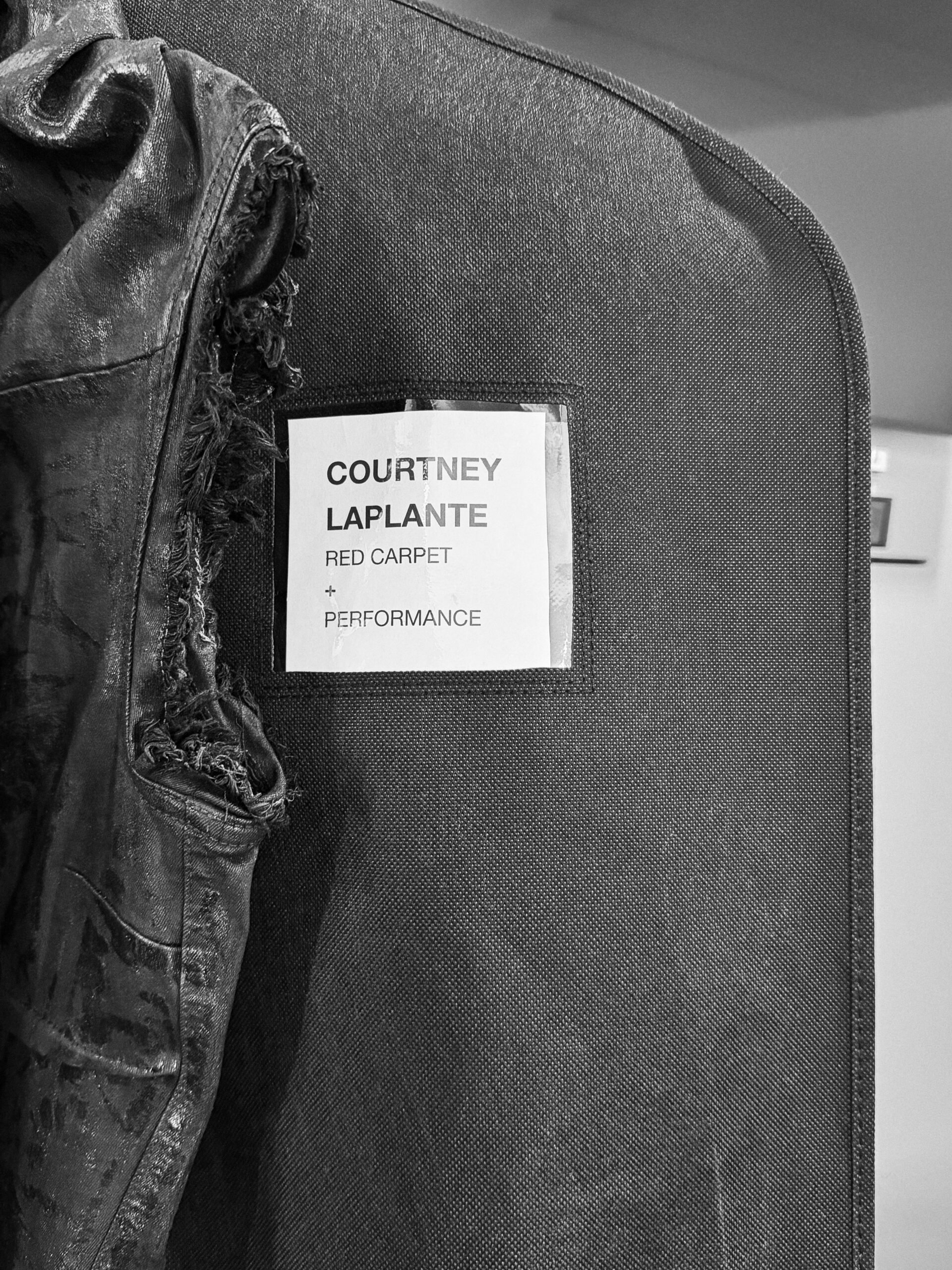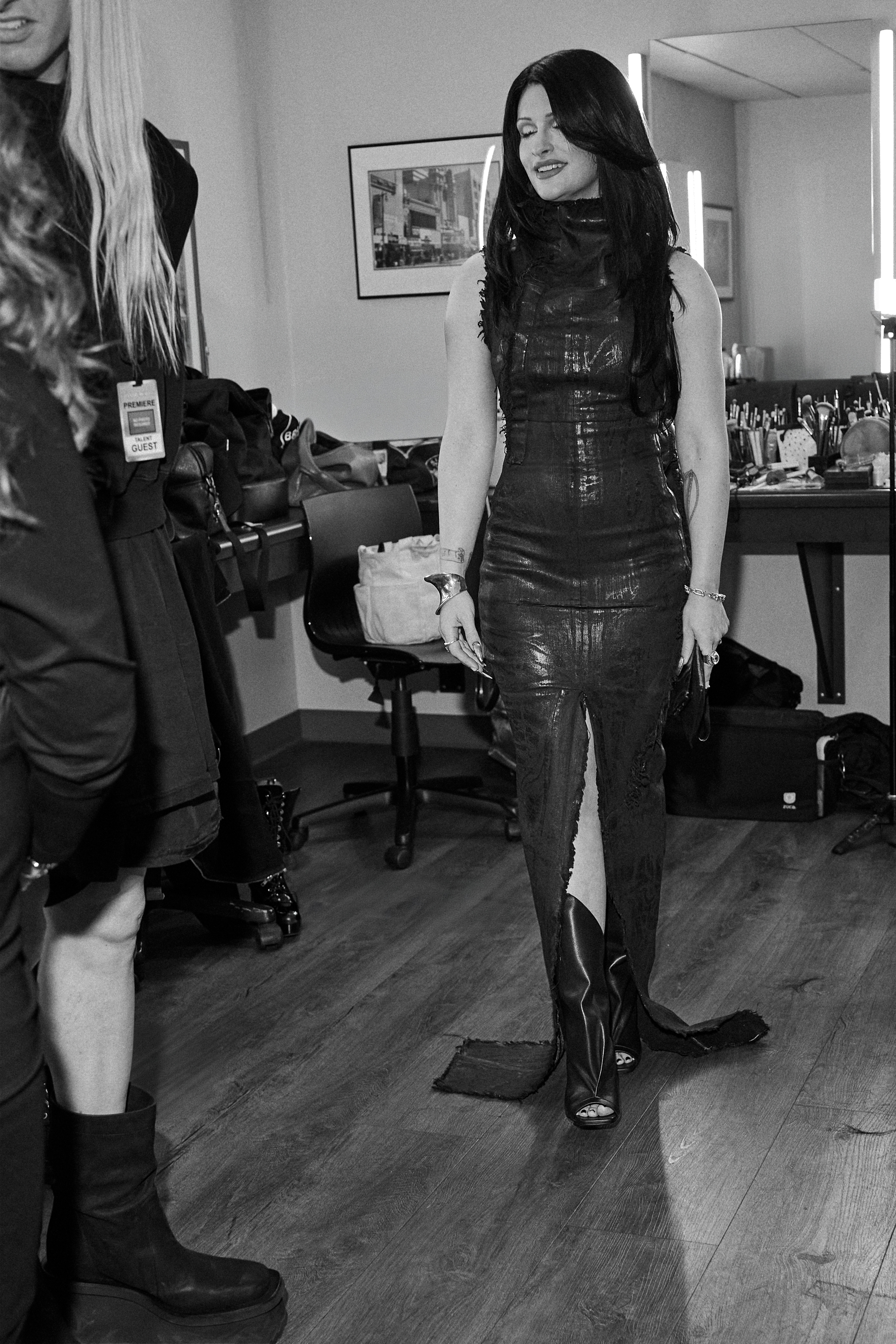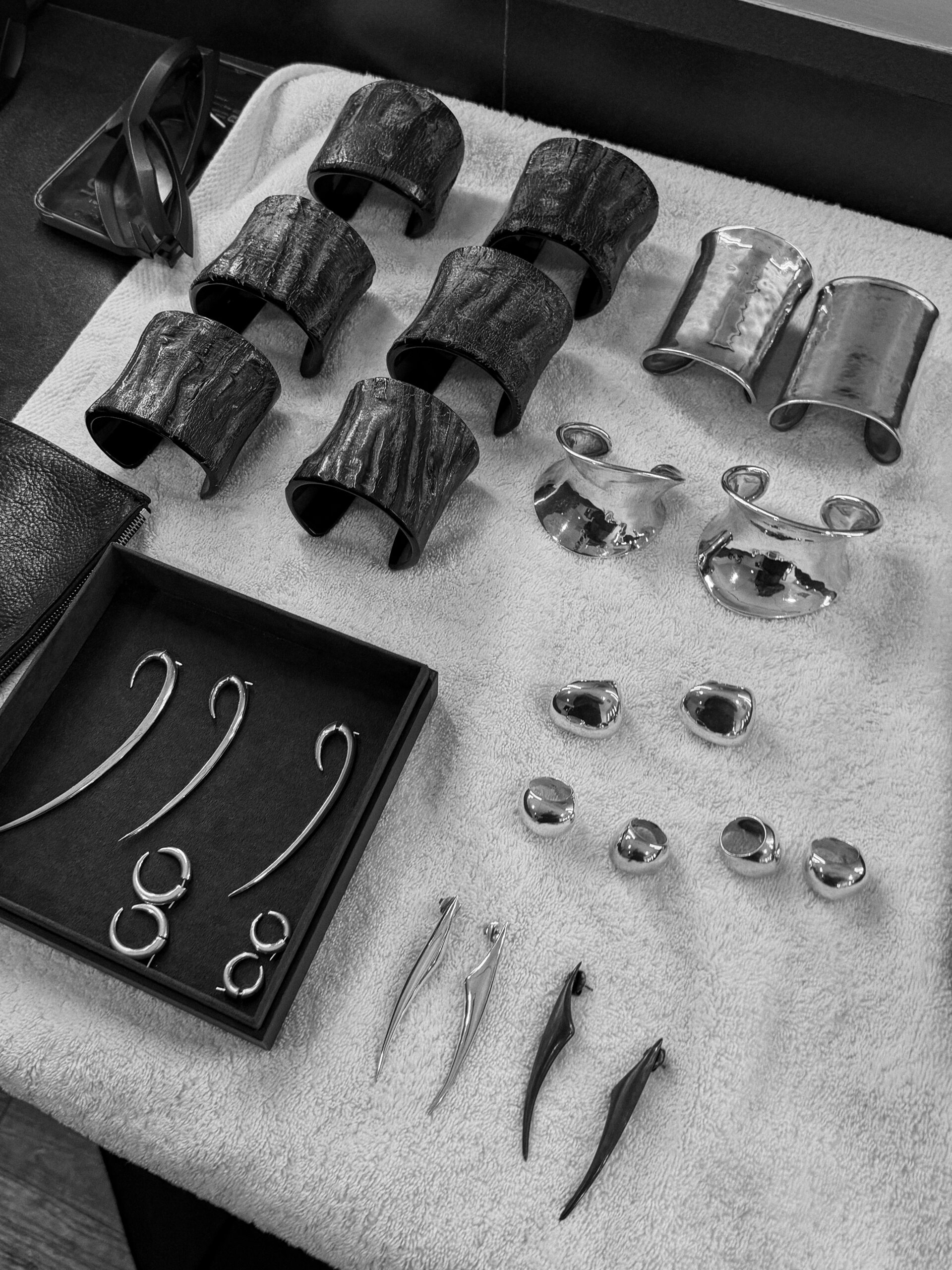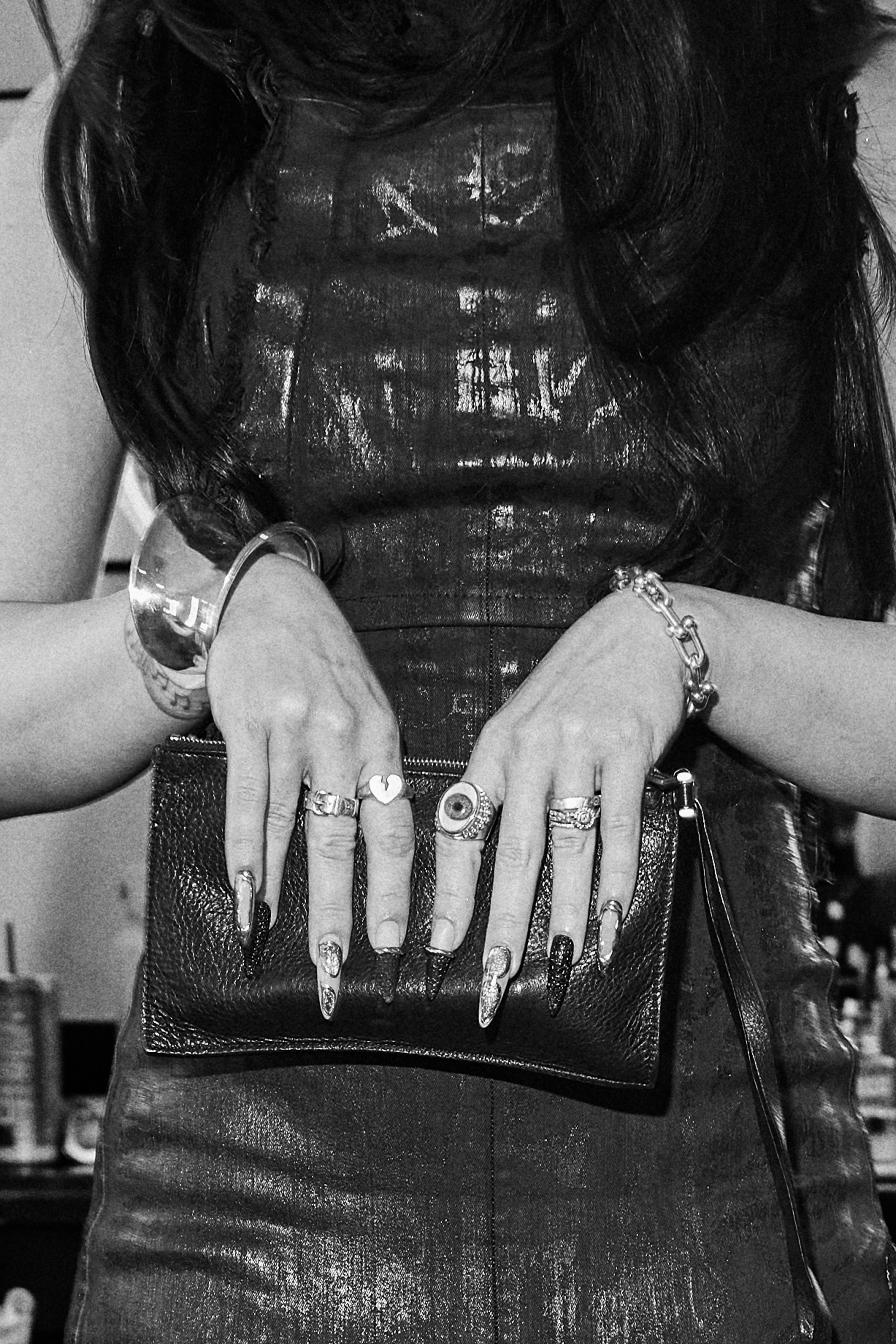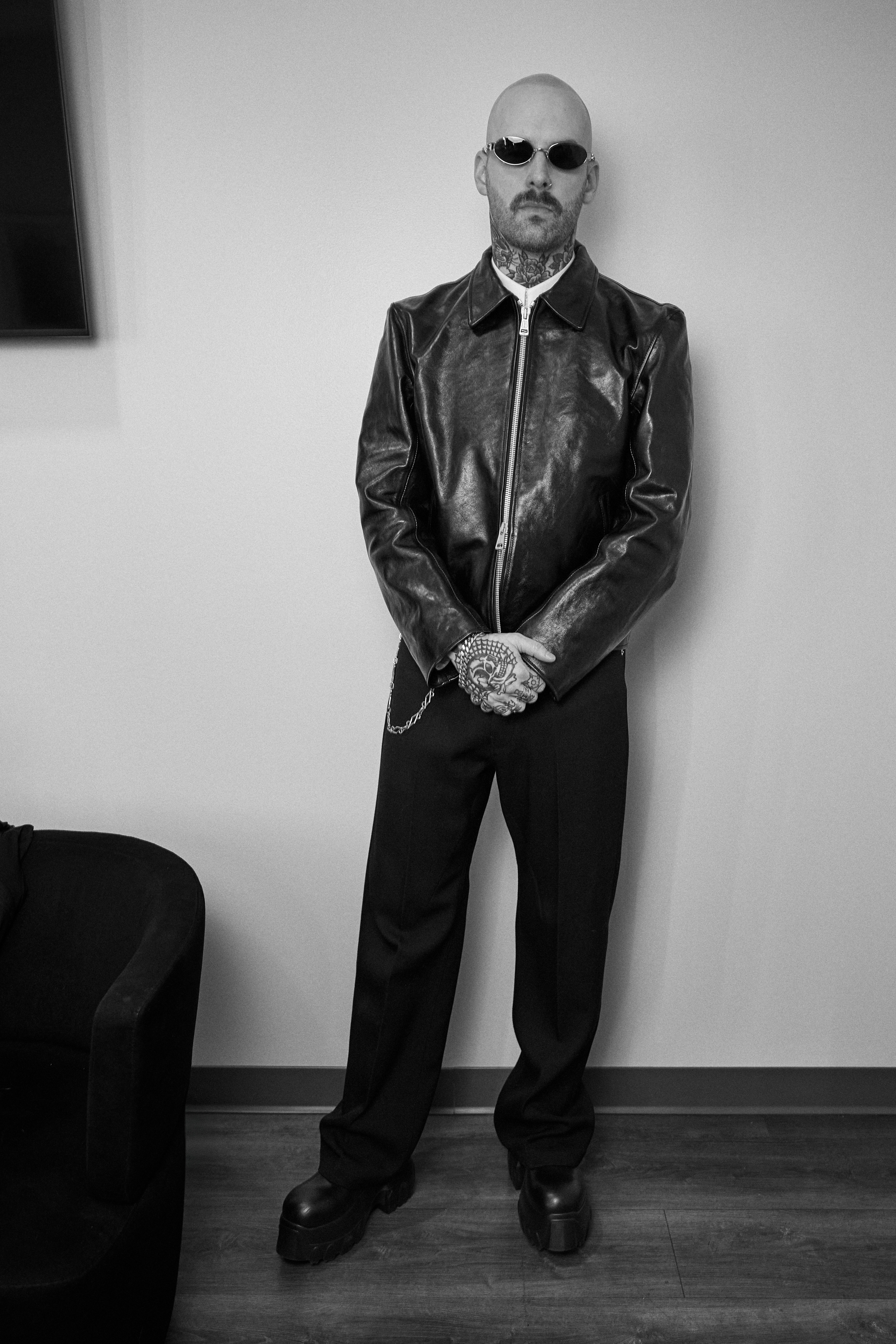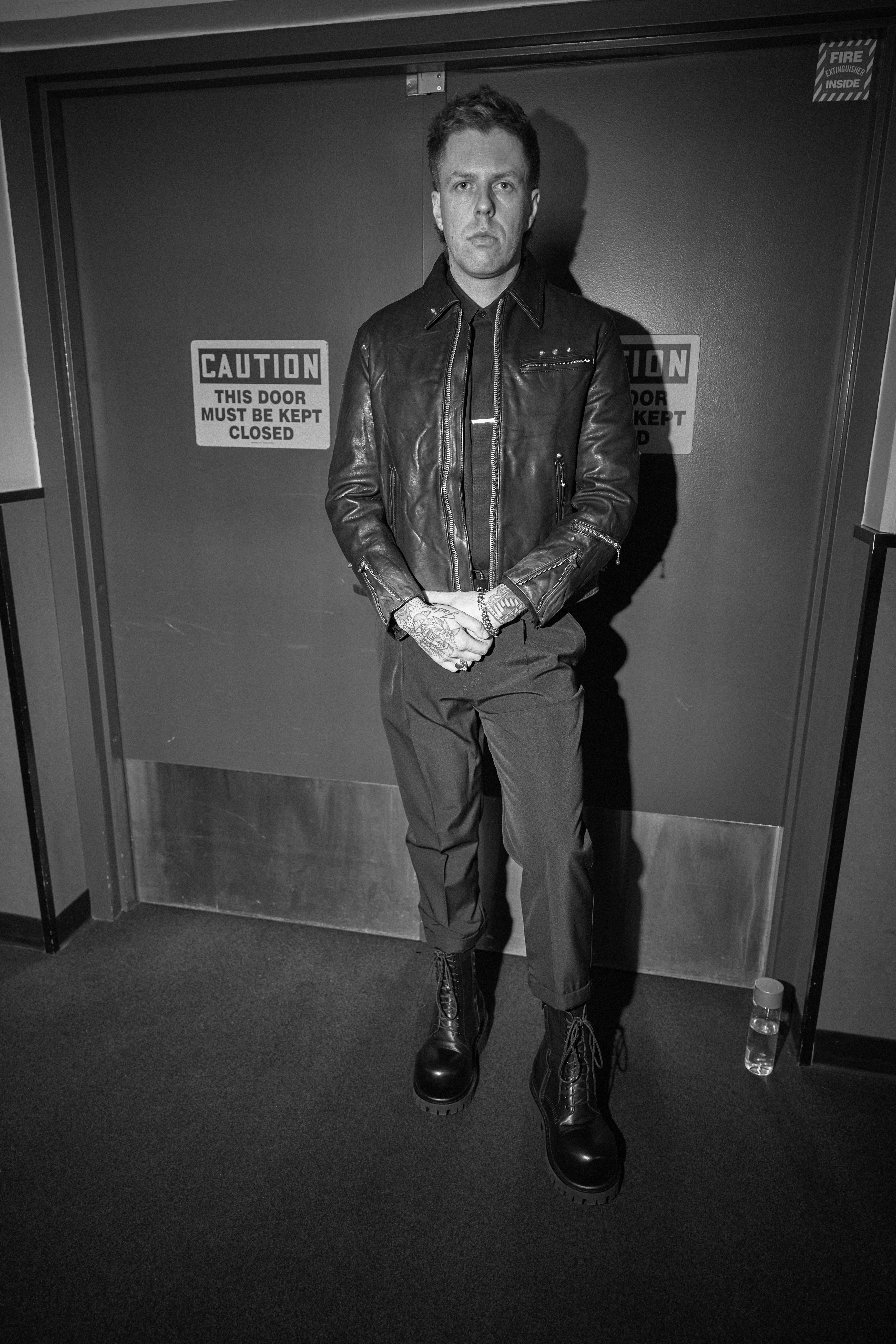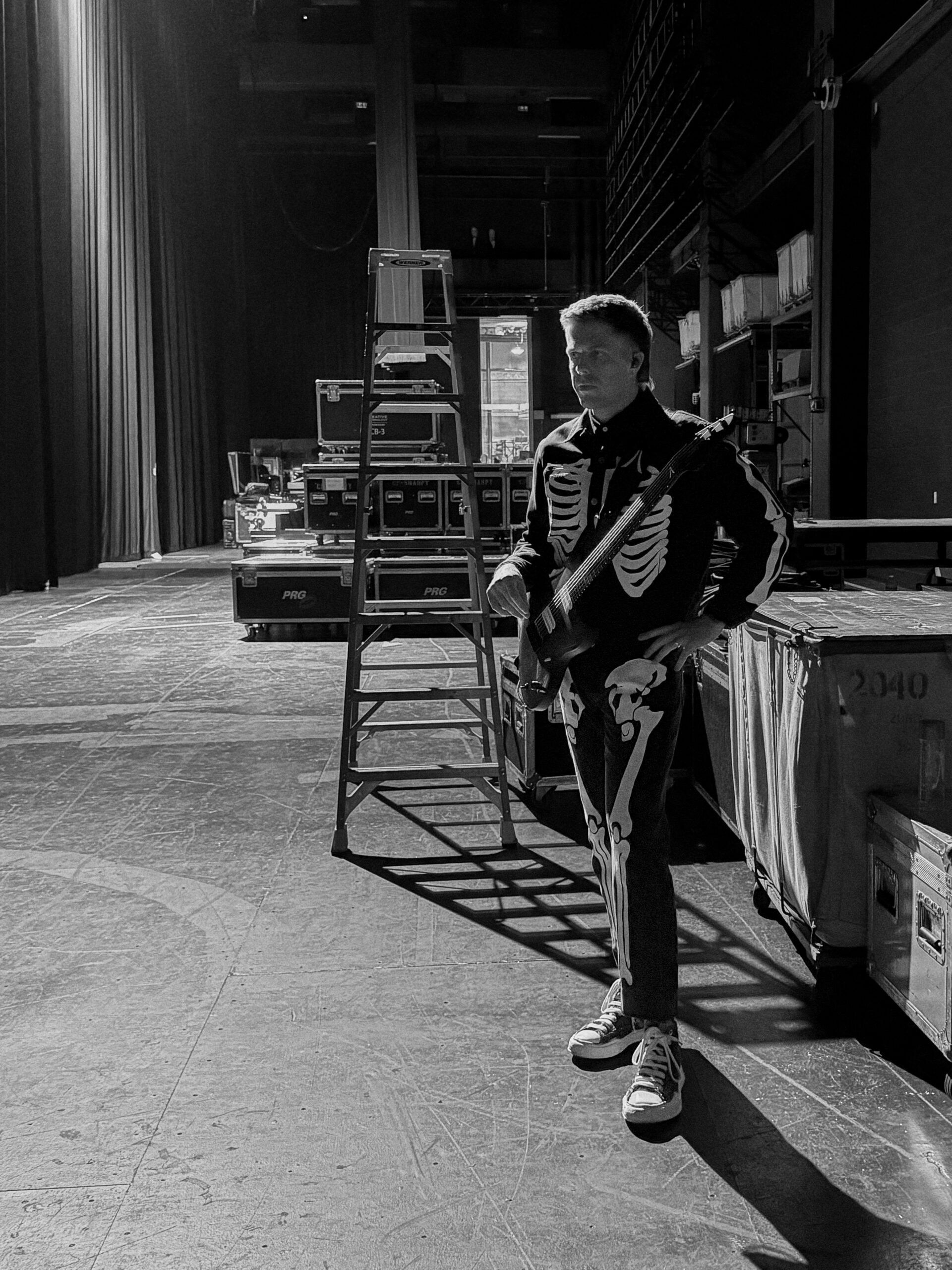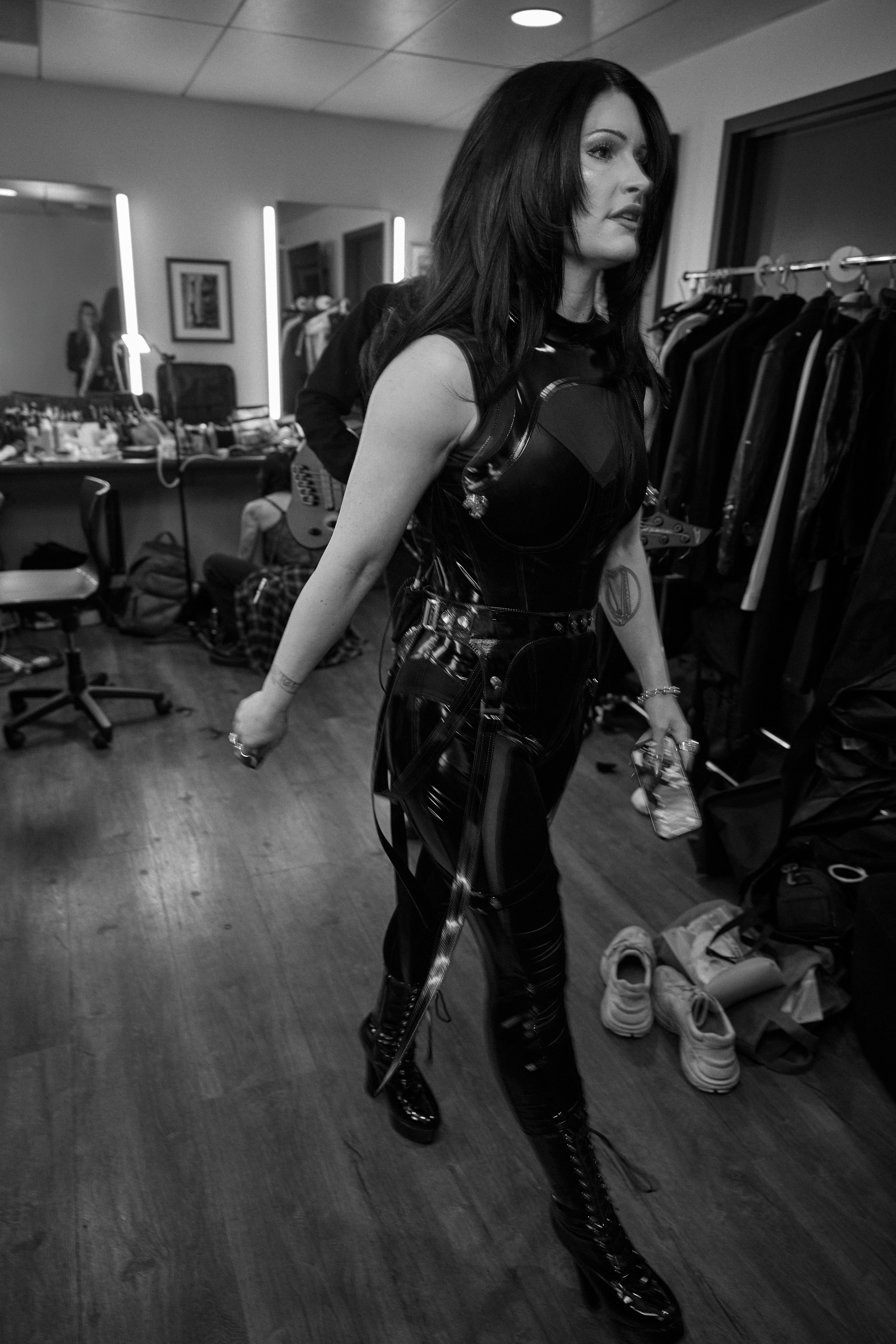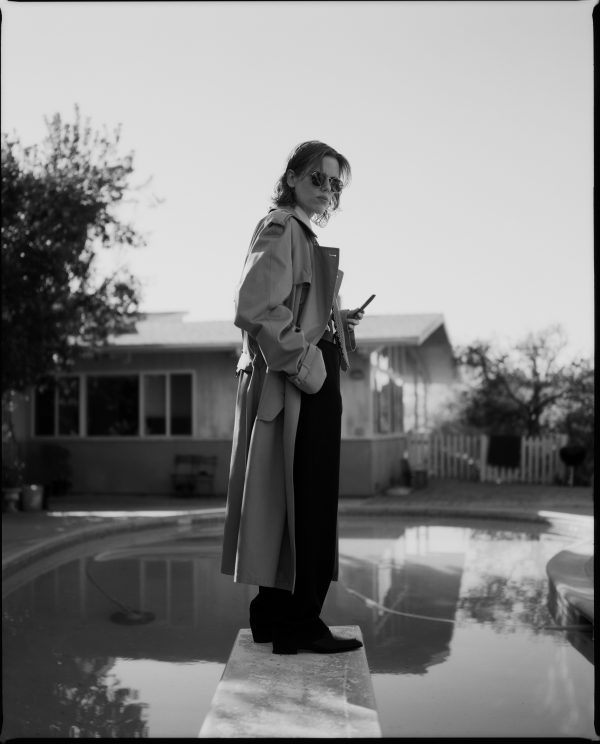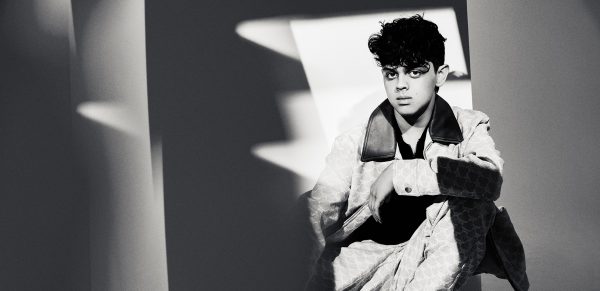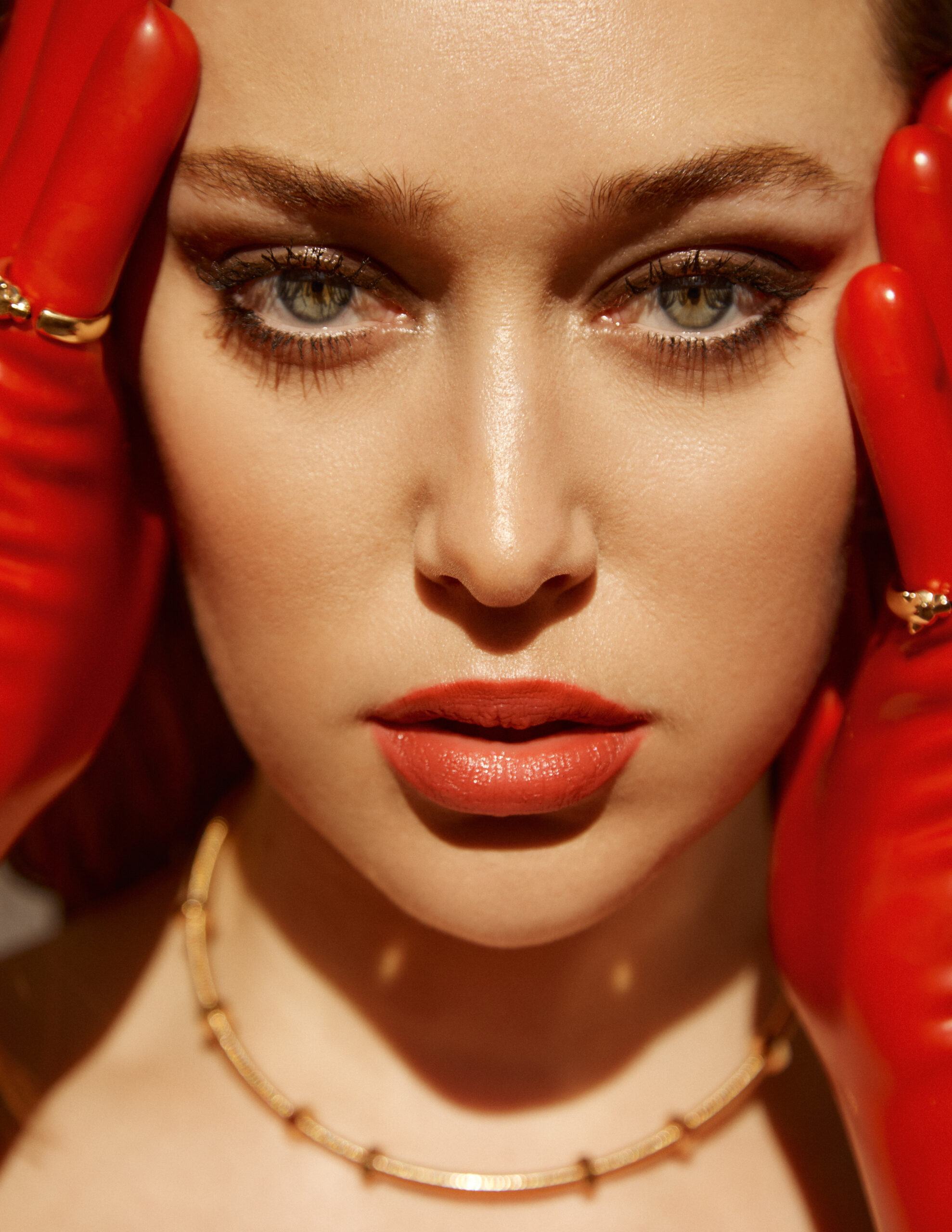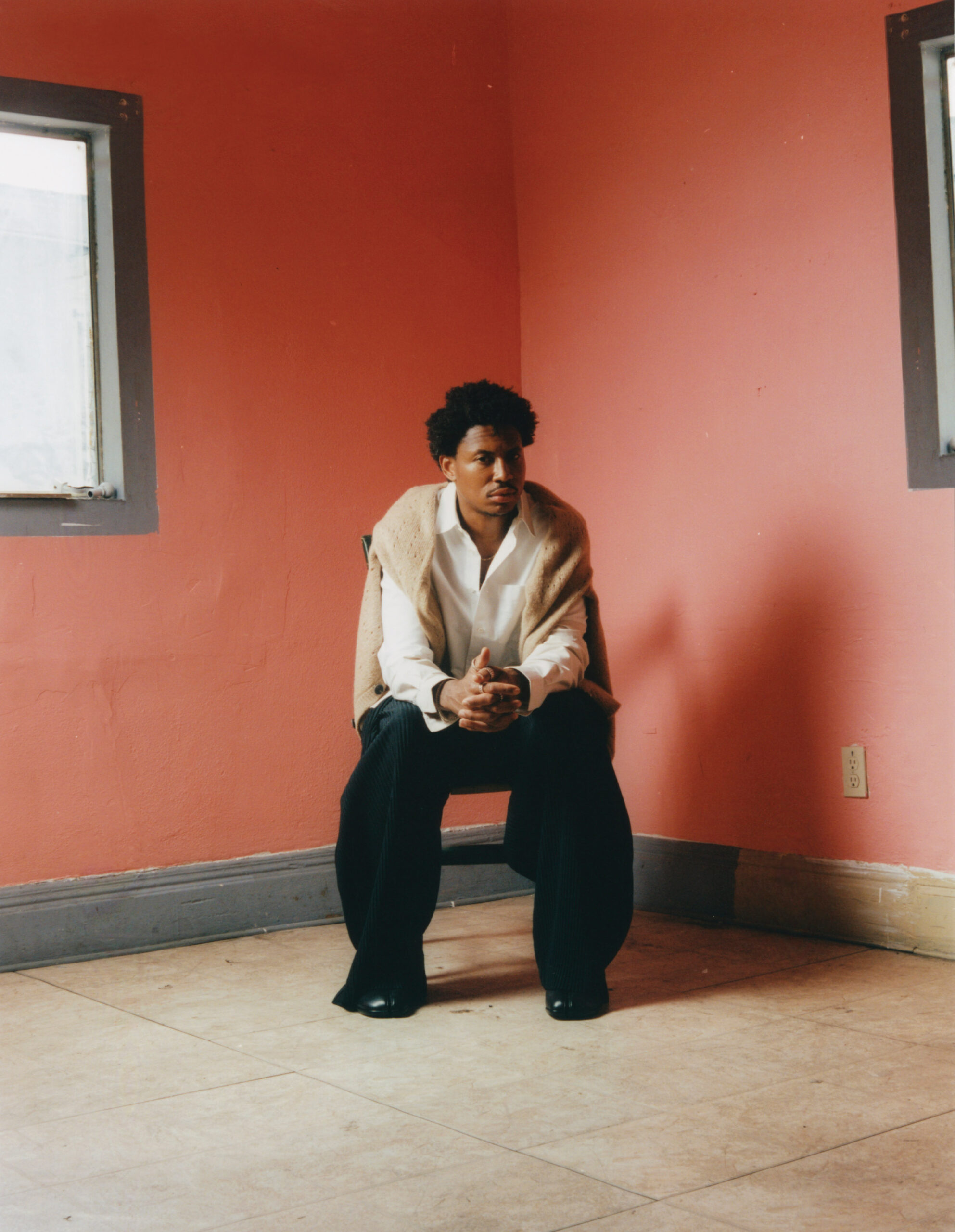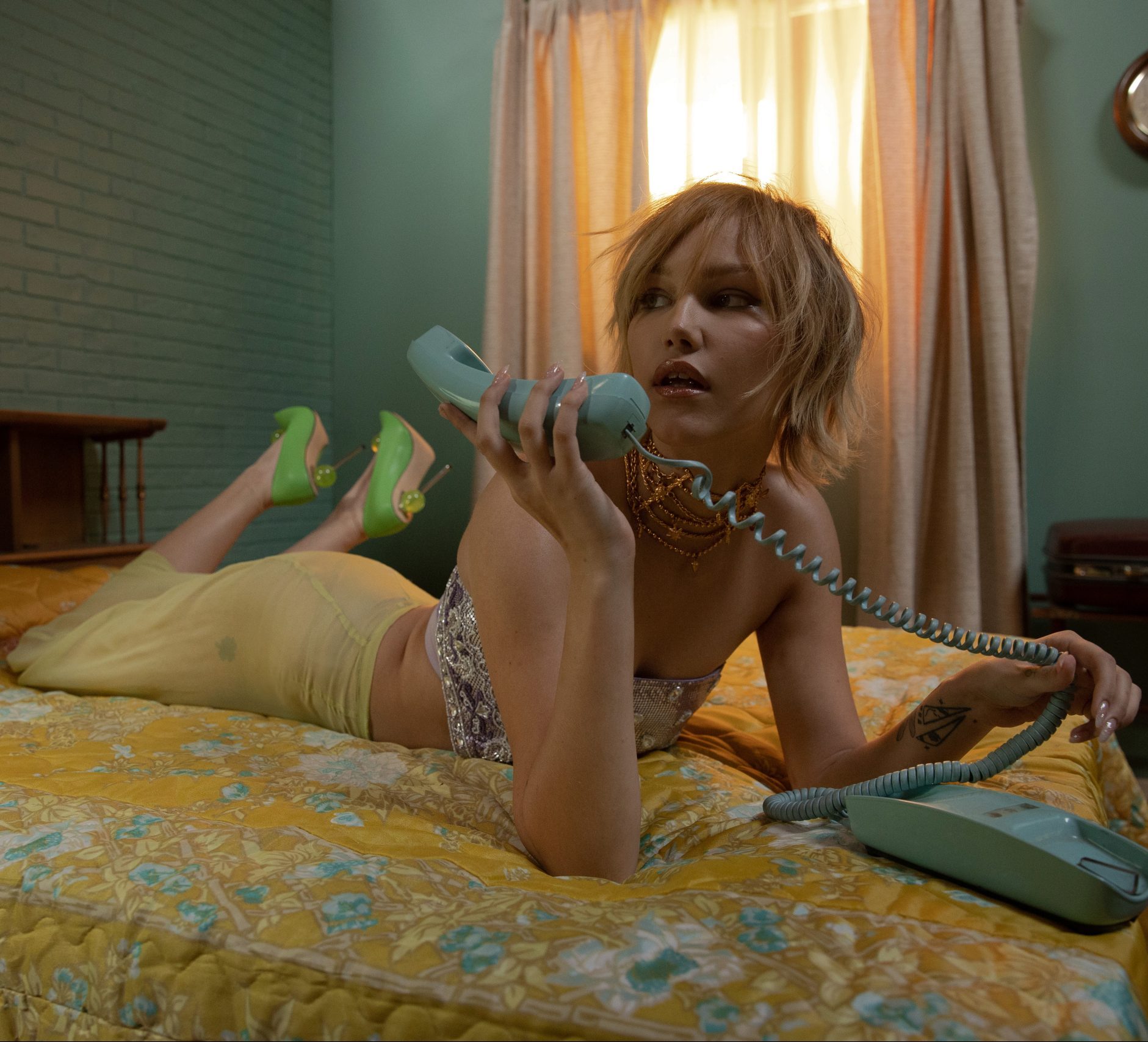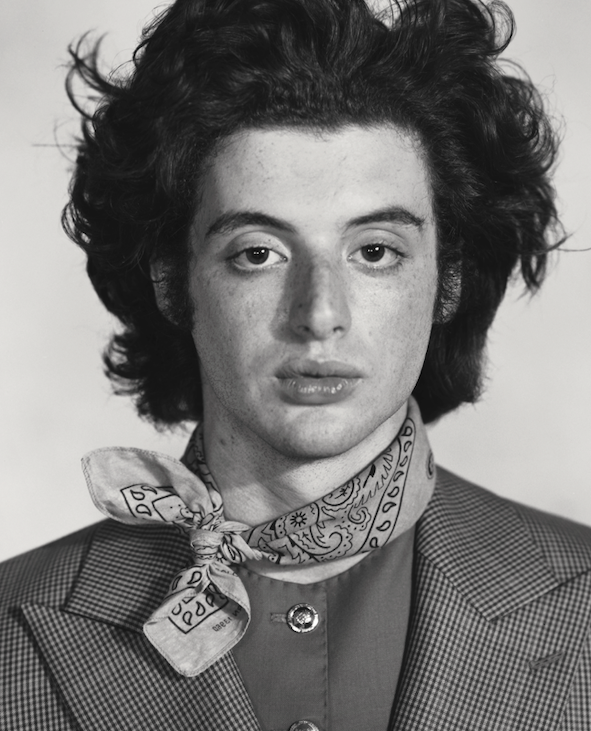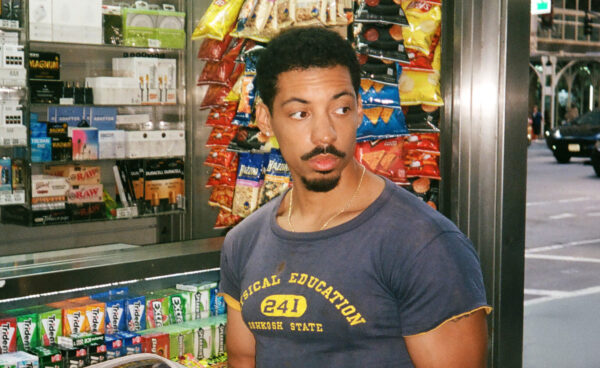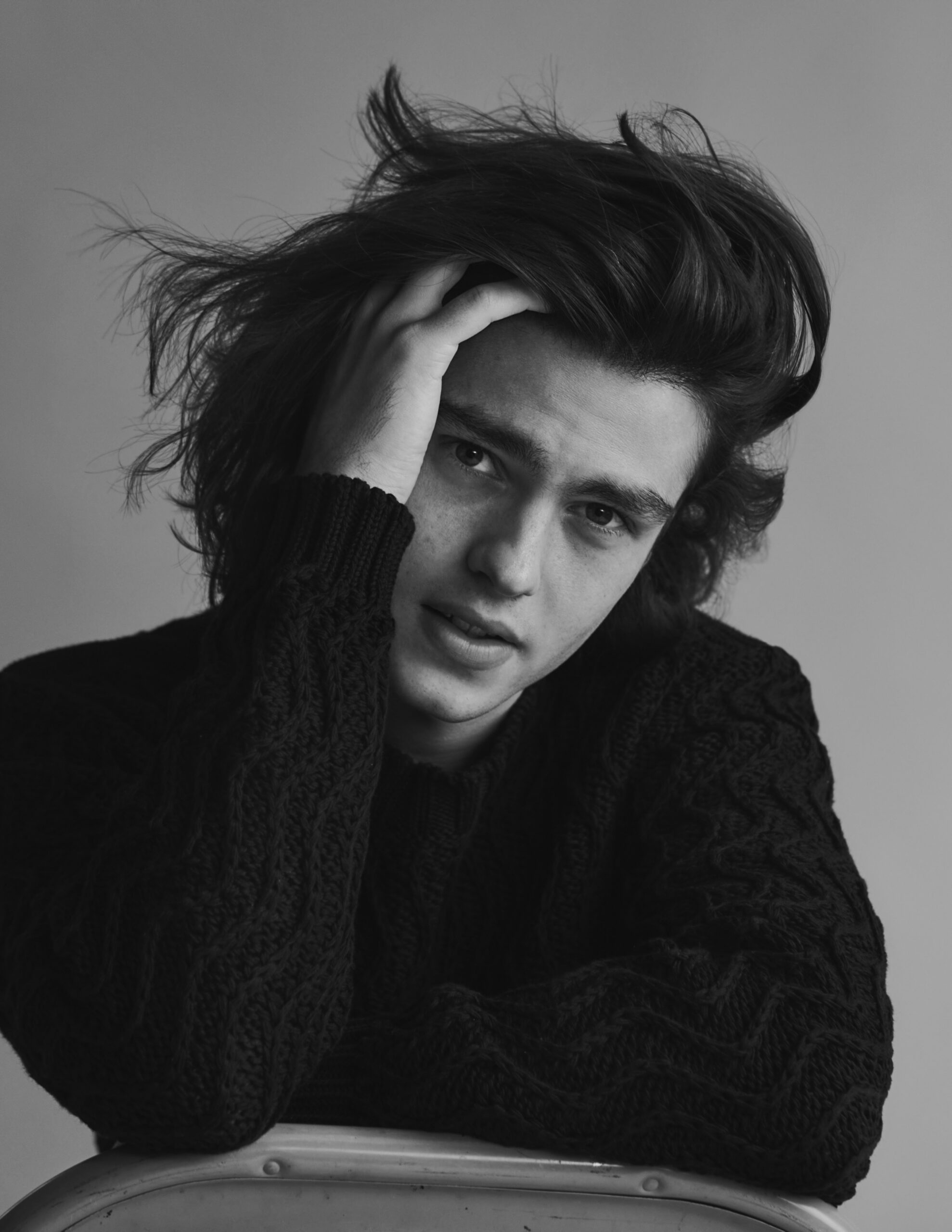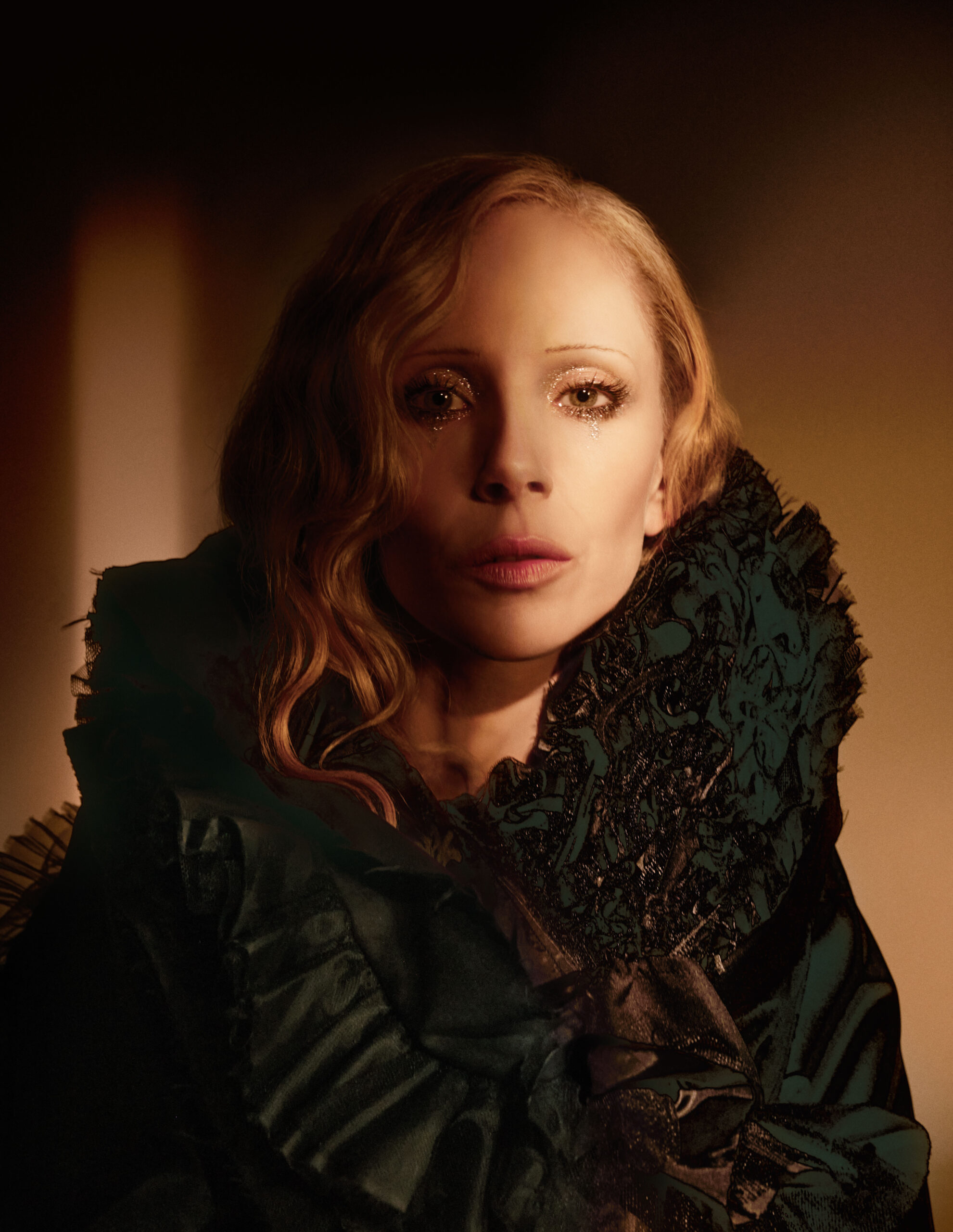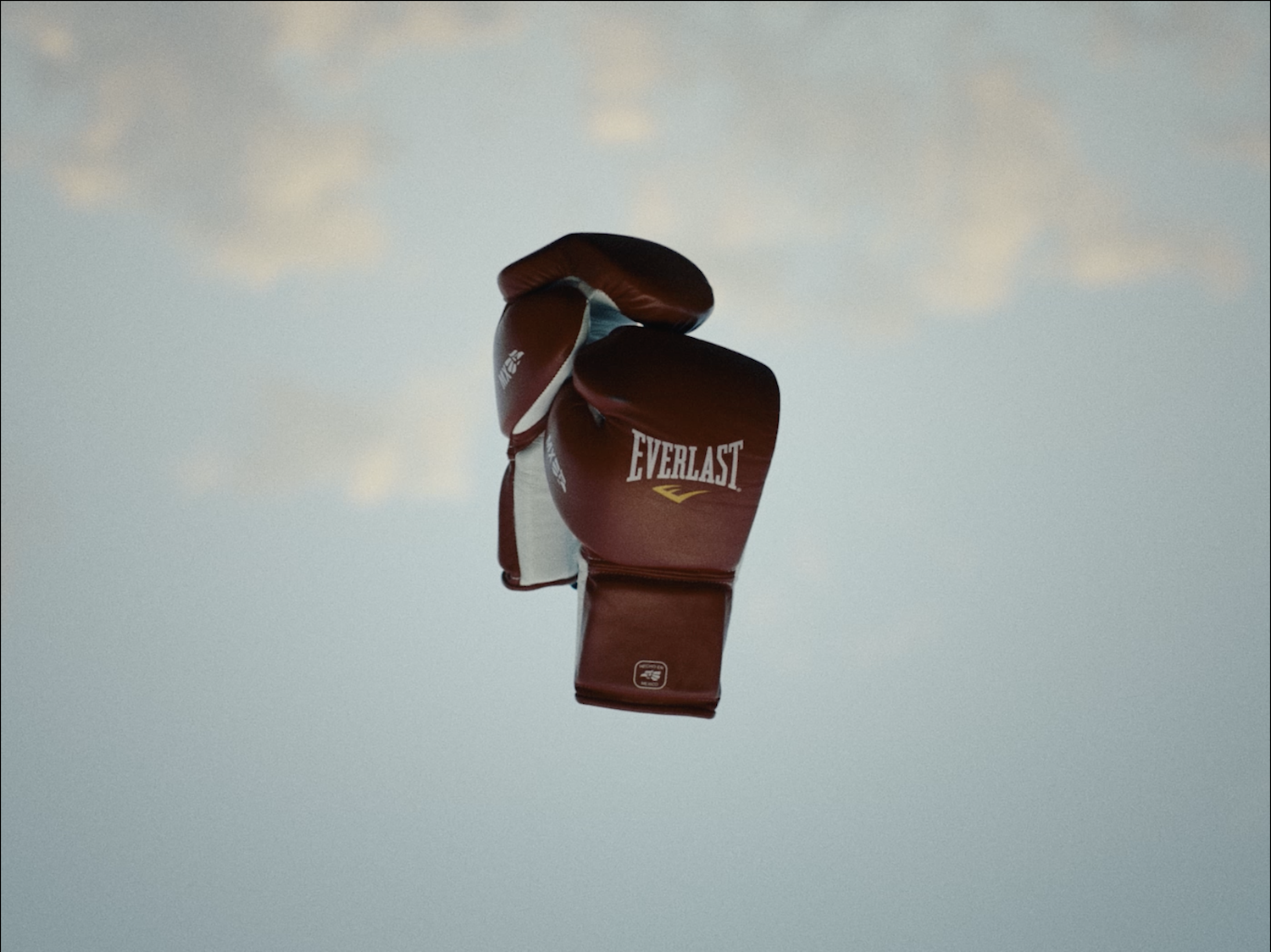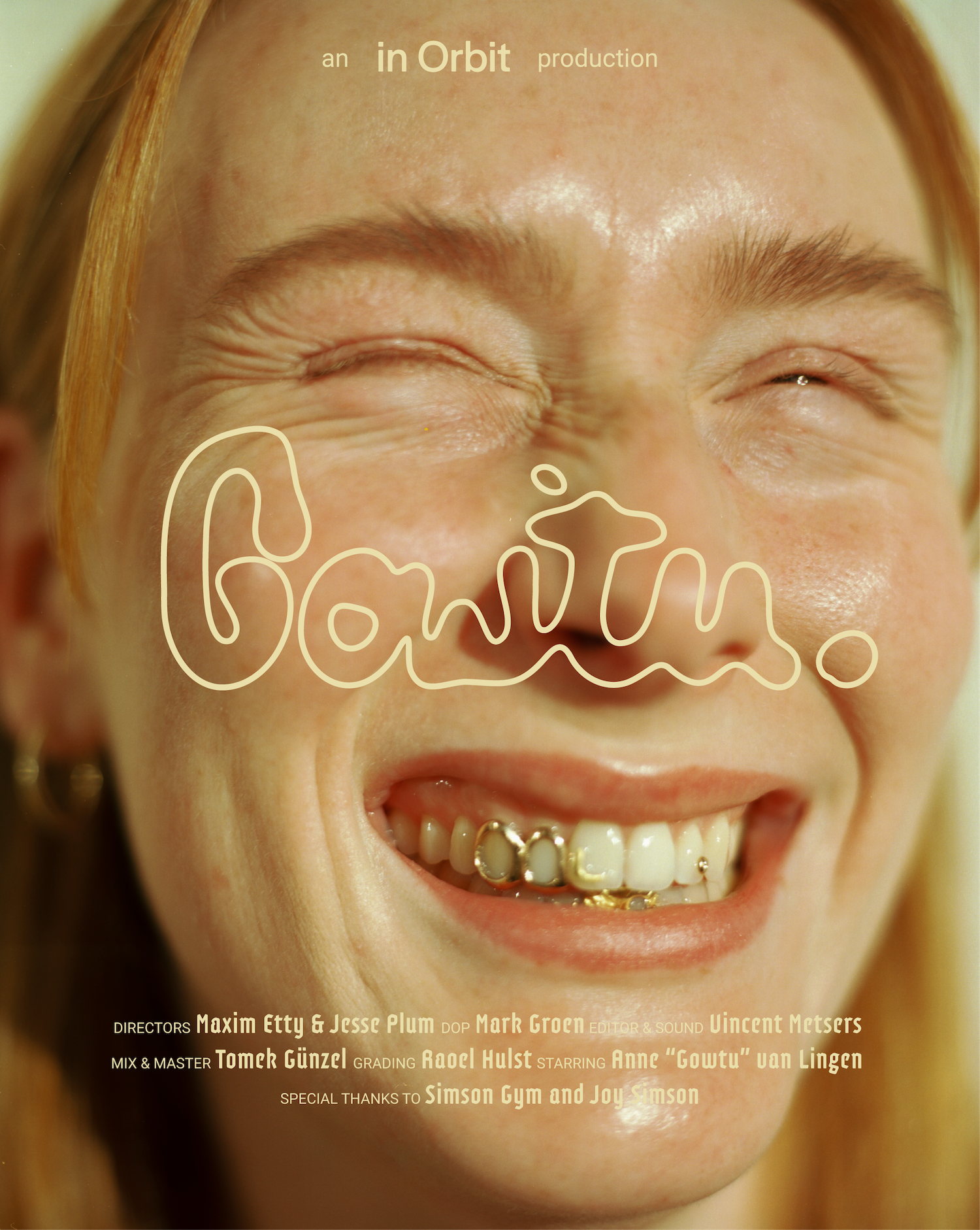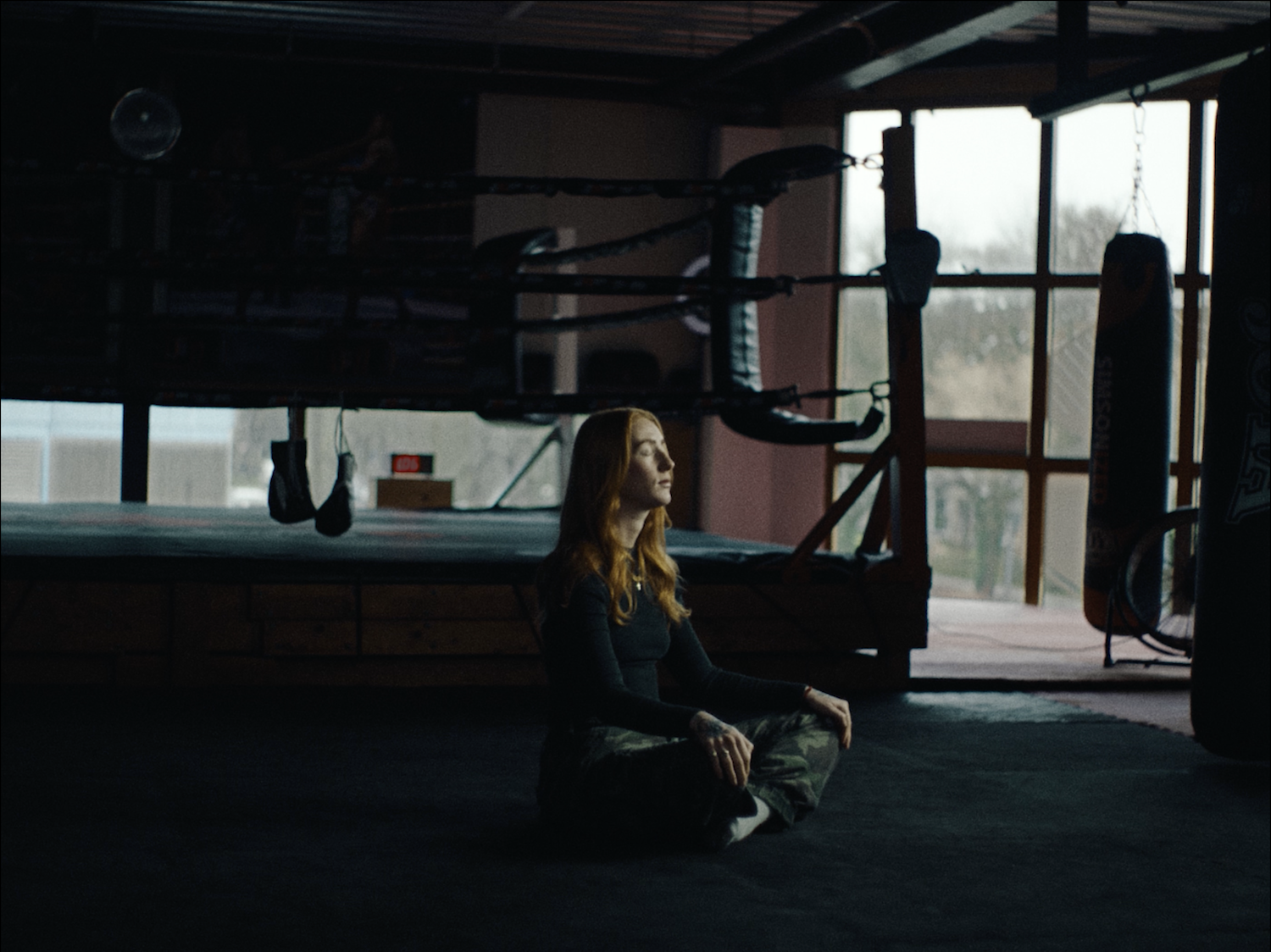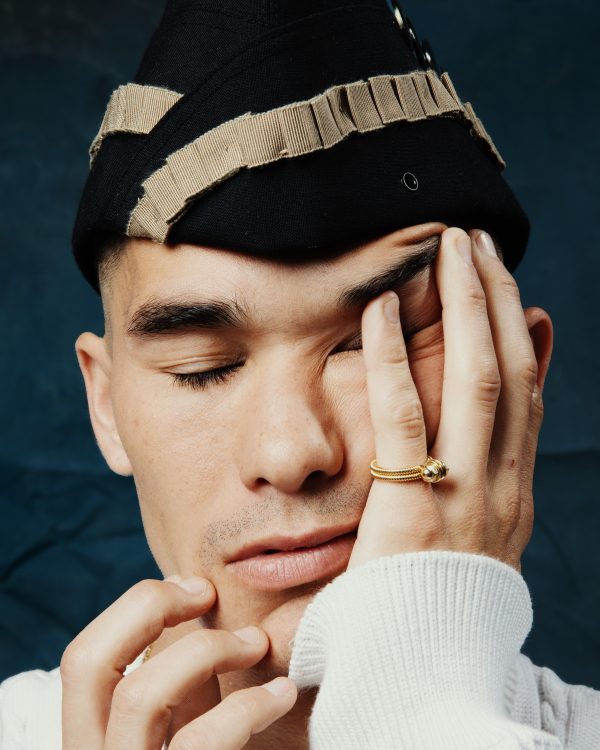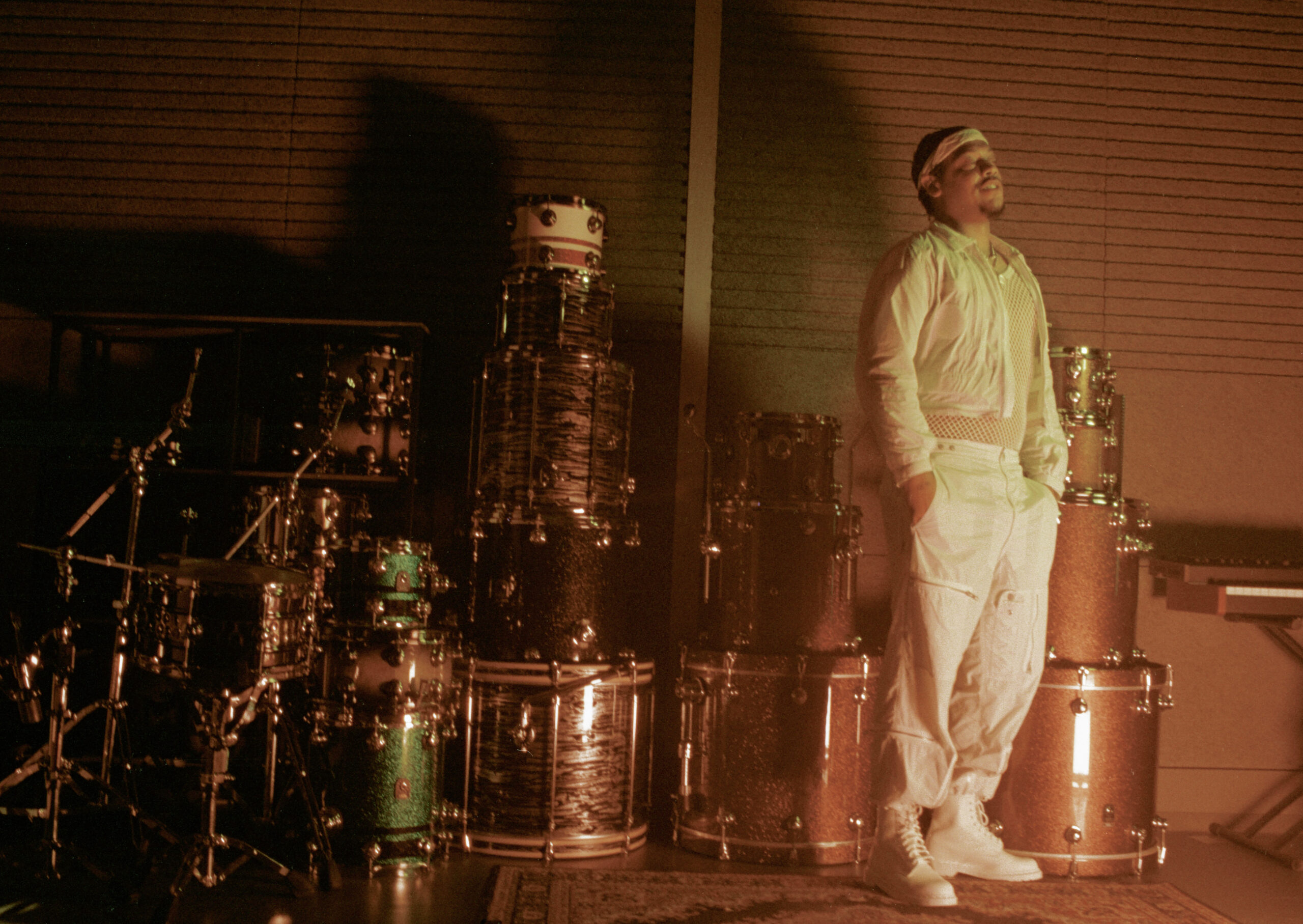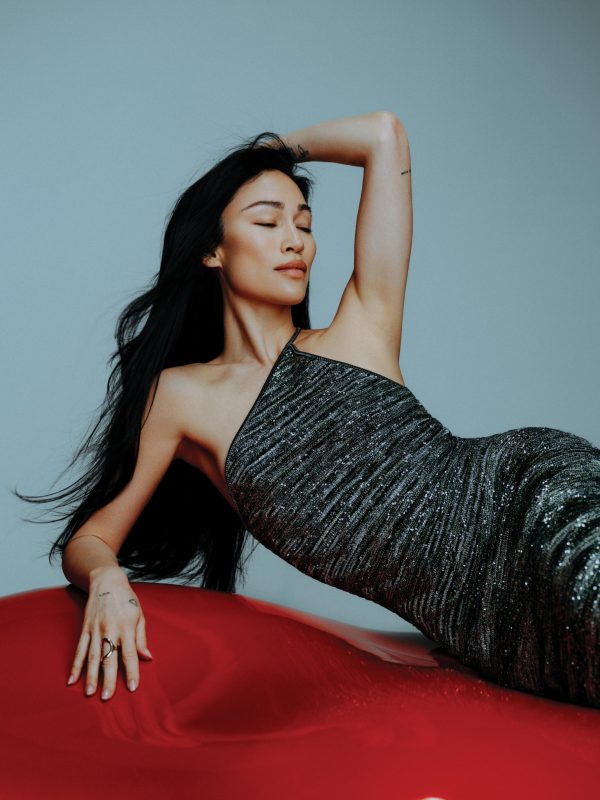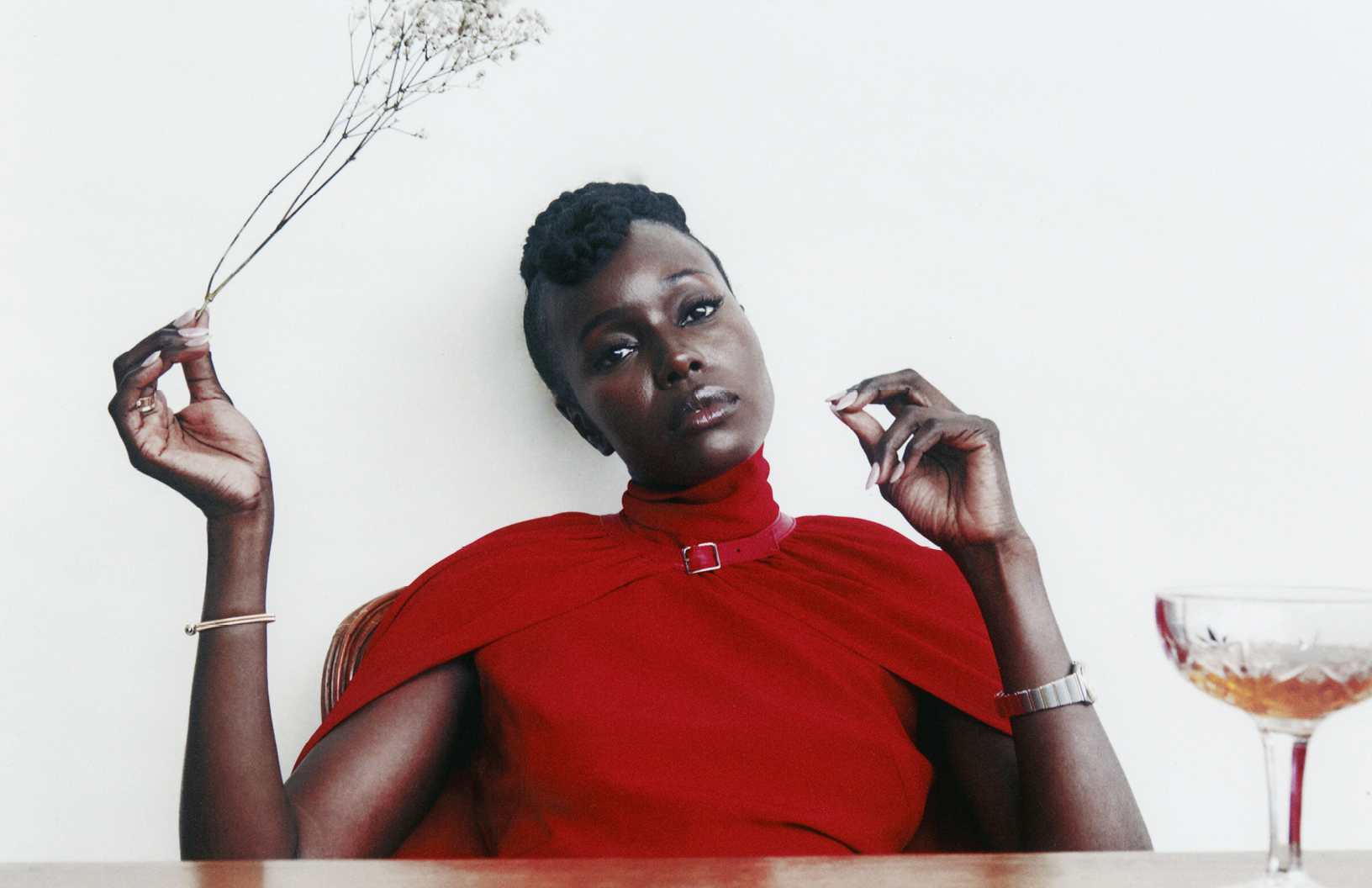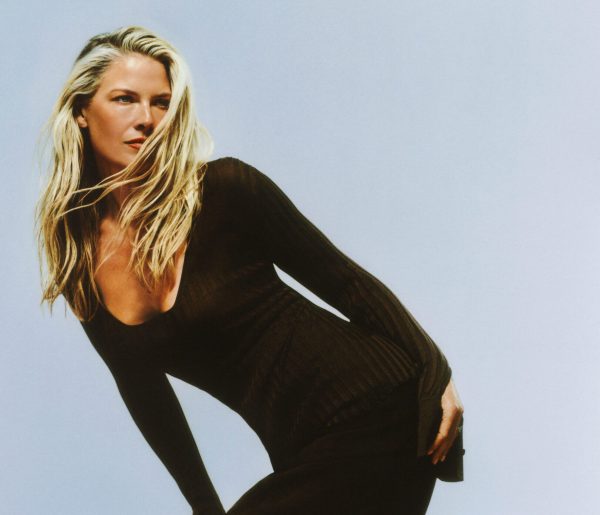Micaela Wittman has been in the background of your favourite shows for a while – Modern Family, Teen Wolf, The Dropout, Sharp Objects. Now, it’s finally time for her to take center stage. After writing her debut novel, Remy & Arletta, she decided to turn it into a film. The coming-of-age drama follows two teen girls and their relationship with one another as Remy copes with the realities of having an alcoholic mother. The film manages to be both heartbreaking and hopeful at the same time. Acting as writer, producer, star, and casting director, Wittman more than had her hands full through the making of the movie. This won’t be the last we see of this talent, but it might be the last time we see Wittman taking on so many roles at once.
In conversation with Schön! Magazine, Micaela Wittman wears Emporio Armani as she dishes on the difference between writing a book versus a screenplay, her relationship with director, Arthur De Larroche, and shares behind-the-scenes production “accidents” that she decided to leave in the film’s final cut.
You wrote the book, Remy & Arletta, and then adapted it into a movie. Even though it’s the same source material, I imagine it’s not as easy as copy and pasting the novel and adding some screen directions. What did you find different between writing the book, versus adapting it for the screen?
In my own experience, writing the book was easier only because I was the only variable. I get into these states where when I’m really passionate about a project I can just sit at my computer for 16 hours, hardly eating or drinking, just obsessively writing until I finish. When it comes to actually making the film, especially on no budget, you come face-to-face with so many obstacles. I called a bunch of high schools all over town before finally landing on the one we were going to shoot at. You’d see online they’d rent out the school for conferences and stuff for like $50 an hour and then as soon as they find out you’re shooting a movie they think there’s a bunch of money involved. So it was really just a process of making do with what was available to me without artistically comprising too much.
Were there any components of the book that you had to leave out?
If you’ve ever read a book and then watched the film adaptation, you probably know the feeling of thinking, “There was so much they left out, what happened to all the character’s thoughts?” When I really love a book, the film gives me whiplash, even if the film is great in its own way. There’s just so much you can’t include unless you’re using voiceover narration. I think the book gives more insight into the way Remy feels about Arletta in private moments. There were also some scenes in the third act we had to cut due to time and budget constraints, like the mall scene. But I’m still happy with how the adaptation turned out.
What elements of the novel do you think translated well, or even translated better on the big screen?
I’m really proud of the relationship between me and Riley (who plays Arletta) and the rest of the cast. It’s cool to see the chemistry that was at one point abstract become real and just feel like real kids in a real town. The actors brought so much to the story that I couldn’t have imagined on my own. It opened my eyes up to how much unknown and special talent there is out there that audiences haven’t heard of yet. If we hadn’t found the right cast during the audition process, I 100% wouldn’t have made the film.
Making this film had you wearing many hats. You co-produced, wrote, co-starred, and helped with casting. You were working on all of the key parts of making a movie. What surprised you the most about these different roles?
I’m going to try to never balance that many roles again. I messed up on wardrobe a lot, which is why Remy is in the same shirt for pretty much the whole movie. It ended up working out because it makes a statement about how she’s poor and doesn’t have a lot of clothes, but it wasn’t supposed to be that way. We had to reshoot scenes because I was in the wrong clothes, and one time I didn’t bring the right outfit with me at all, so we had to stop shooting so I could drive home and pick it up before the sun went down. I had bandwidth for everything up until it got to wardrobe and then I just started short-circuiting. I can’t wait to hire more people on the next one.
You’ve worked with Arthur De Larroche on many different projects. Per Goodreads, he edited Remy & Arletta, directed the film adaptation and has also worked with you on the Clairevoyant movie. Could you tell me a little about how you met and what your relationship with him is like as you work on these creative pursuits?
Working with someone creatively, especially in the writing process, is really intimate. Before Arthur, I didn’t feel like I had a safe creative partner in anyone. Not only are we fairly aligned in our philosophies, but we also both understand how sensitive the creative process is. With both the book and the script, when I finished some pages, I would check up with him and give them to him to read, and he would just tell me to keep going, and that I was finding the story on my own without his help. Which was his way of helping, instead of inserting himself, he knew how to guide the process gently. There are definitely other times when the story needs a critical, hands-on approach. But he’s able to gauge that, which is a really special skill.
Seeing as you wrote this novel and it’s based on your own experiences, how did you go about getting into character when shooting? Did you pull up old playlists that you listened to in that time period? Re-watch any shows that you were obsessed with at that age?
I wrote the screenplay while listening to Time After Time by Cindi Lauper. This wasn’t necessarily a song that I listened to at that age, but I just felt like it really embodied the love between Remy and Arletta, and I hope some of that came through. In terms of acting, playing Remy was kind of uncomfortable because it reminded me of when I was that young and insecure when I was judging myself constantly. But even though so much of the story was based on my experiences, I really value there being a separation between myself and the characters I play. That’s what makes acting fun. So she was more of a proxy version of myself from that time. I wanted her to feel like her own person.
Were there any big surprises when shooting the film? Or any favourite memories you’d like to share?
During the big scene when Remy’s mom gets really abusive, our cinematographer, Paige, ended up crying while she was shooting it. I decided not to remove her audio from the film and you can hear it during that scene. It sounds like it’s Amy’s breathing, but it was actually coming from behind the camera. We only did that scene a couple of times because of the intensity of it. I find that to be really moving that she allowed herself to be so deeply affected by the scene that was playing out, even though she was focused on the technicalities of the shot. This is a side note, but there are other times in the film when you can hear me or Riley’s heartbeat during a heightened scene, which I intentionally left in just because it’s kind of weird and cool.
Would you be interested in exploring more writing and production roles in the future?
I’ve become a little control freak, so, definitely. But one of my big goals now is to act in something that I have nothing to do with. There’s something so satisfying about trusting someone else’s vision and just being a piece of the puzzle.
What do you look for when considering future projects?
I like scripts with a lot of layers and speed. I don’t like too much exposition unless it’s delivered in a special way or has emotionality behind it. I also like stories that are relatable or helpful to people in some way, which is actually possible to do with any genre. I don’t want to act for the sake of showing I can do it, I want to act in things that seem genuinely entertaining. Long story short, anything that resonates with me.
Looking to the future, what kinds of projects and roles are you most looking forward to working on?
I’m very “genre-agnostic” as an actor and writer. I’d love to do an action film, or a horror, or another comedy. But I’d also do another drama if it called out to me so this is a bad answer. Being in this industry, so much is up in the air until it isn’t. And oftentimes a role or script I think I’d dislike ends up behind something I love when I actually start performing it. So I’m really just looking forward to everything. I’m excited to see what comes next.
photography. Alexander Han
fashion. Arthur de Larroche
talent. Micaela Wittman wearing Emporio Armani
hair + make up. Mandy Beekman
special thanks. Mustang Motel
interview. Kendall Saretsky




